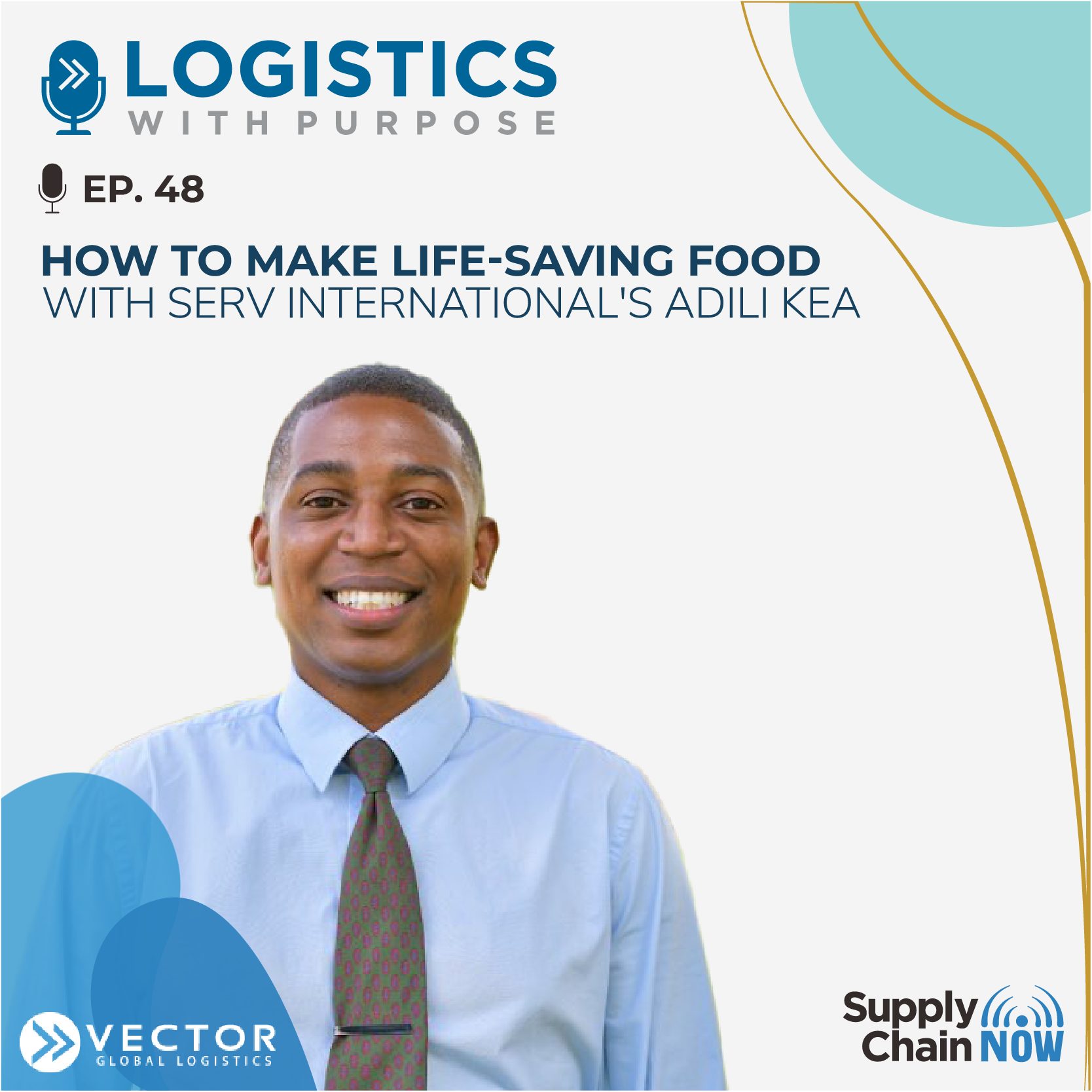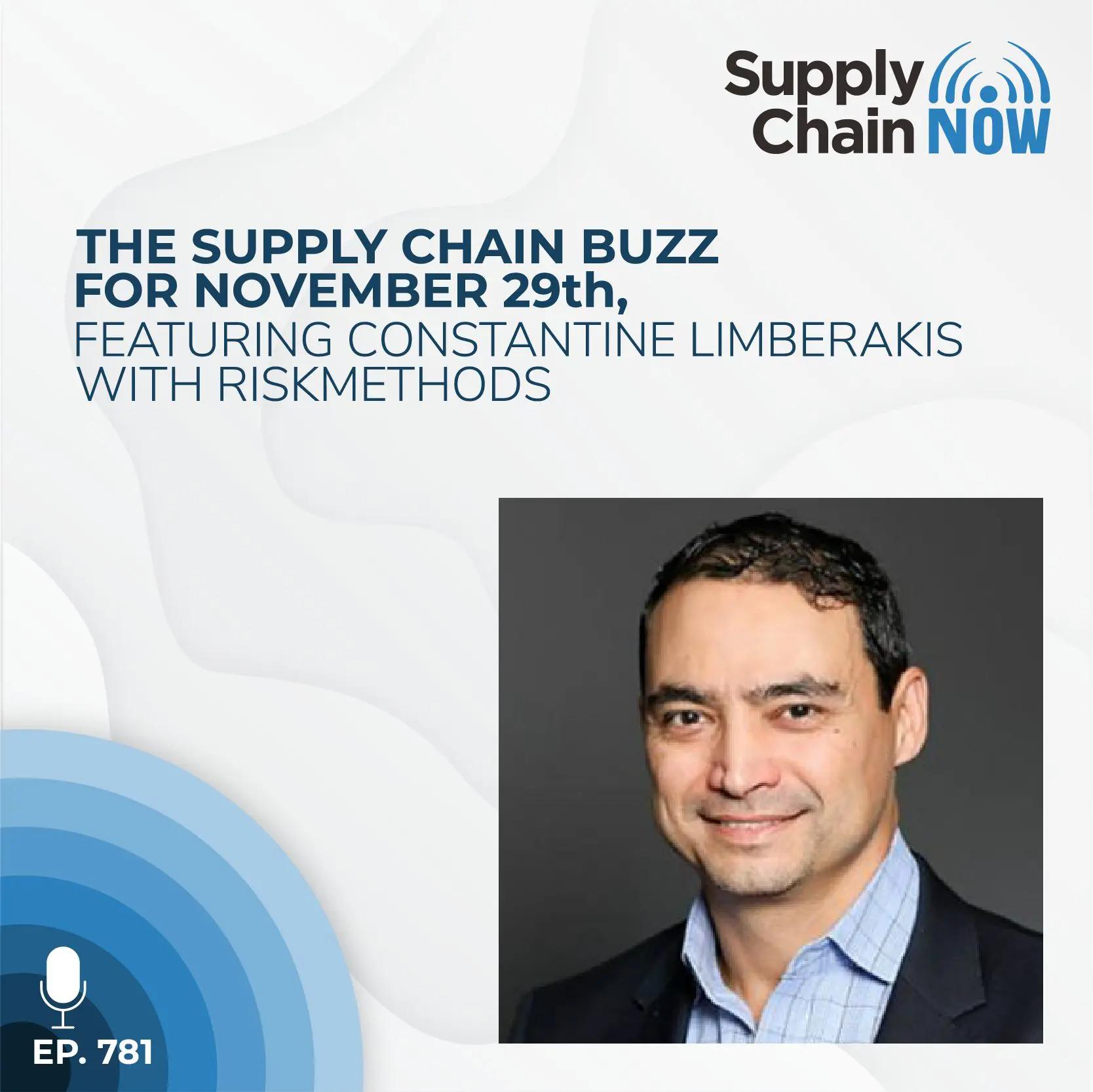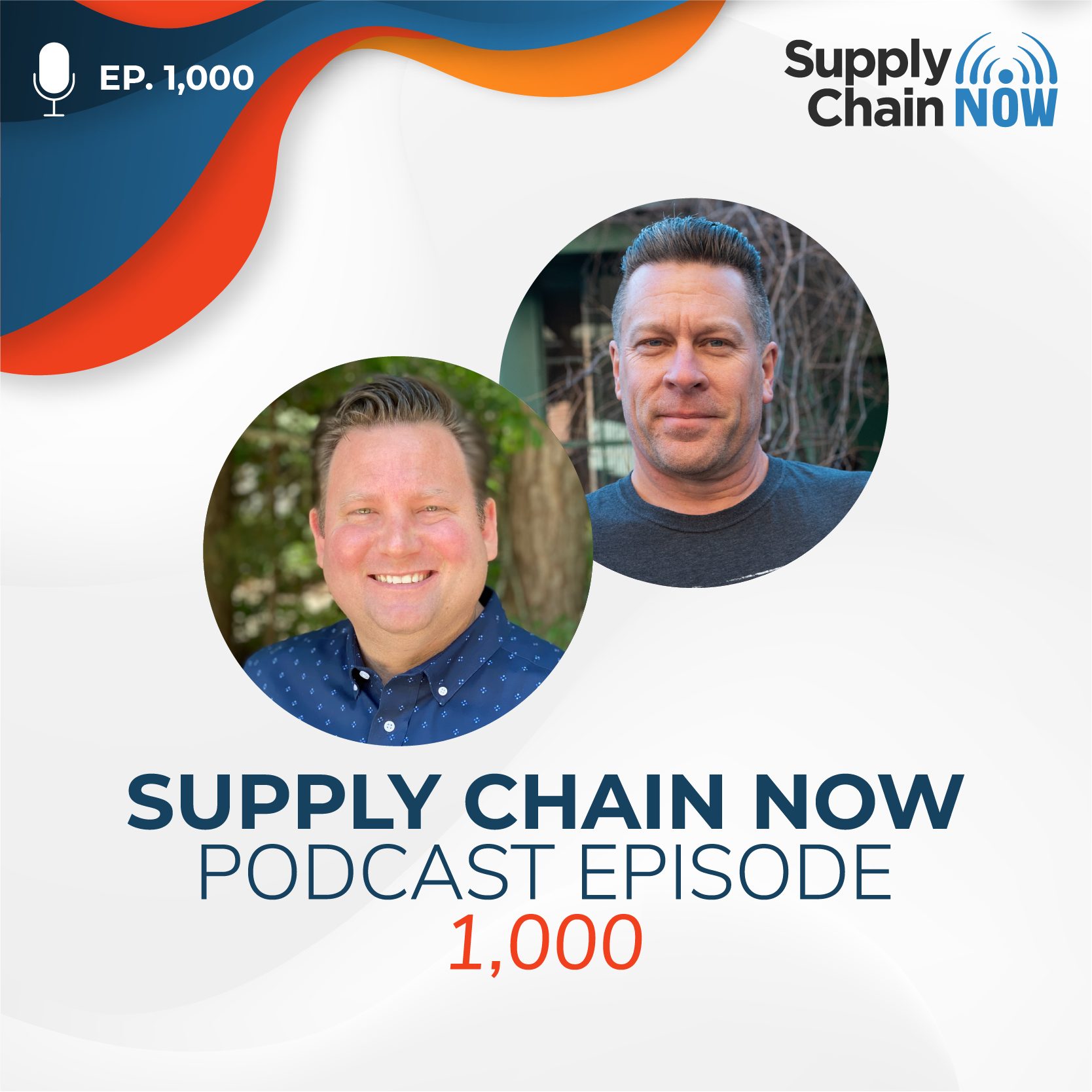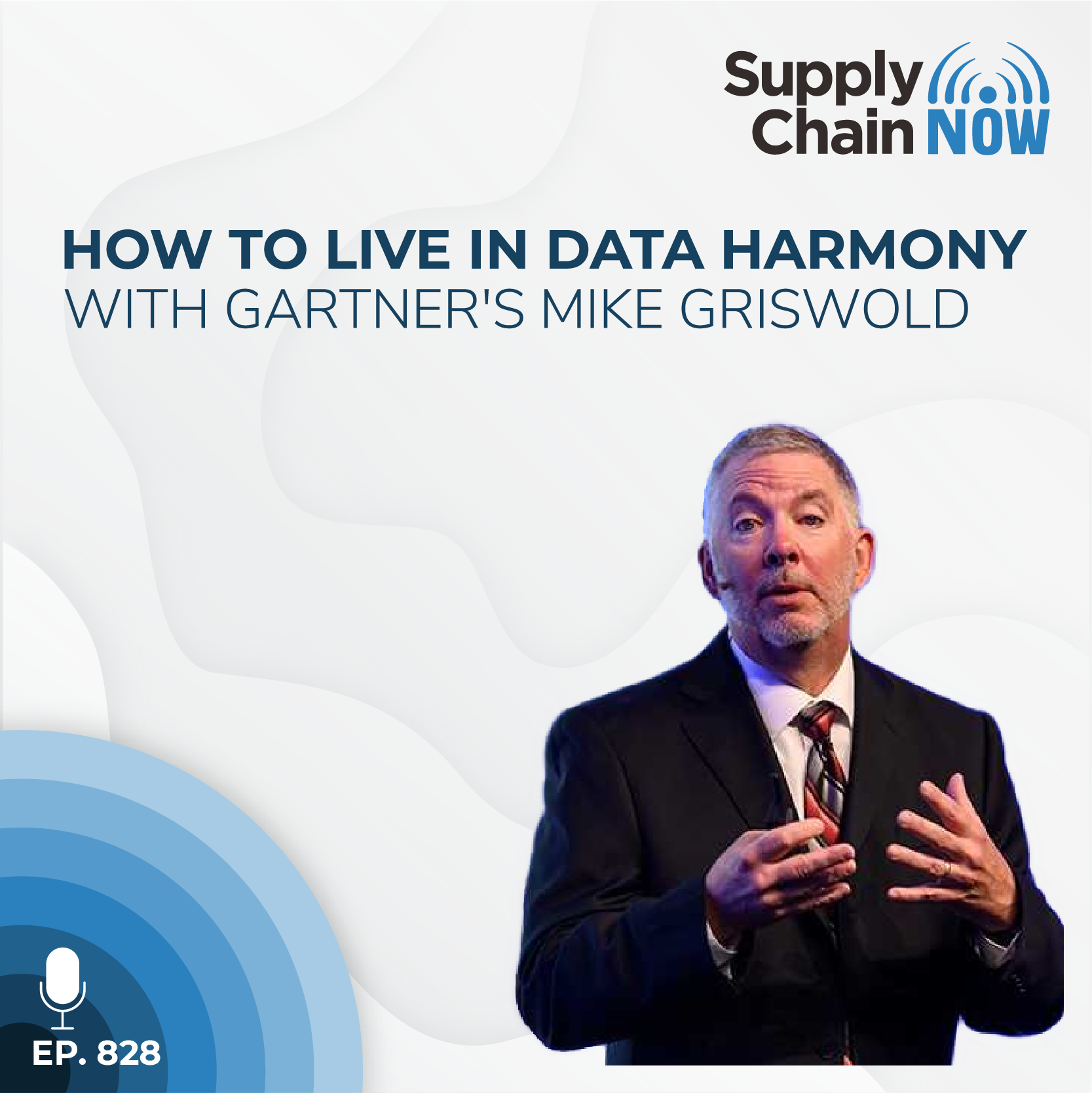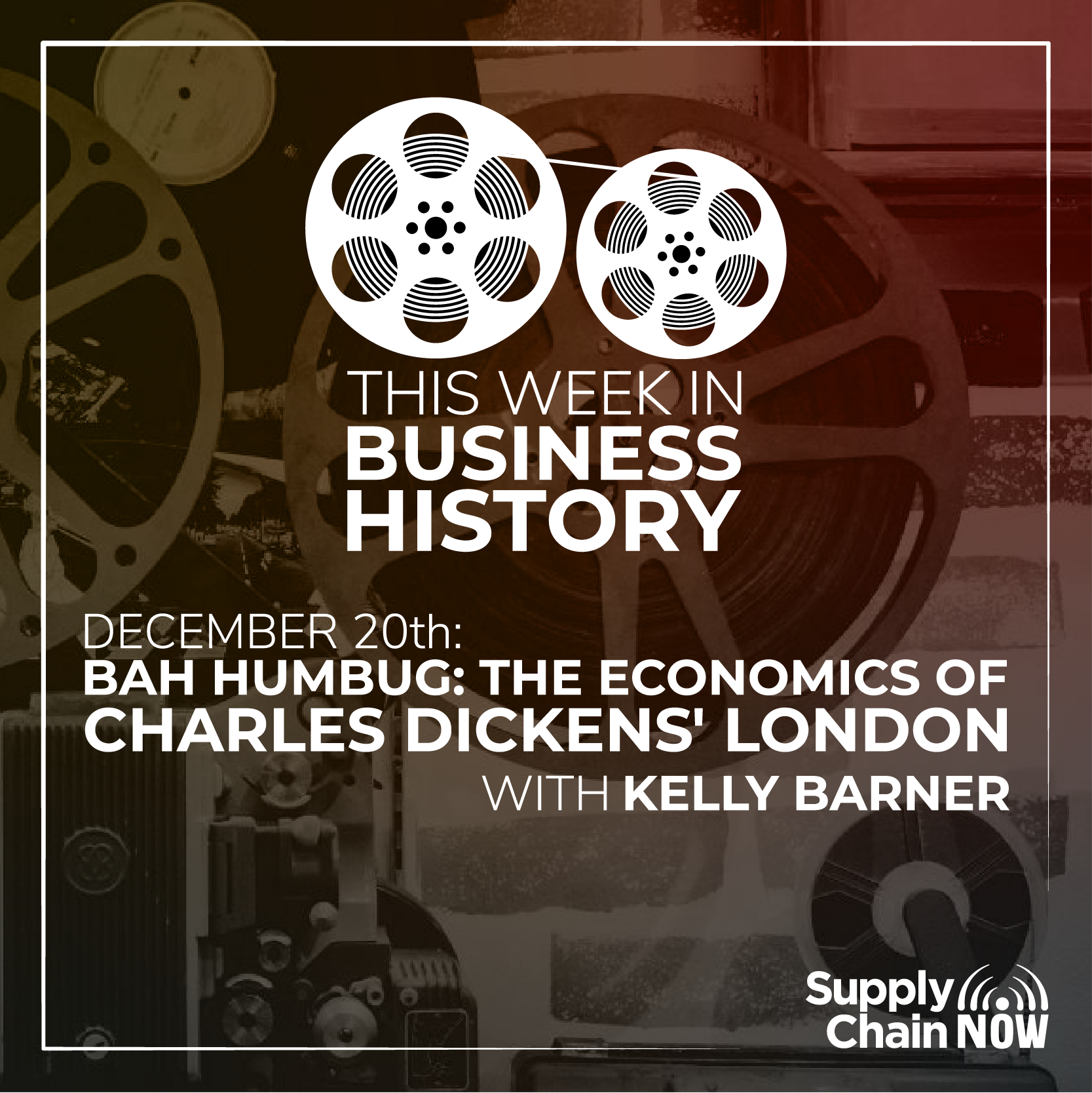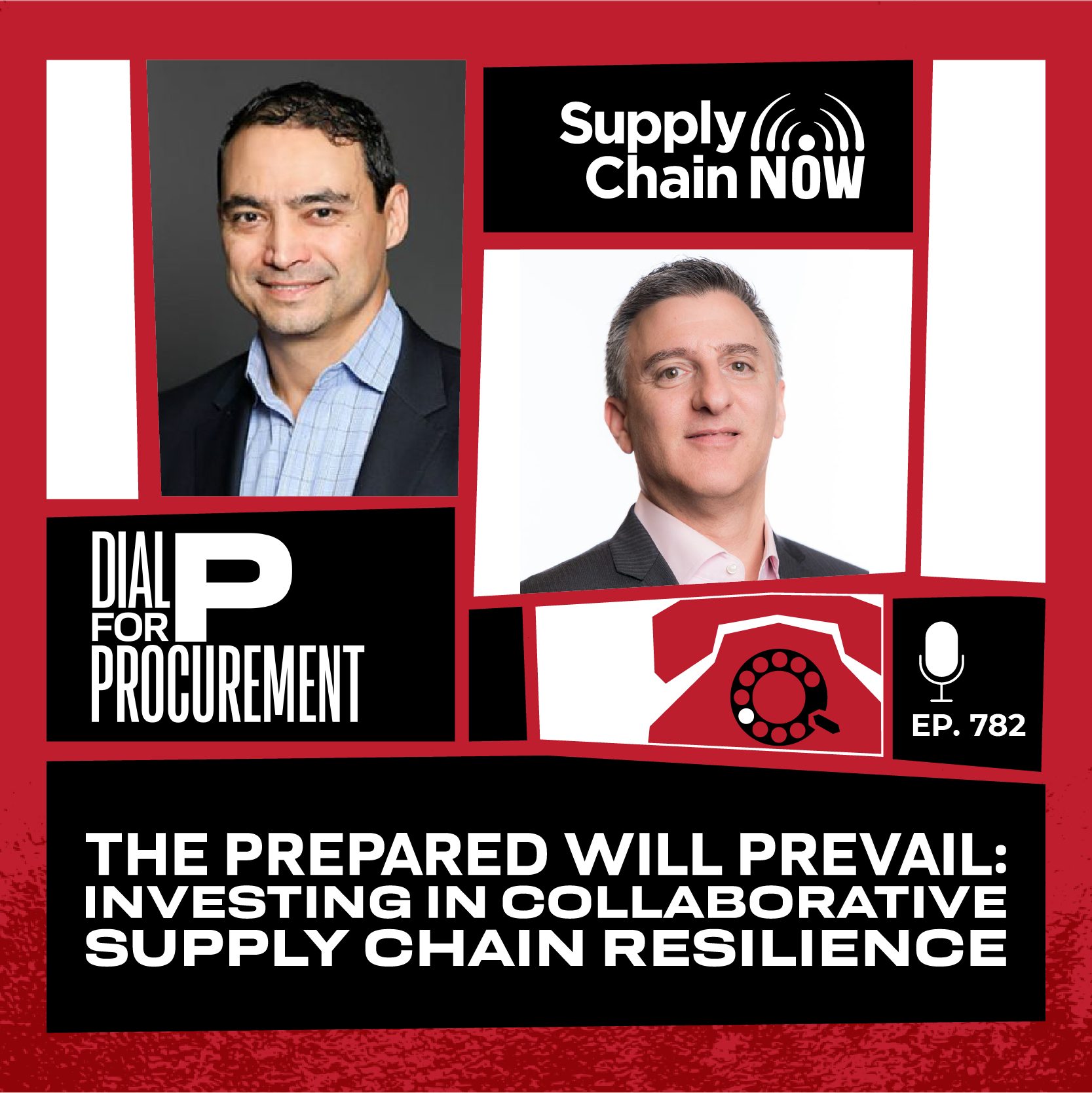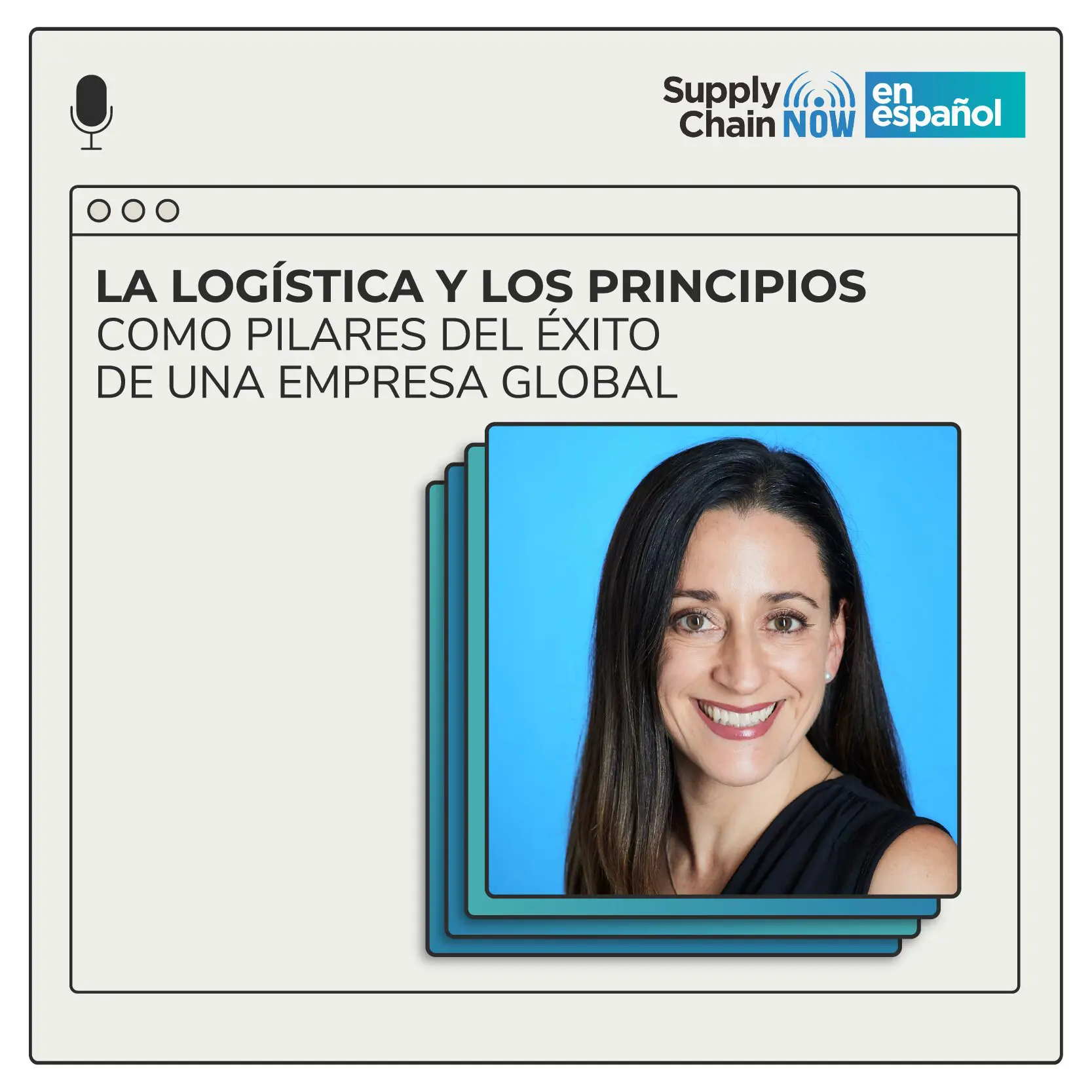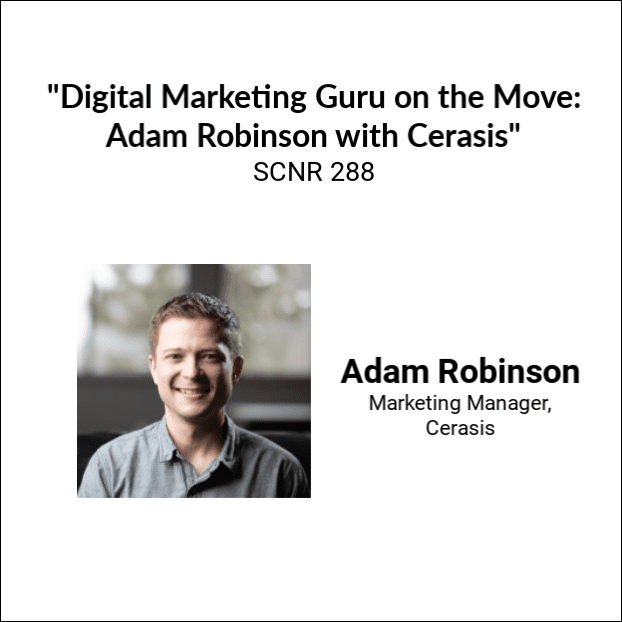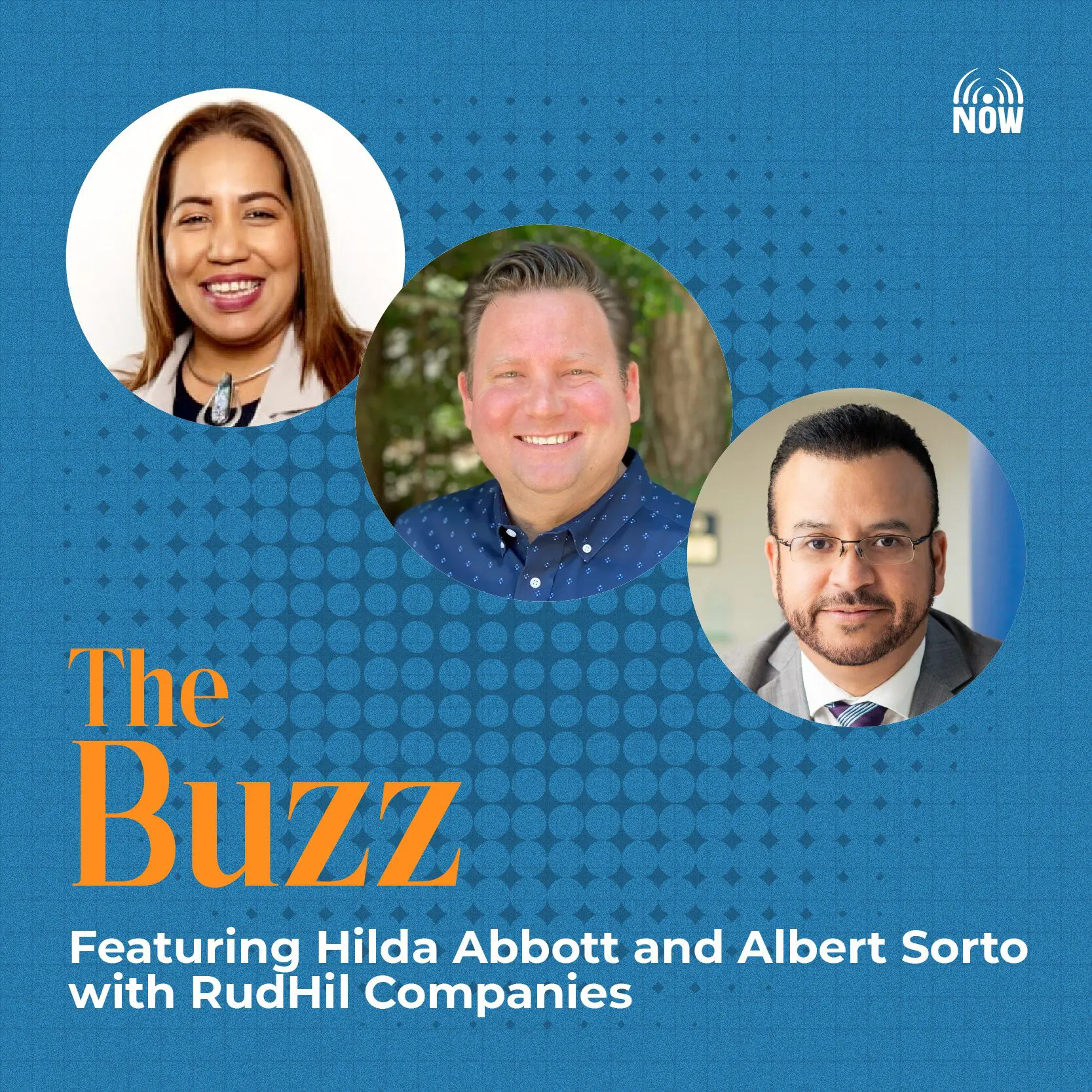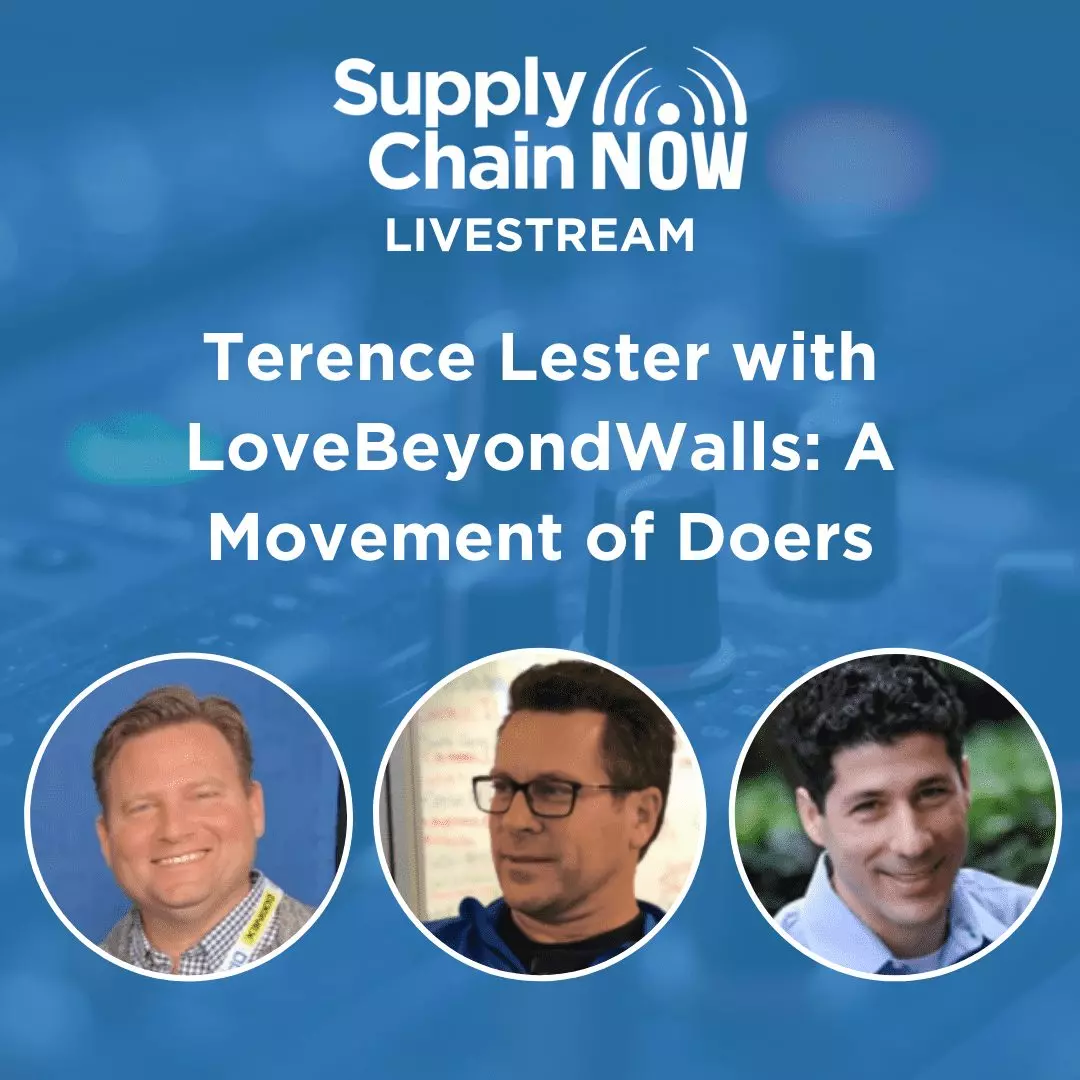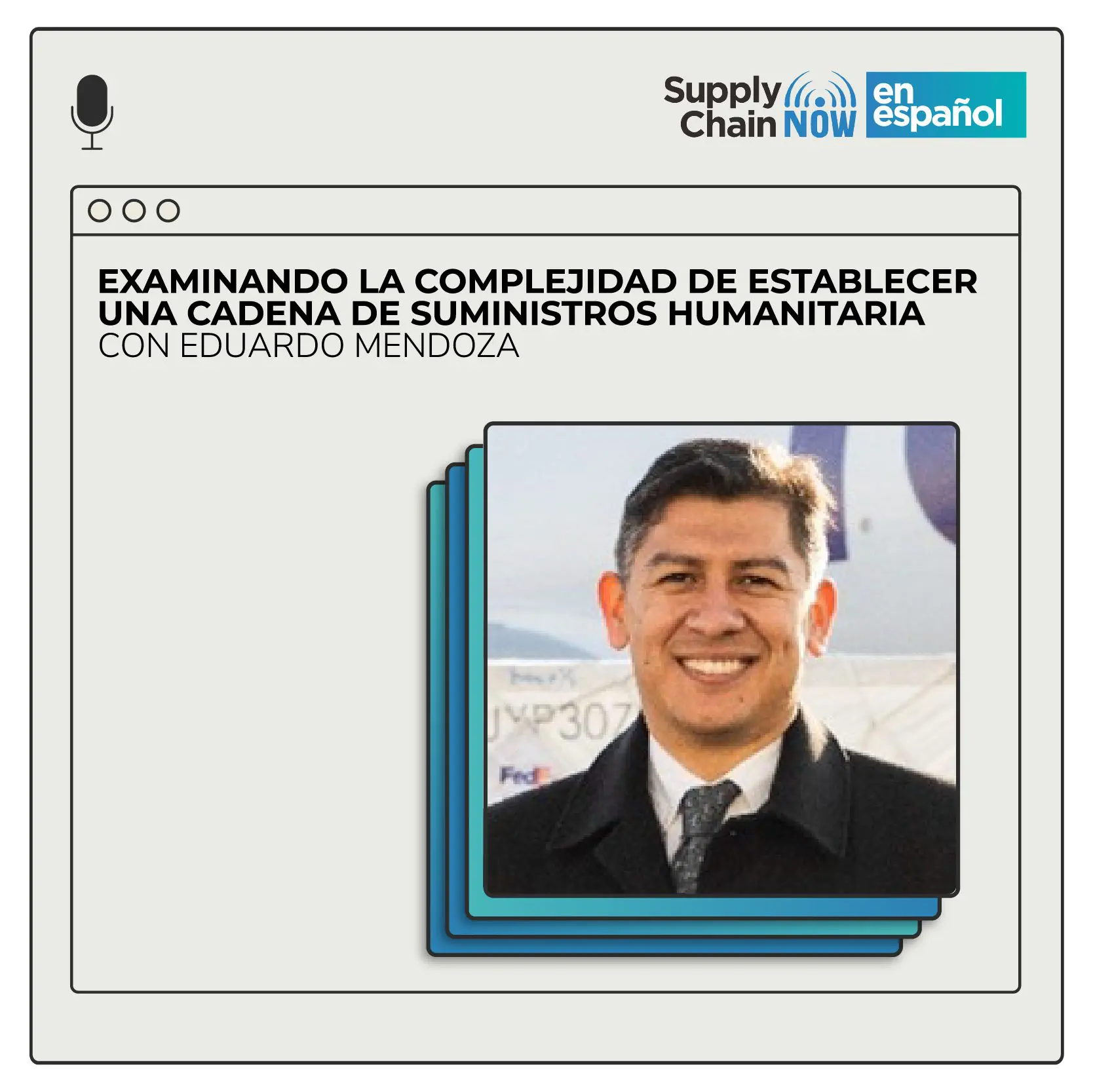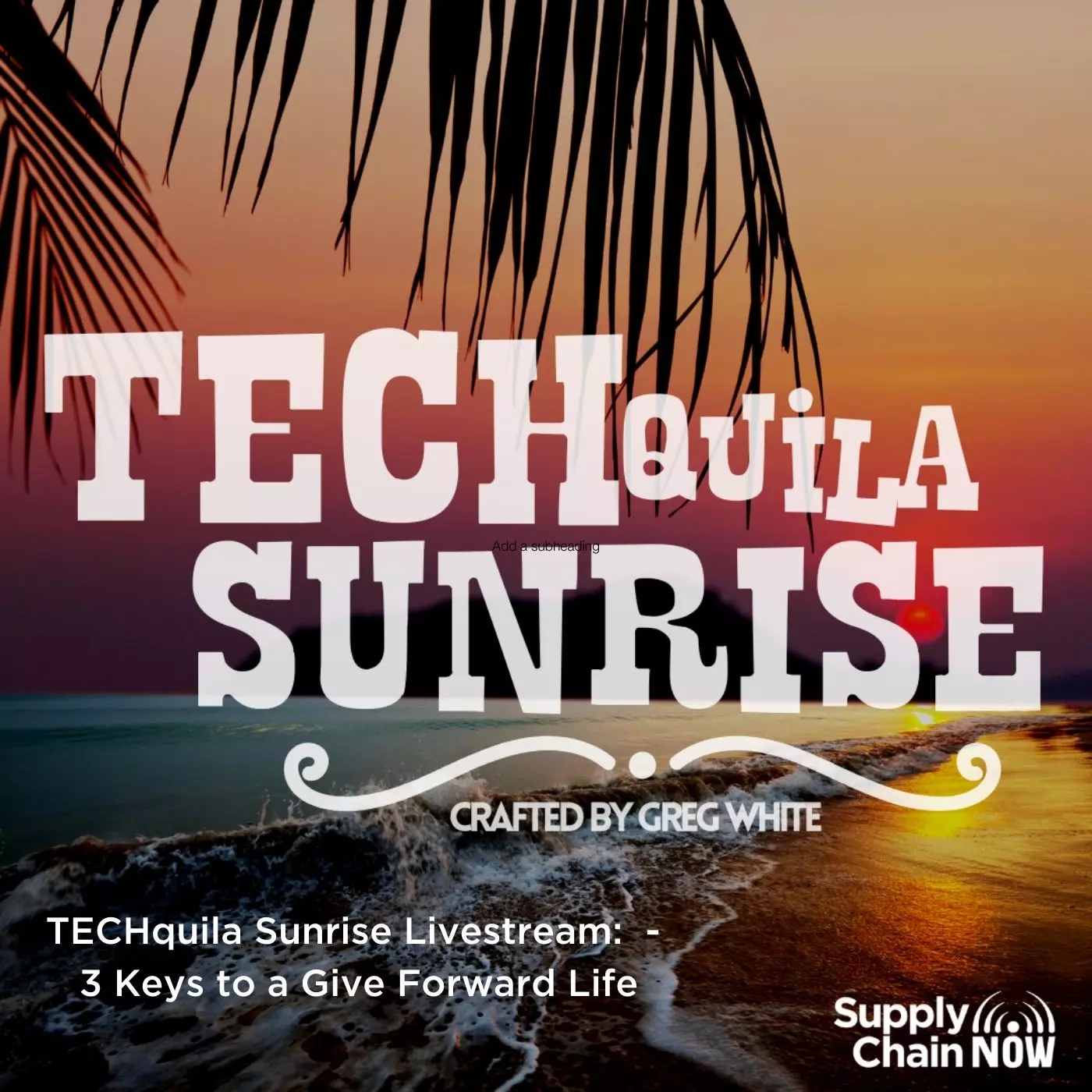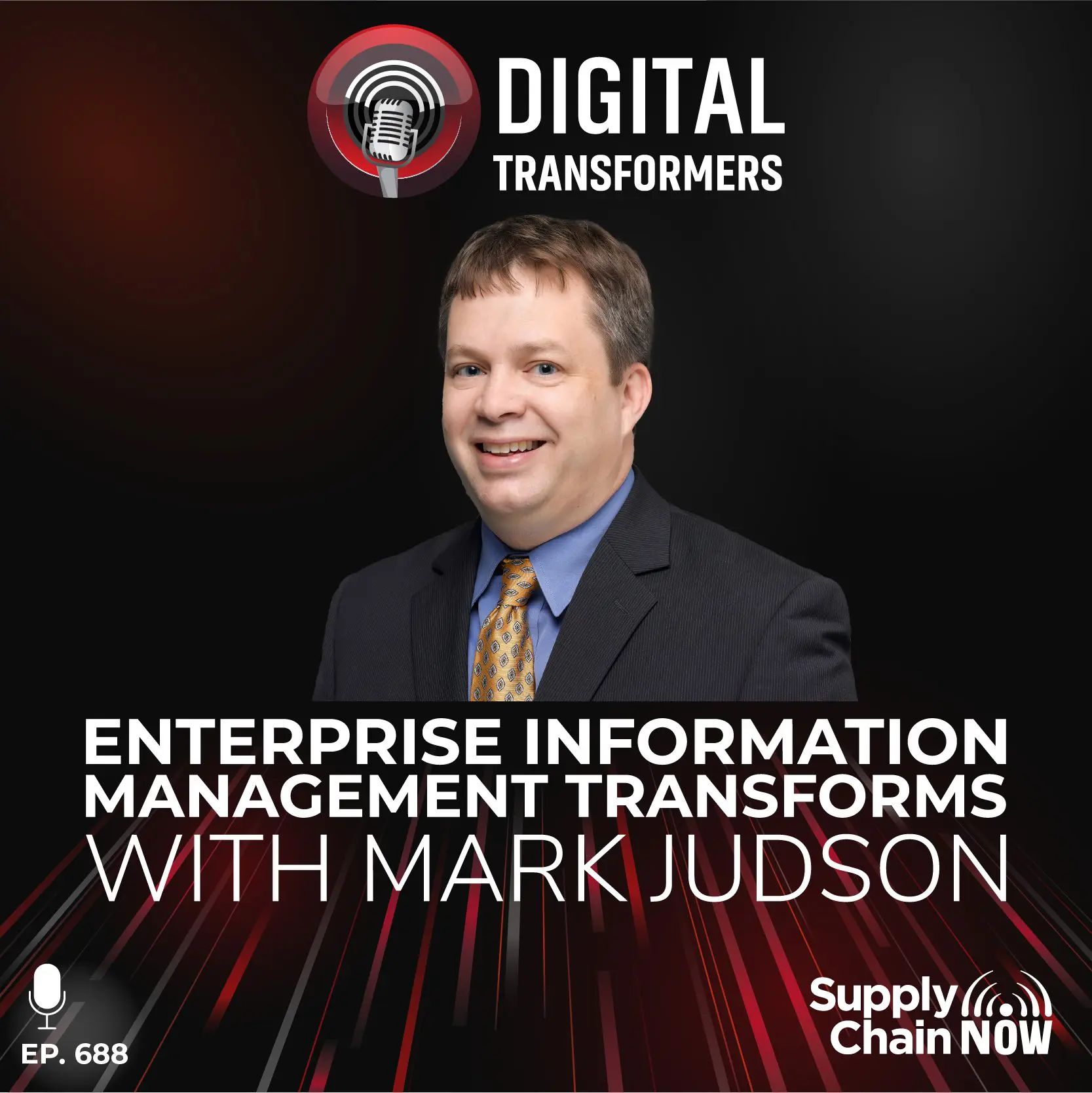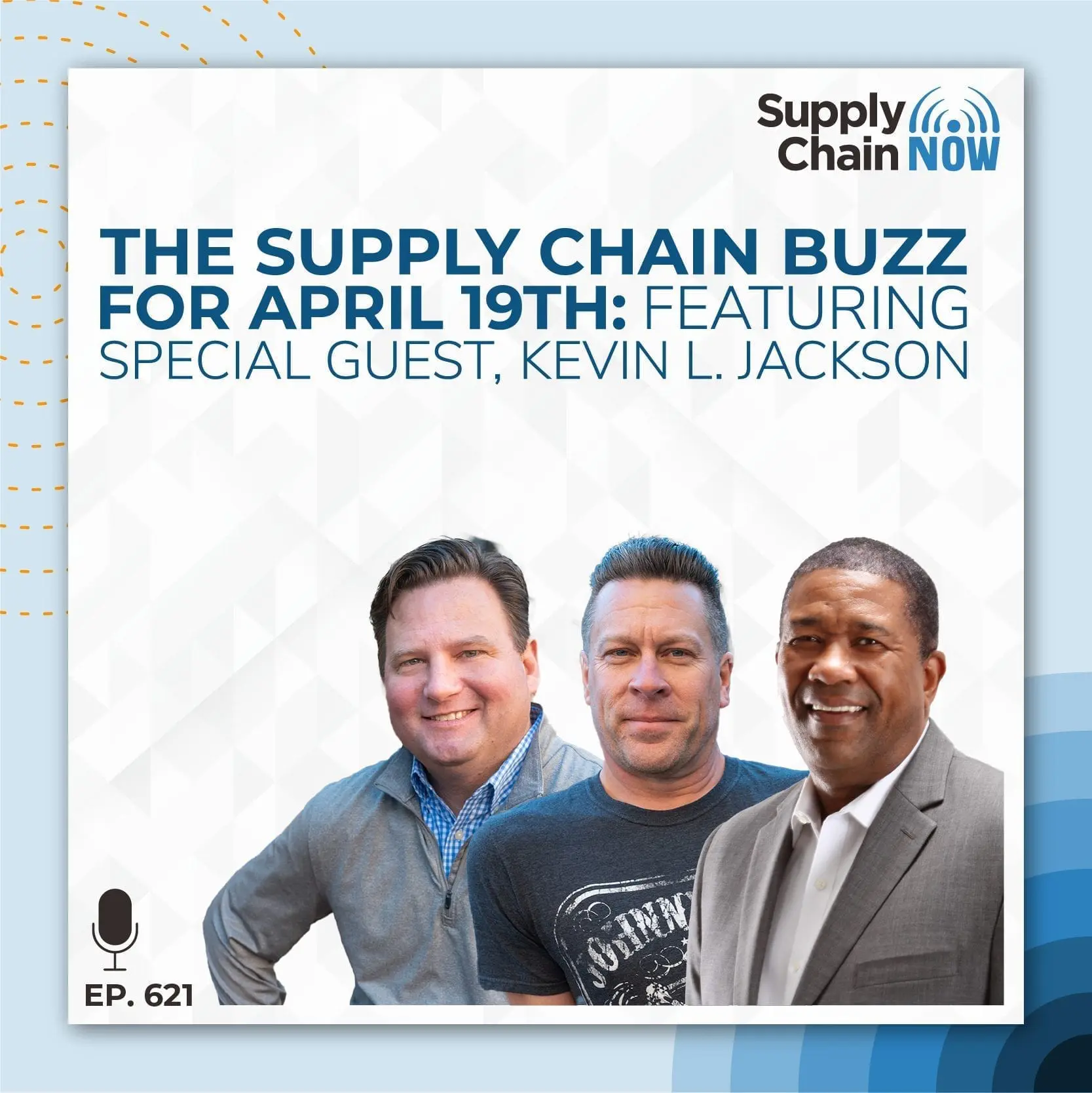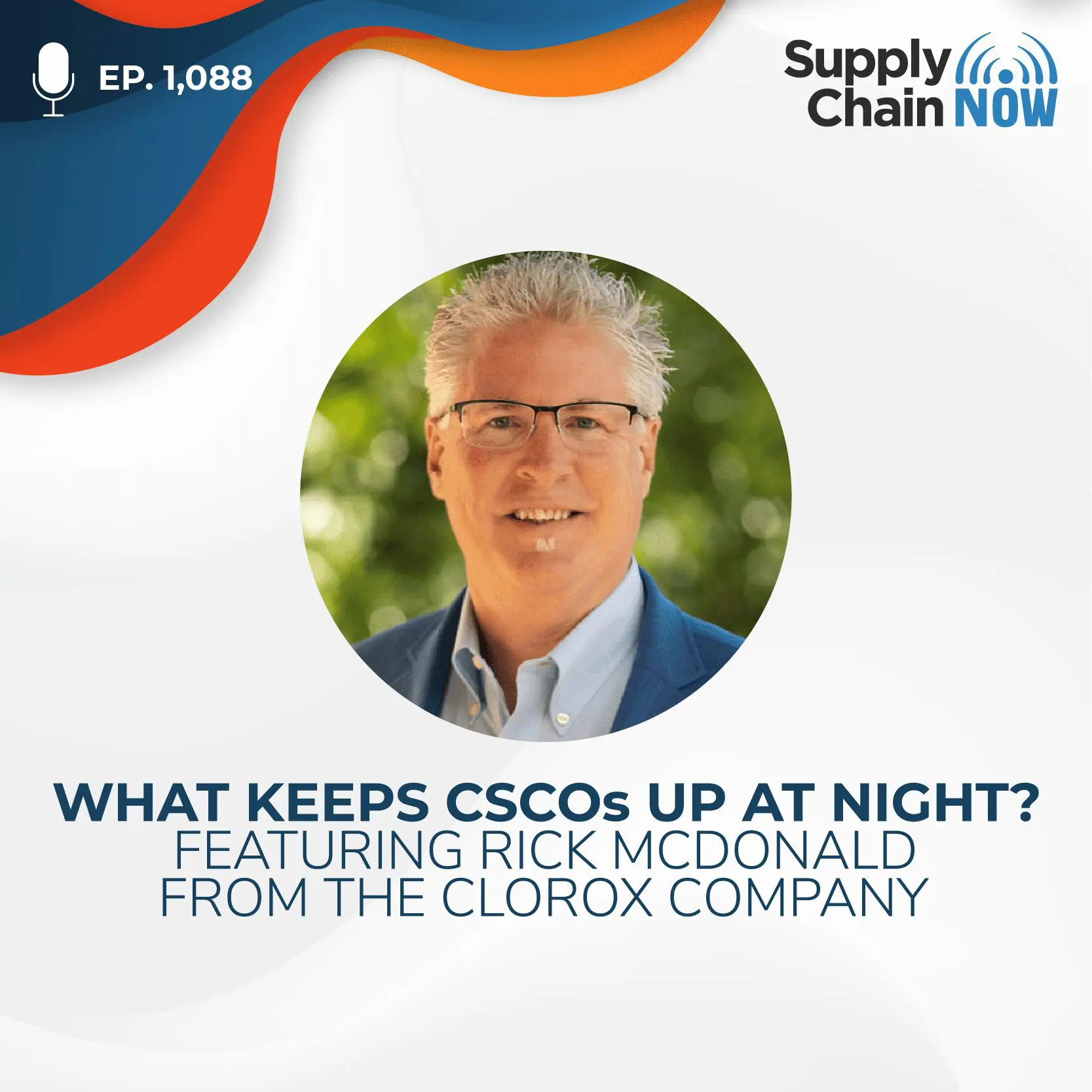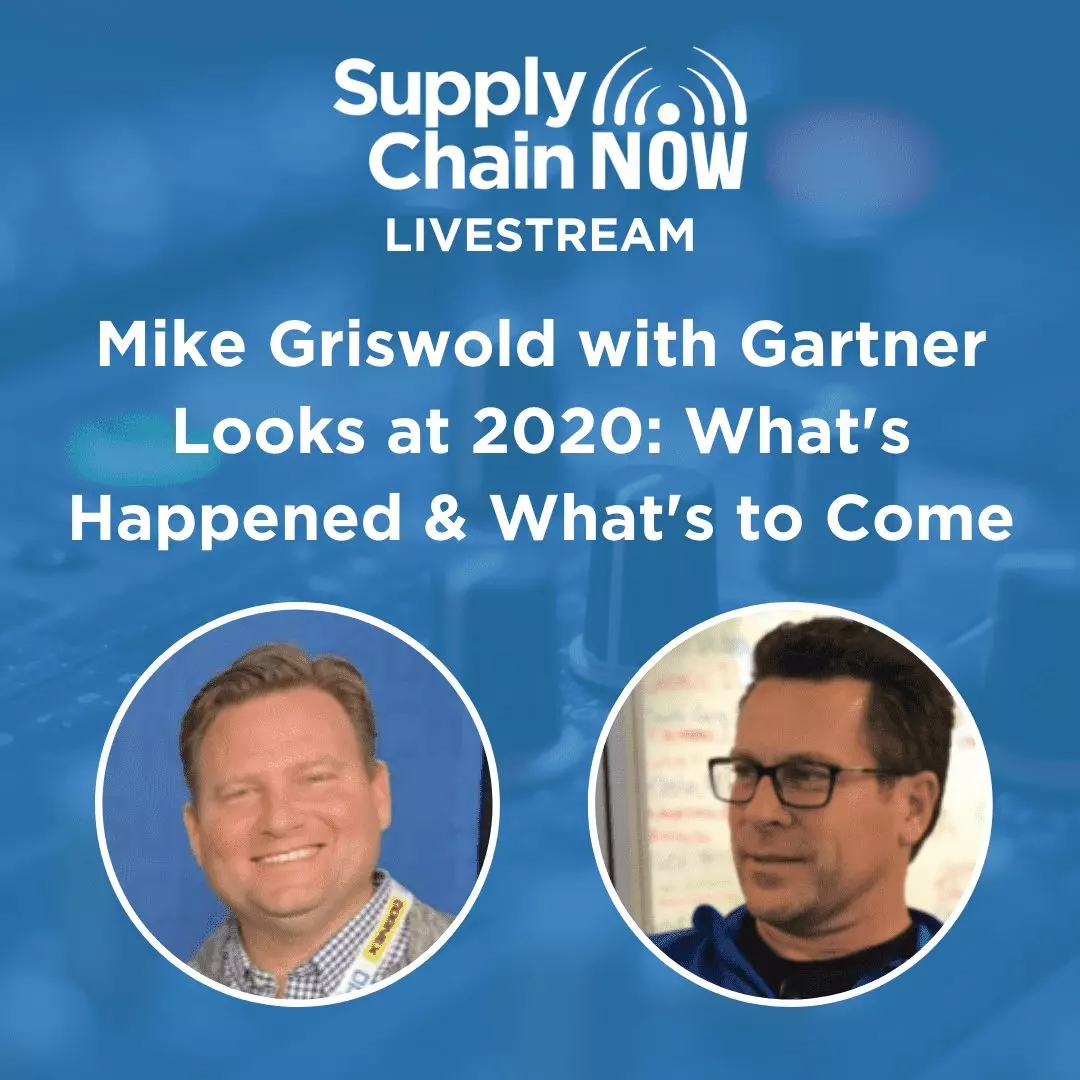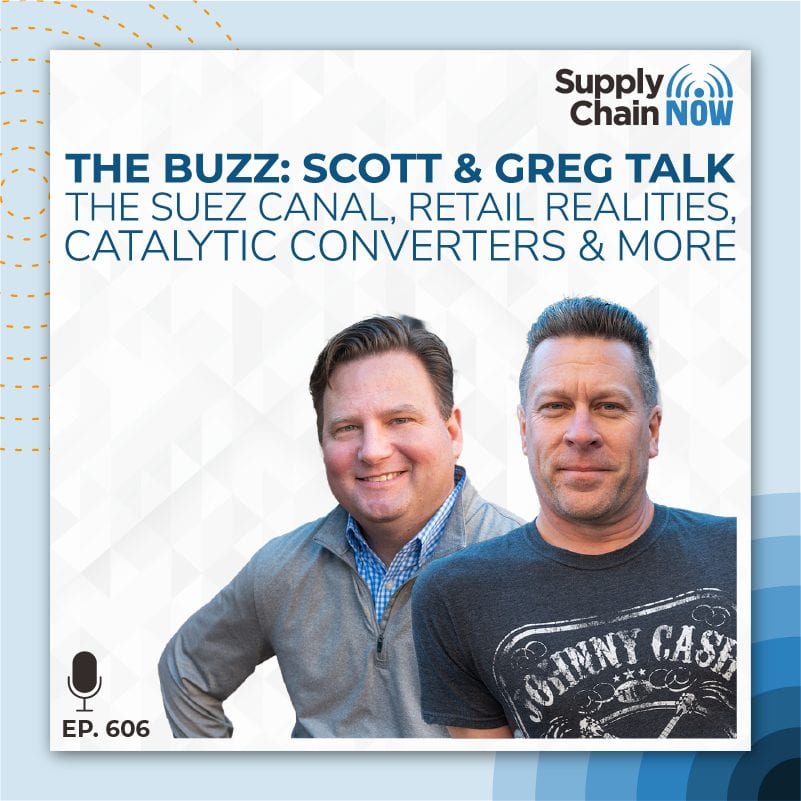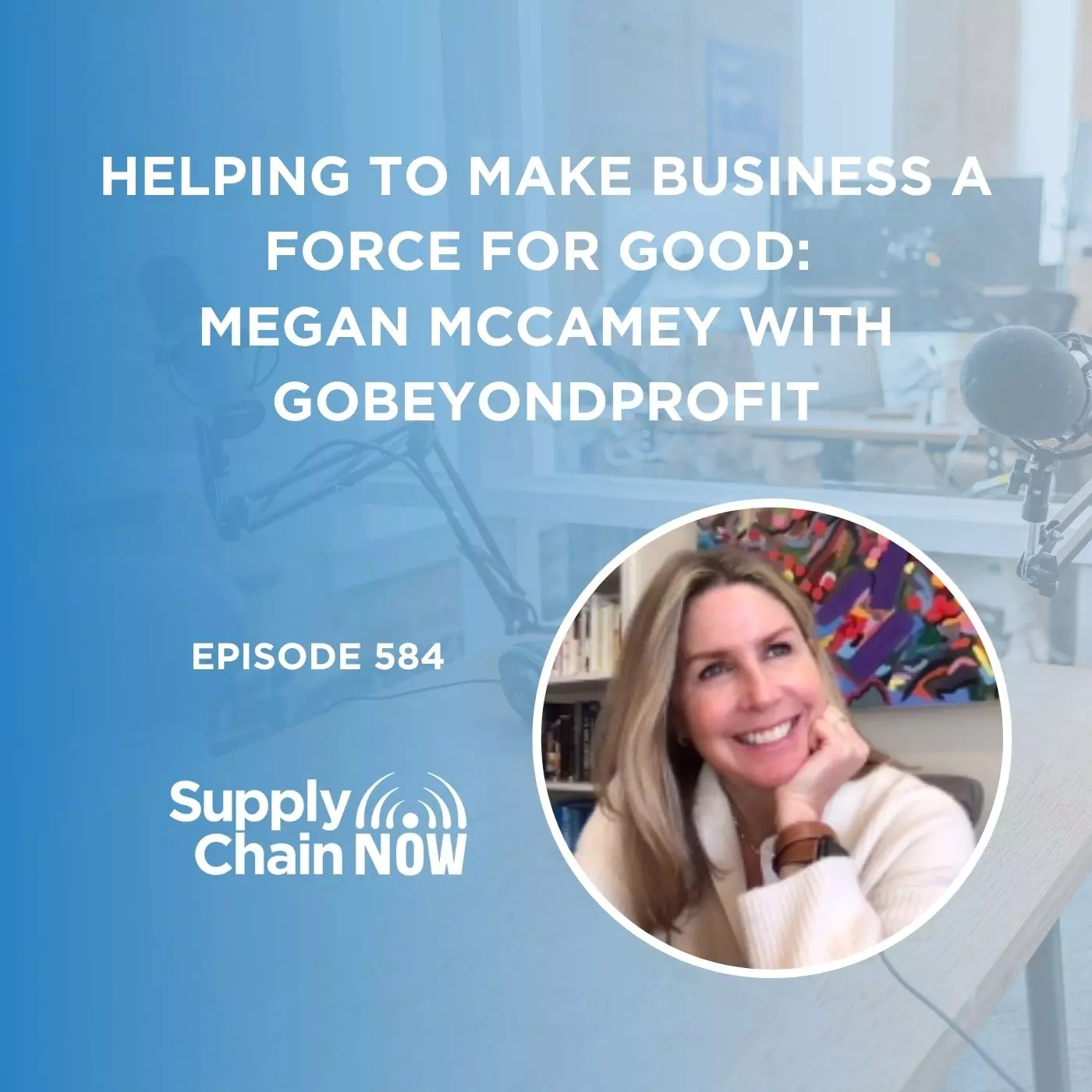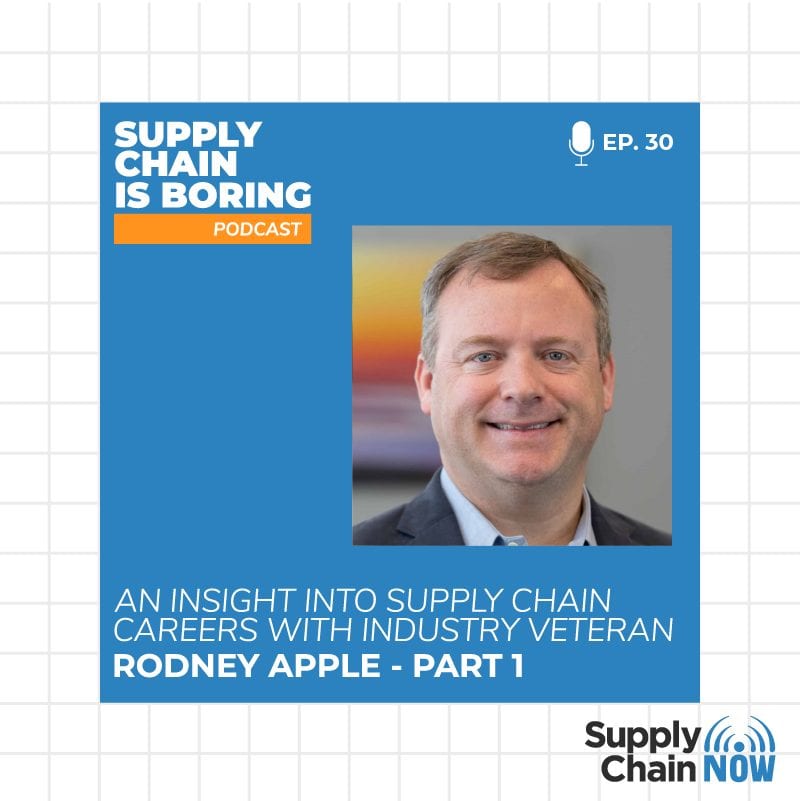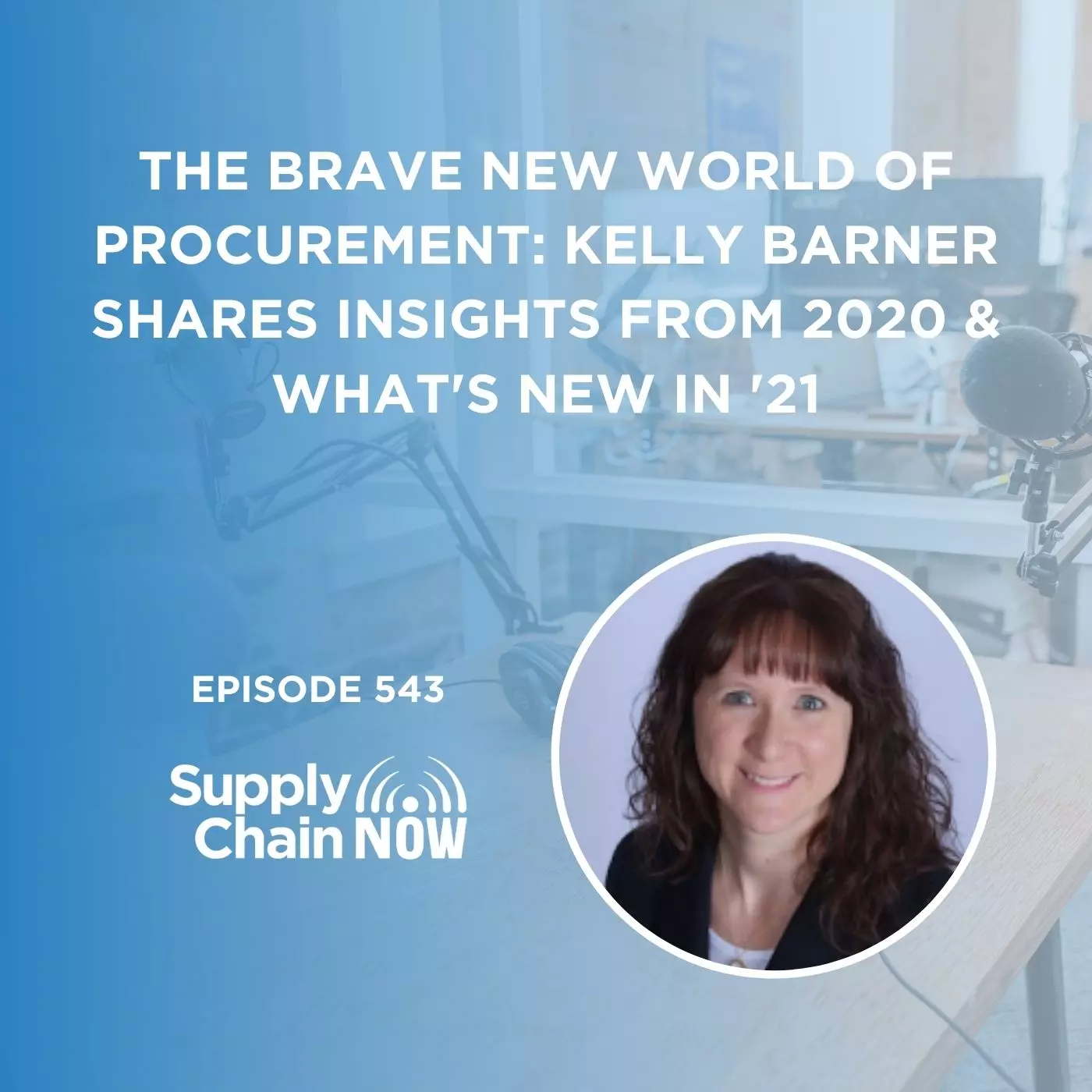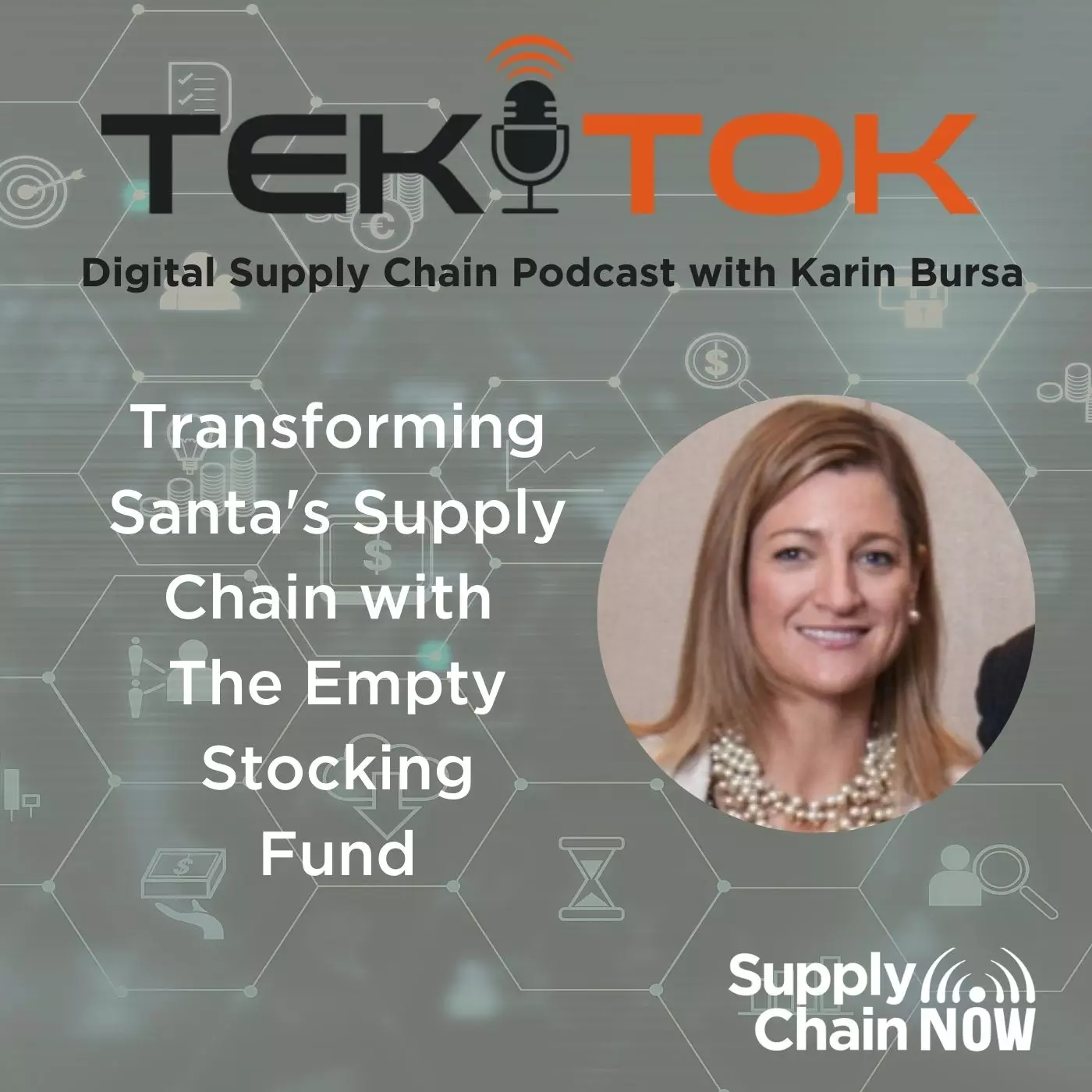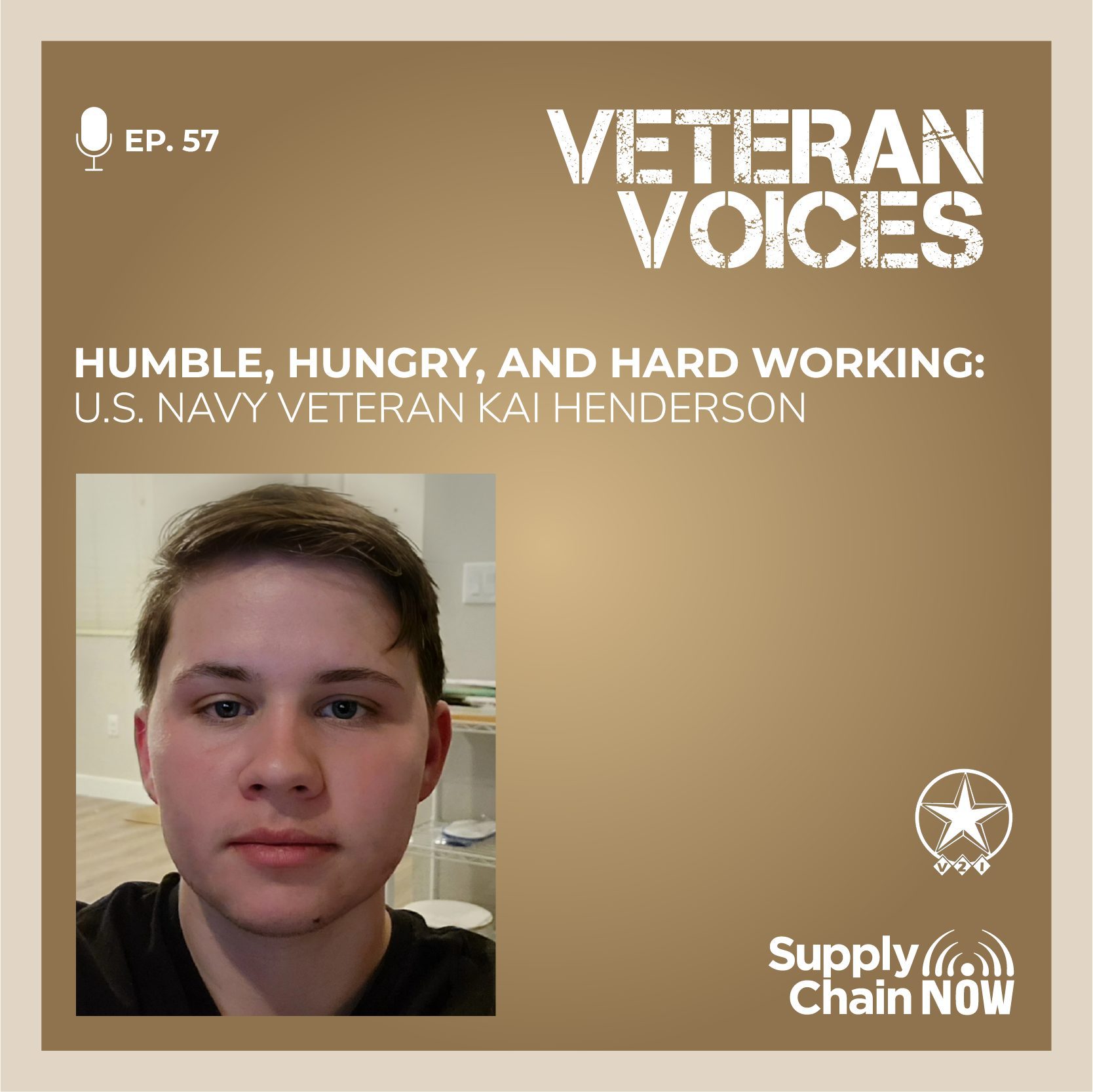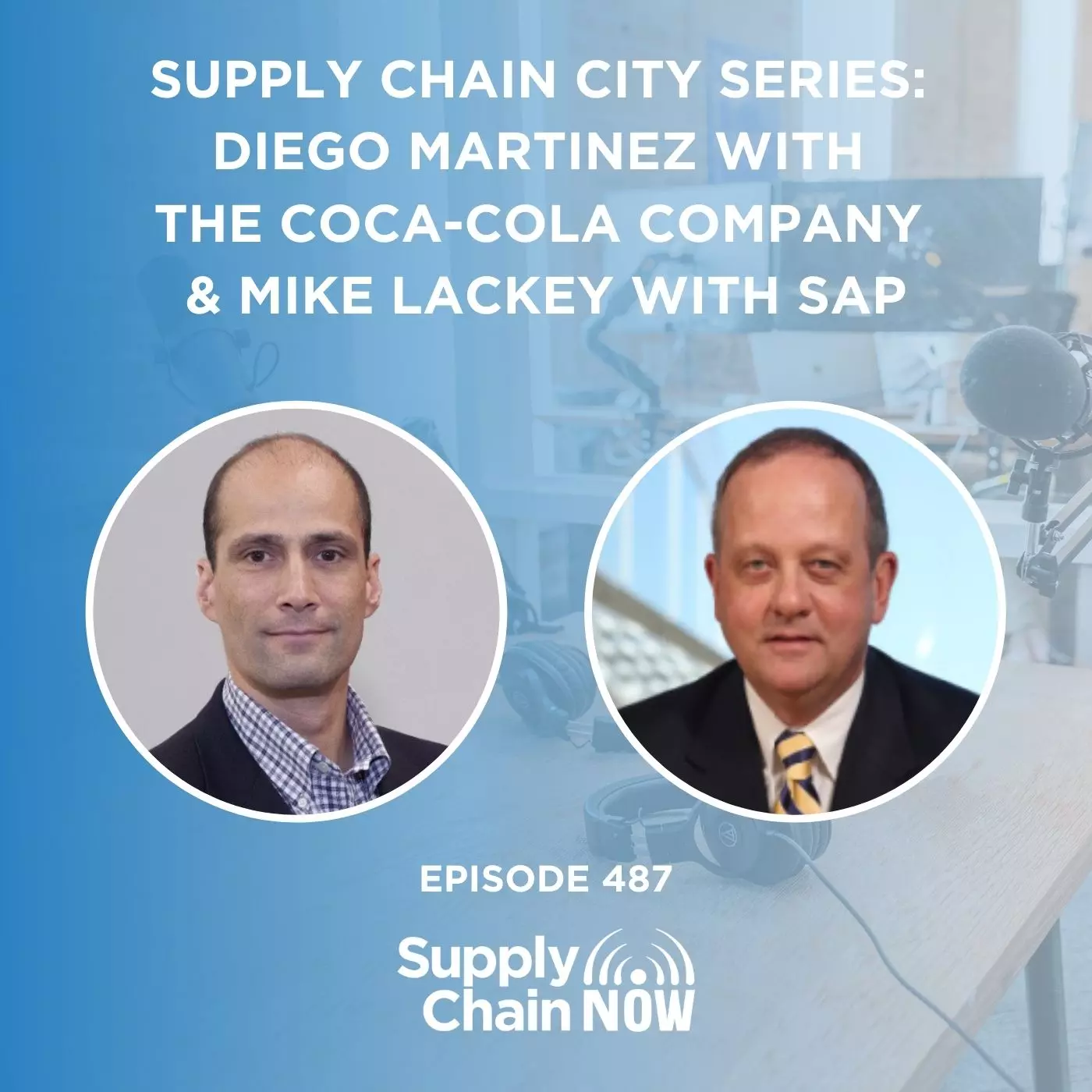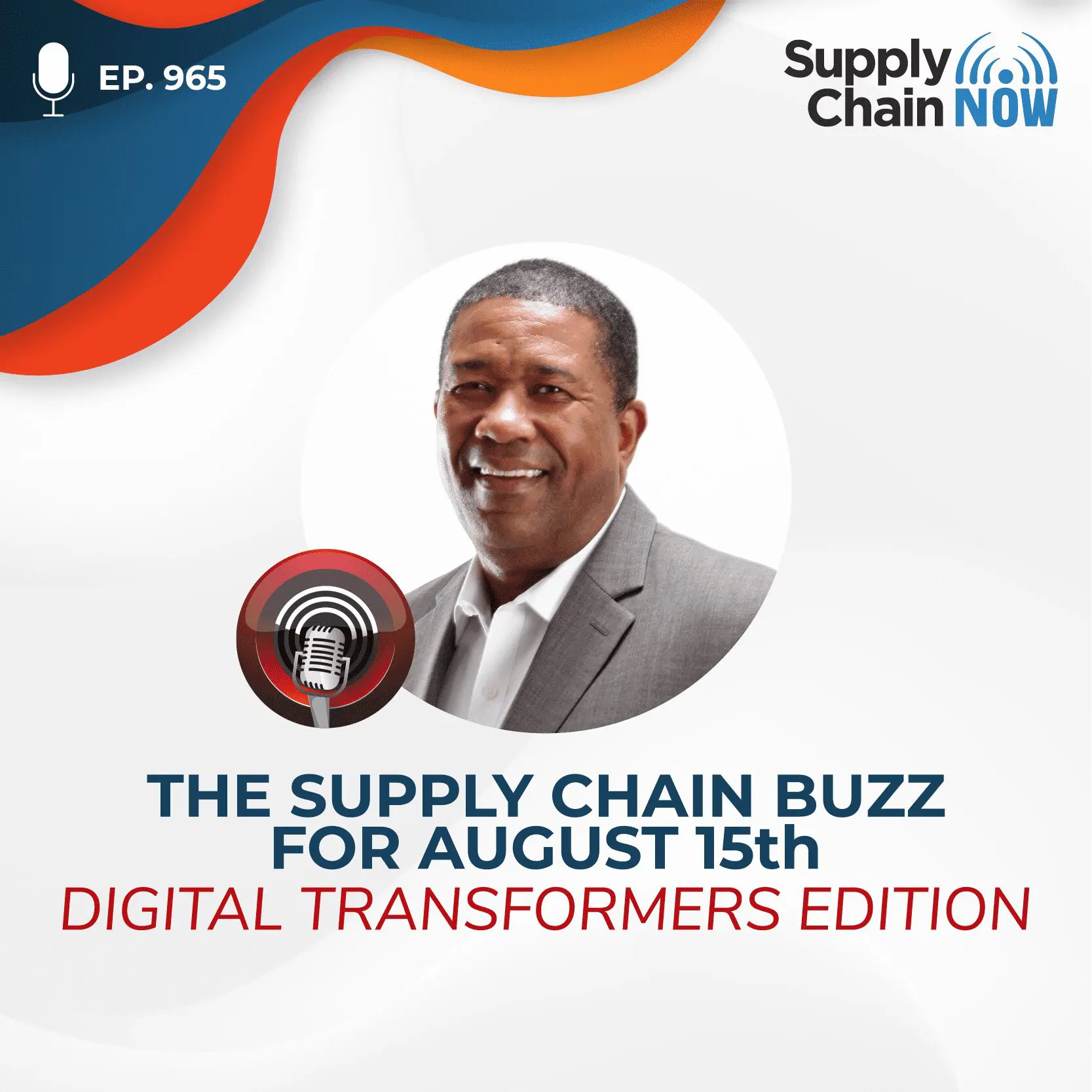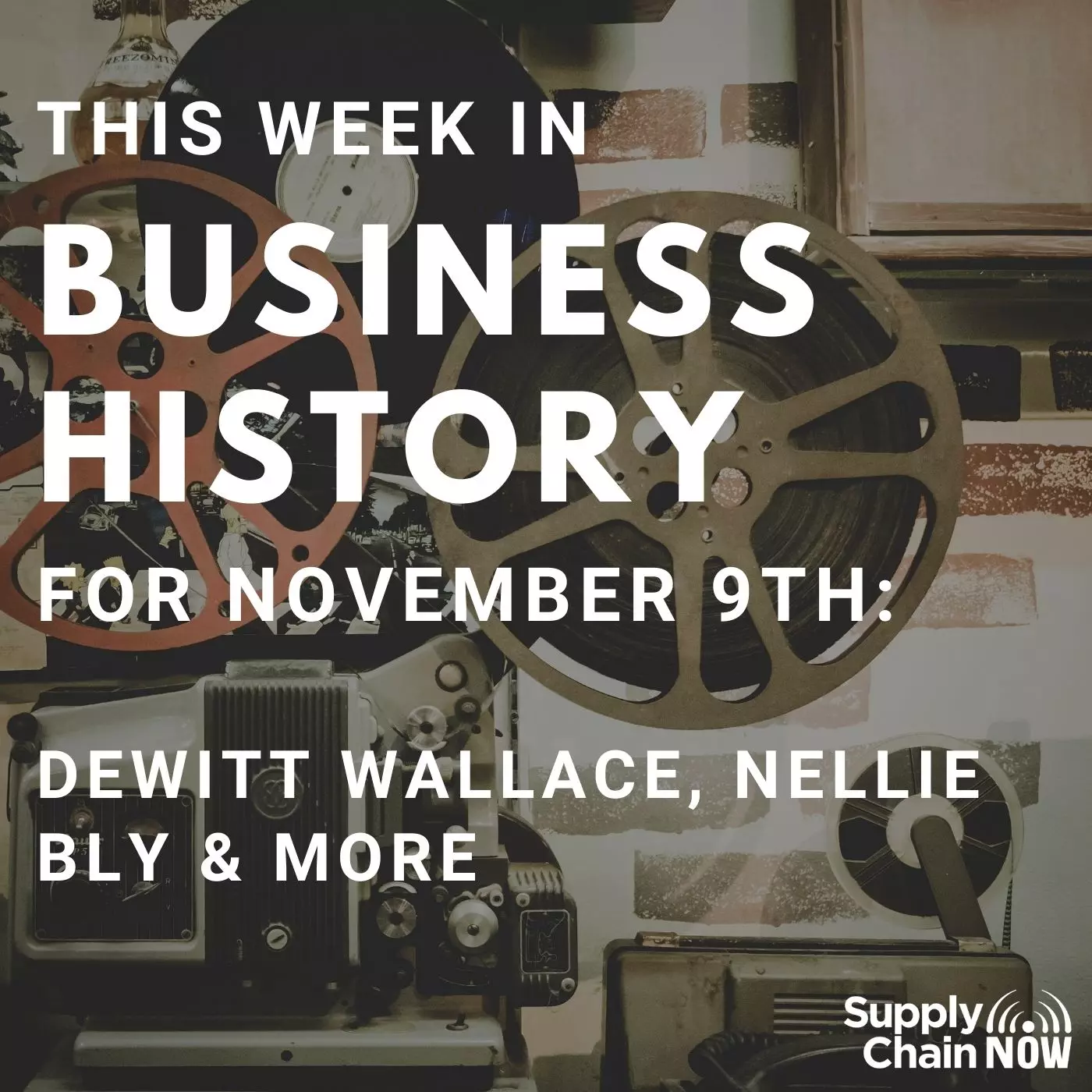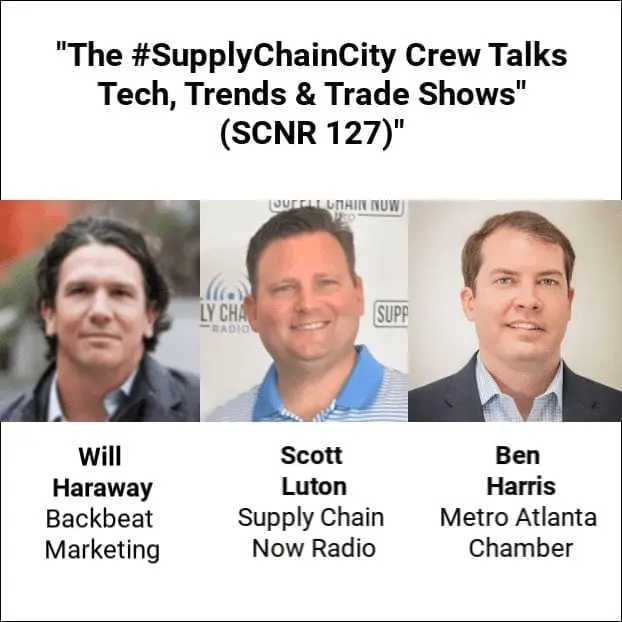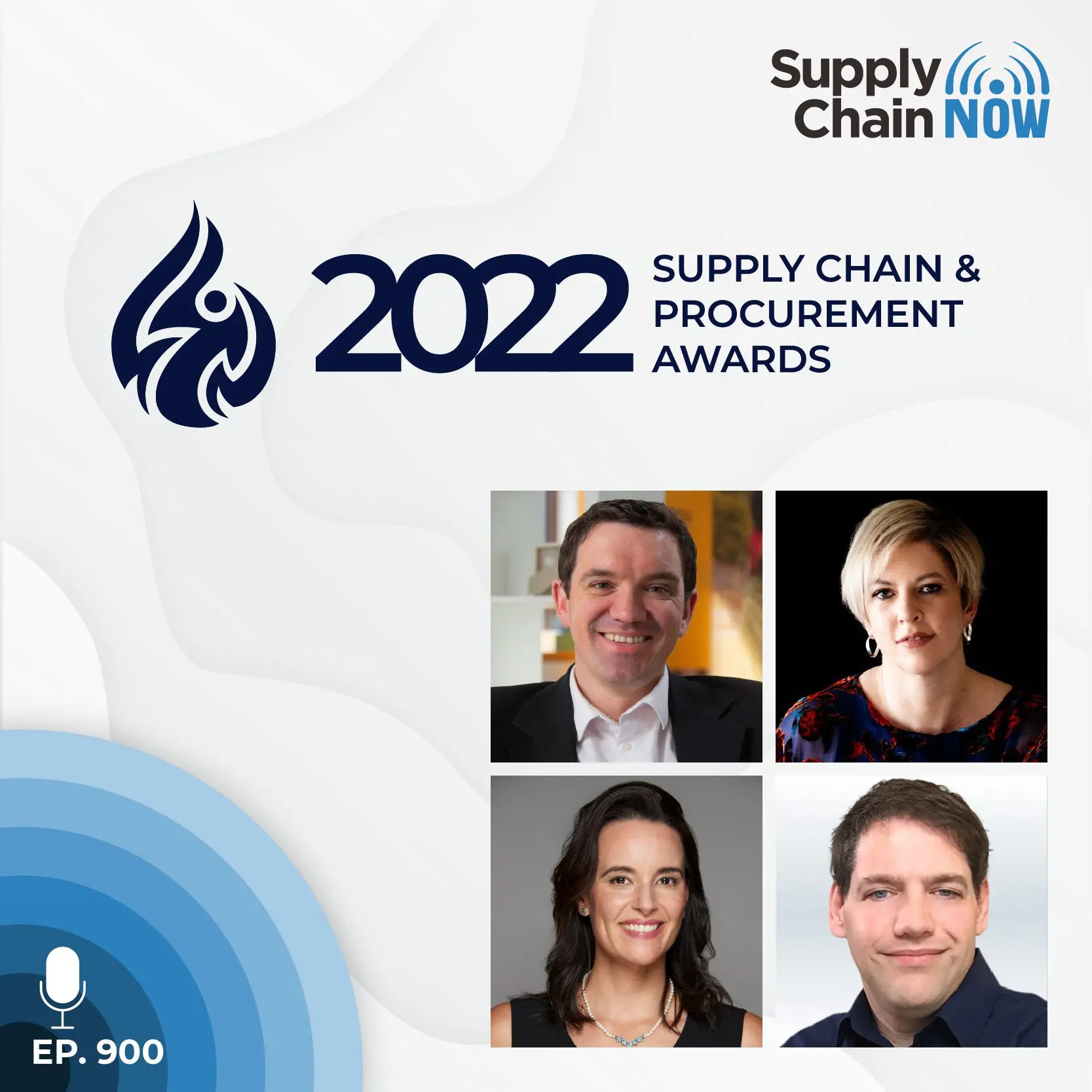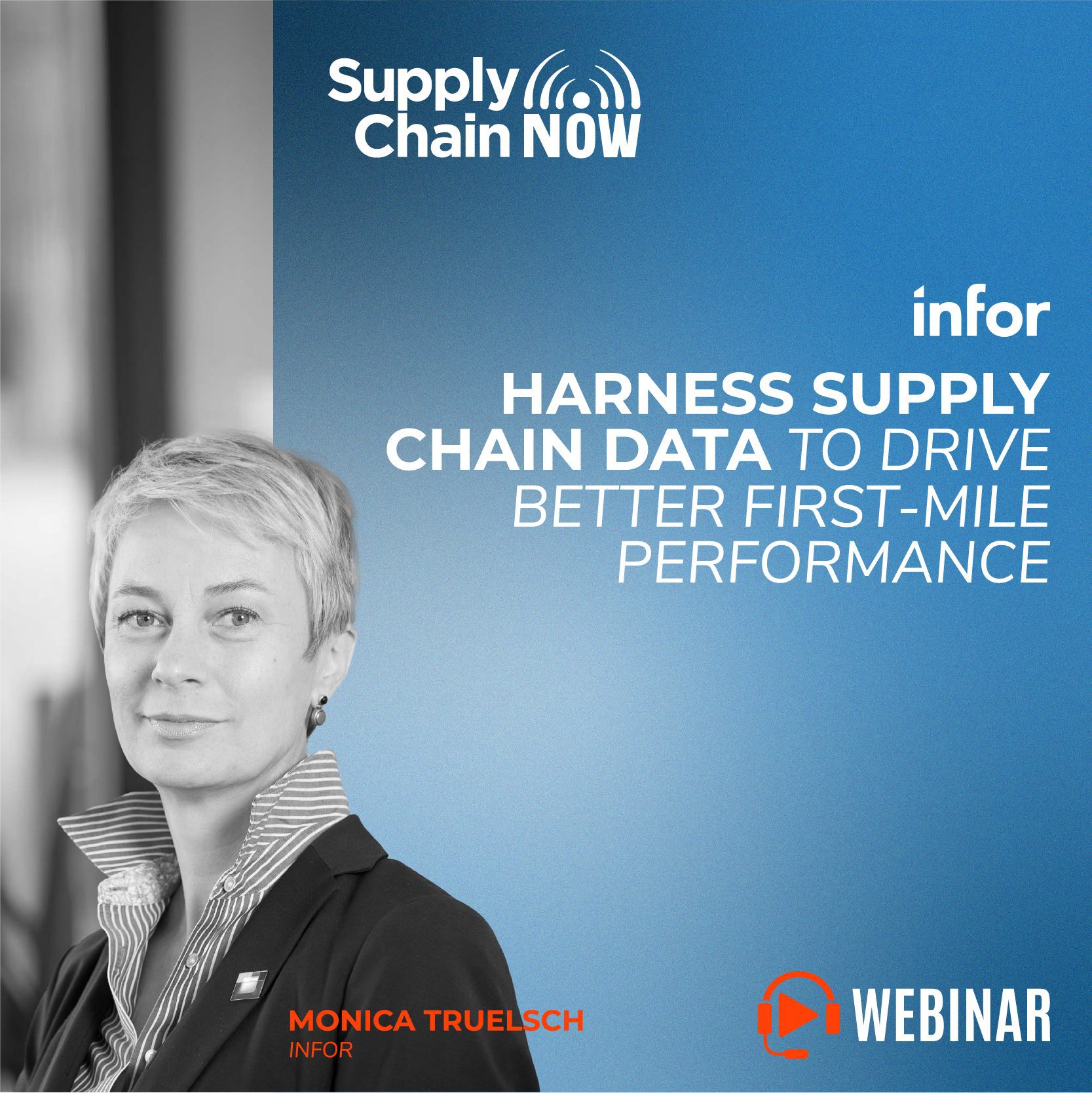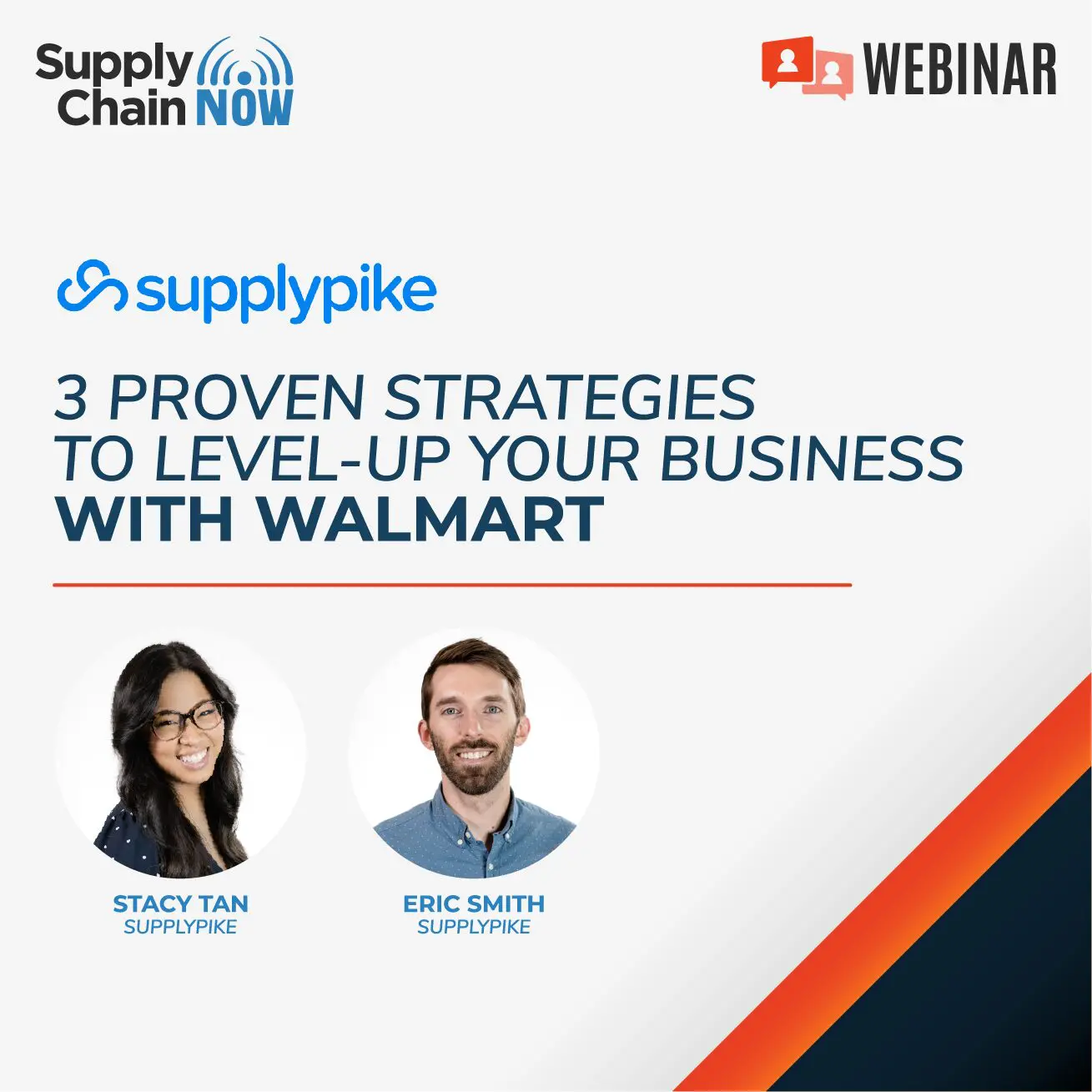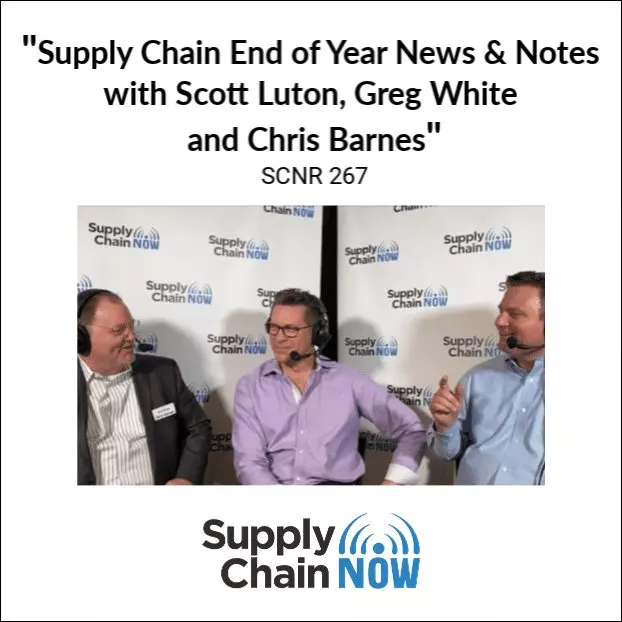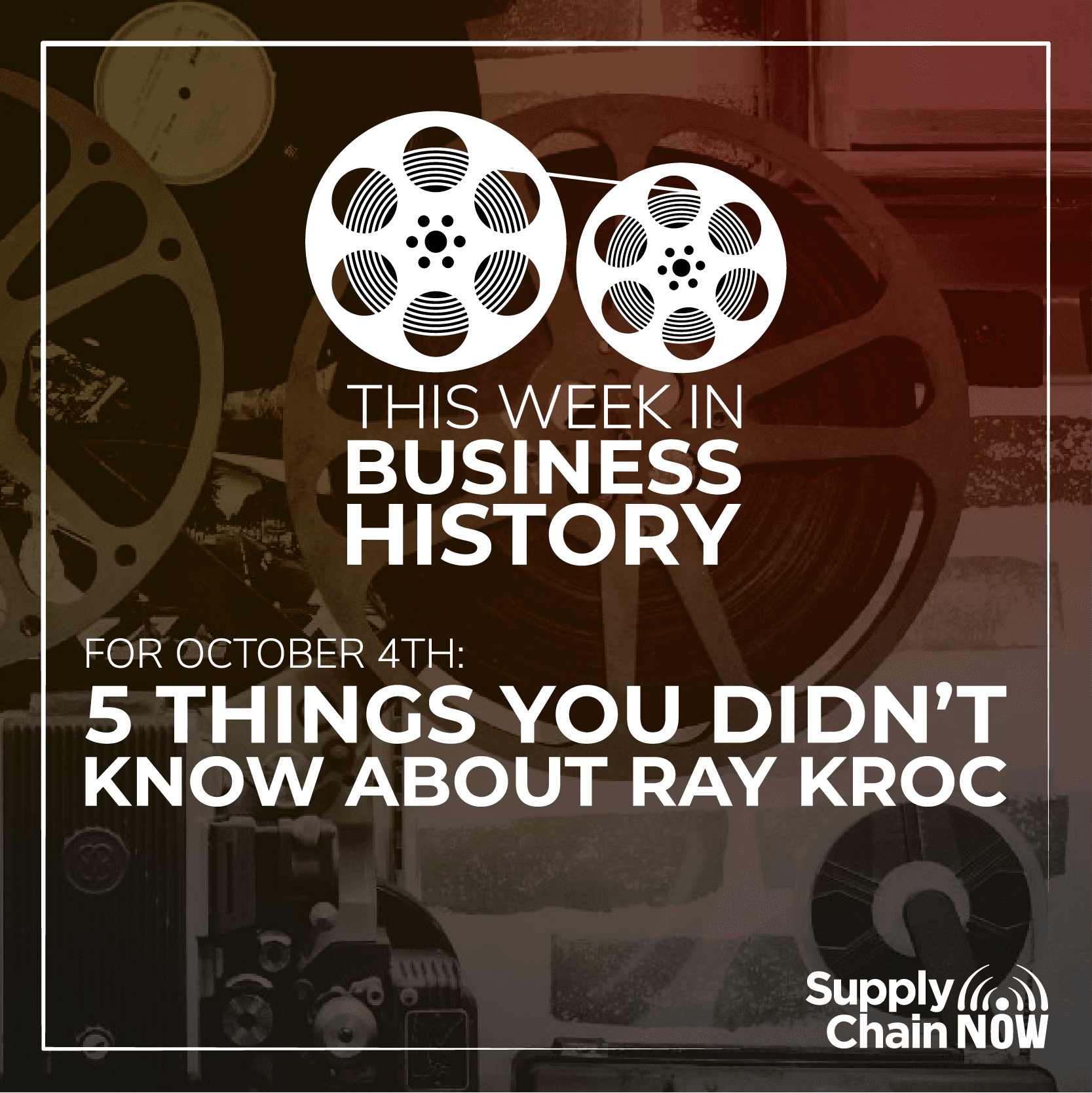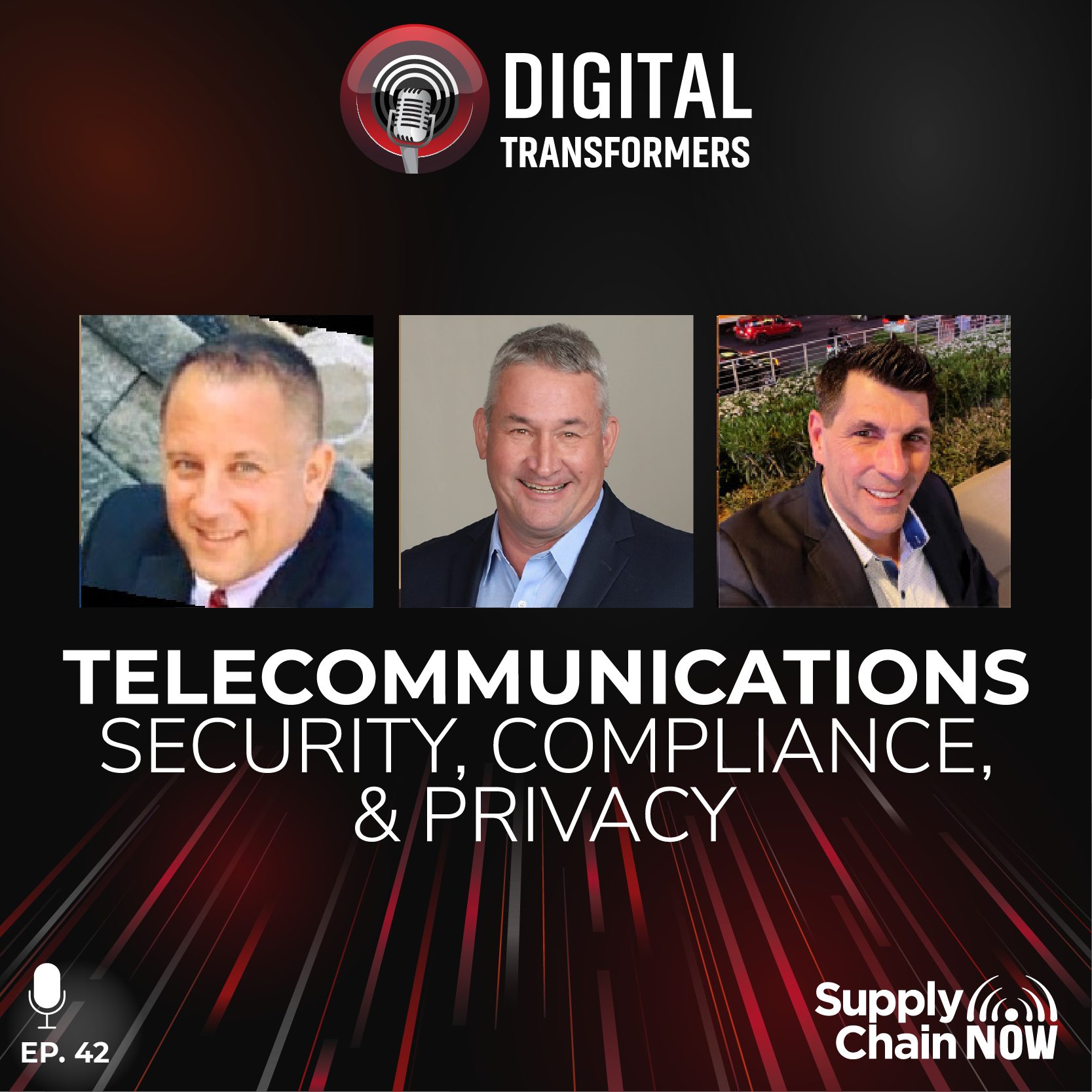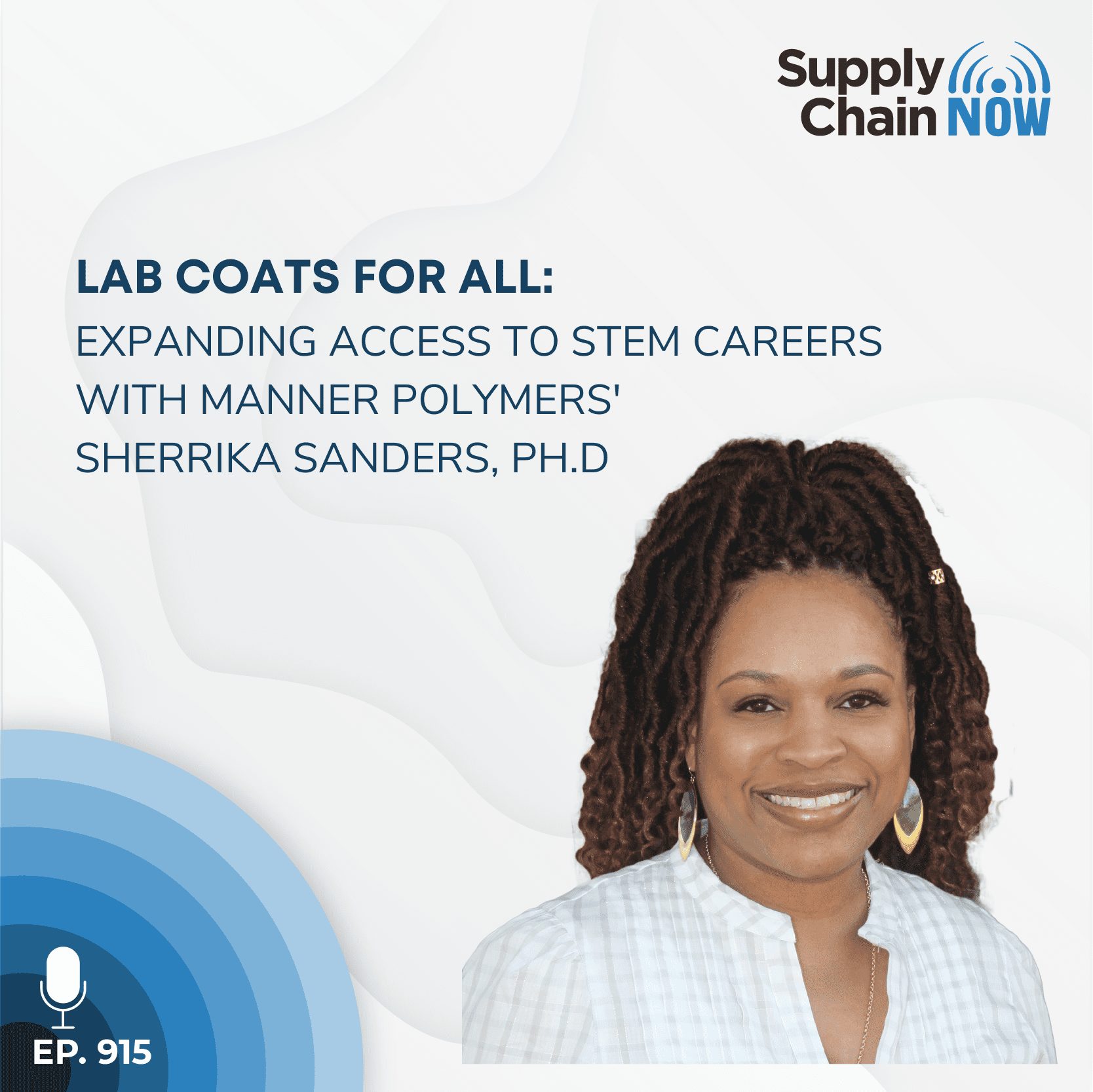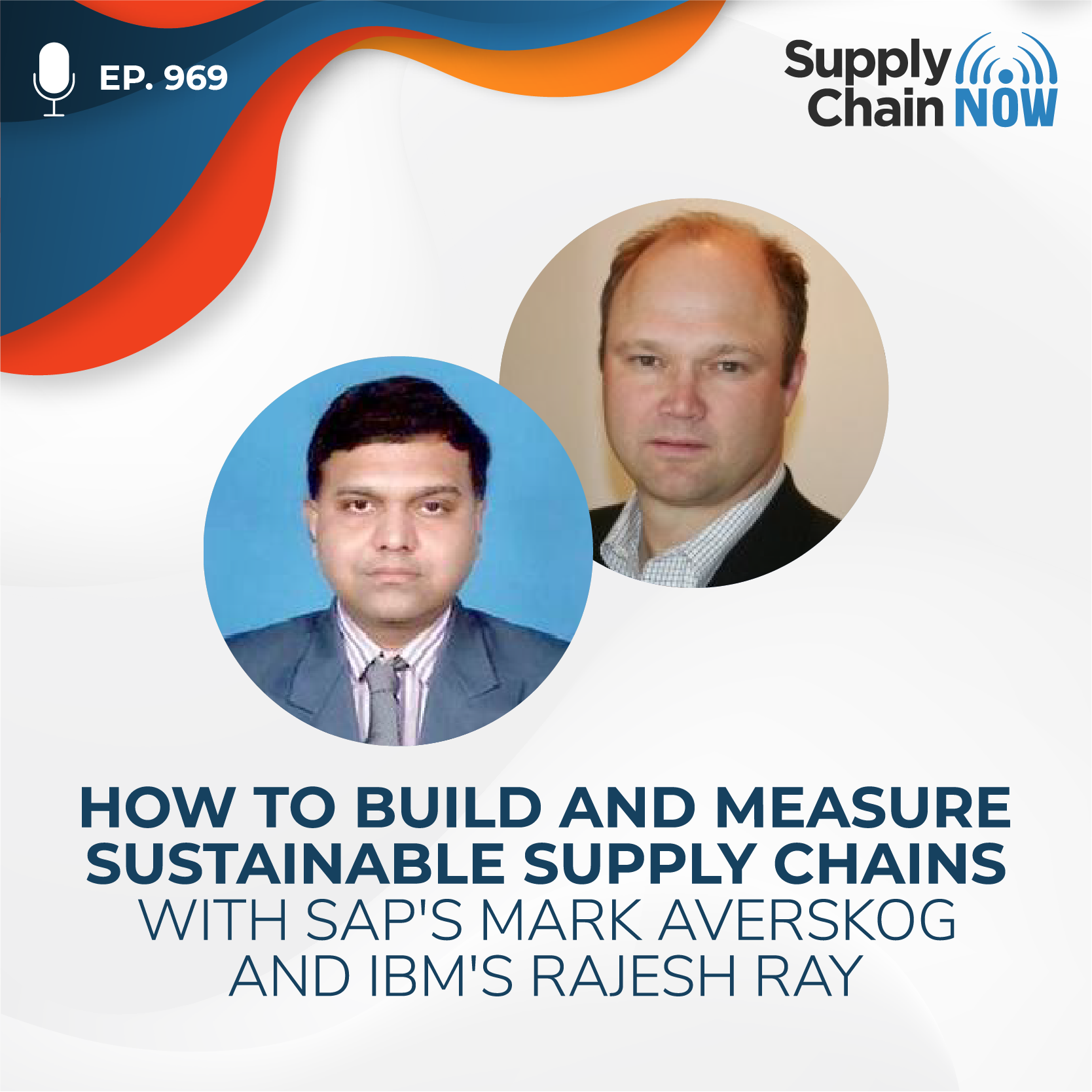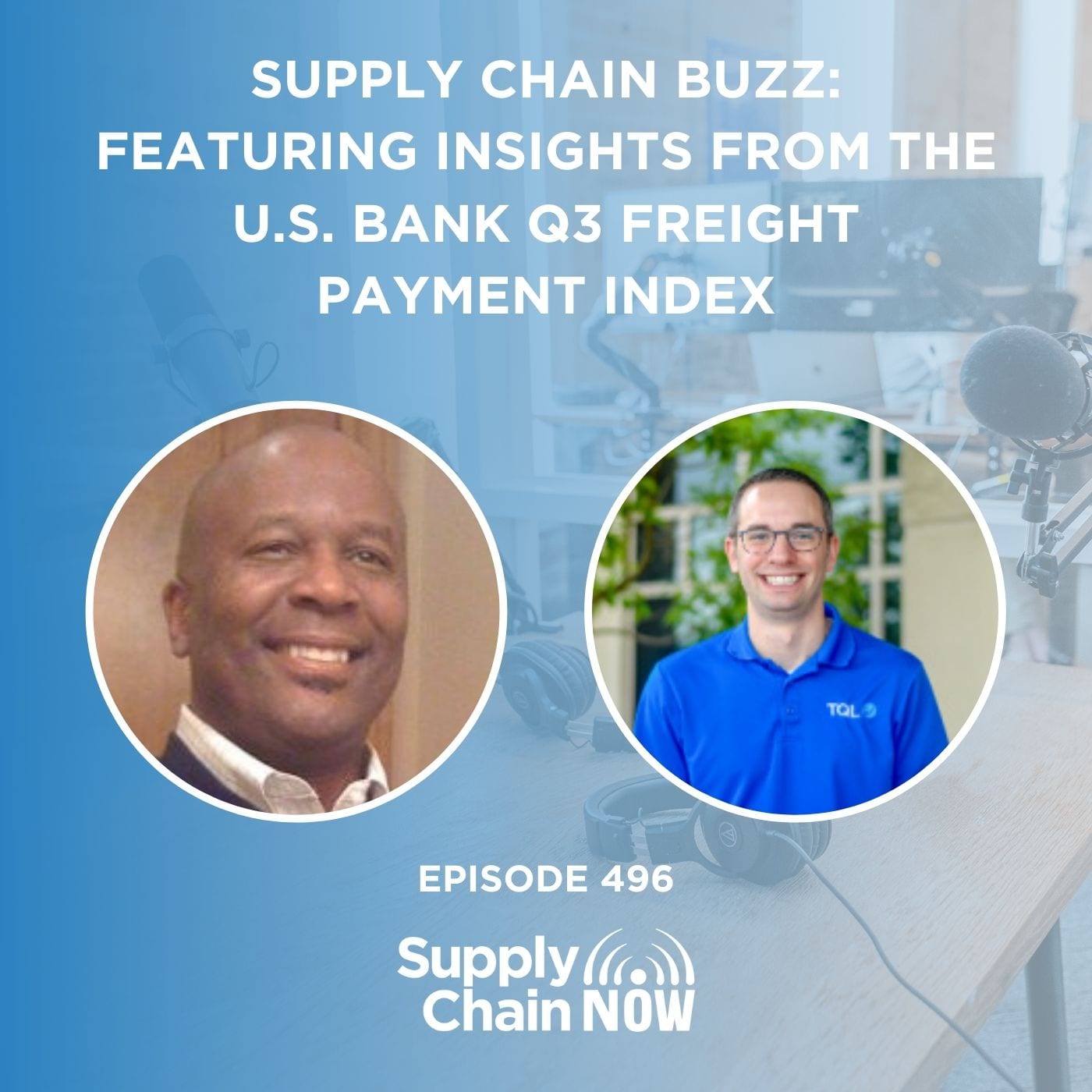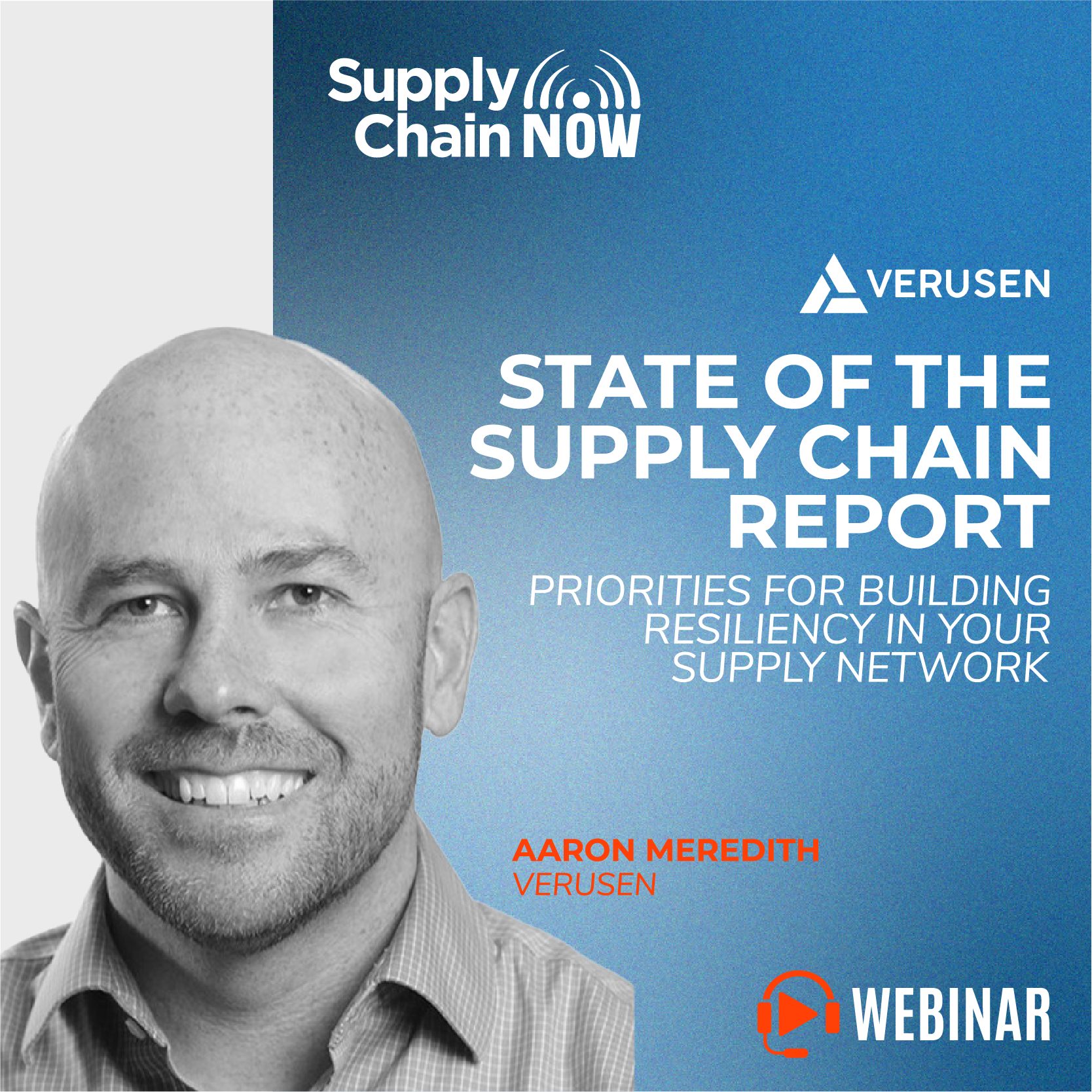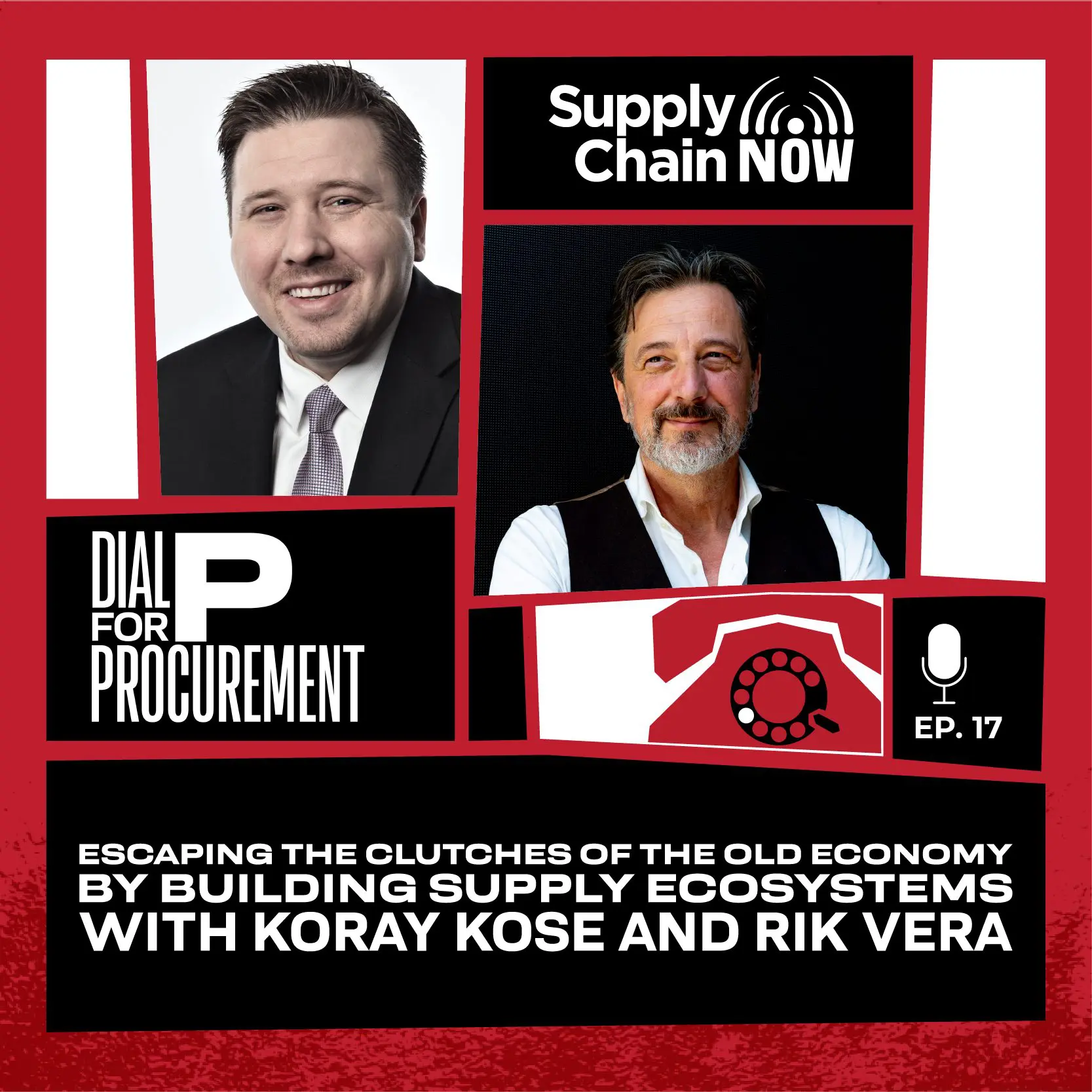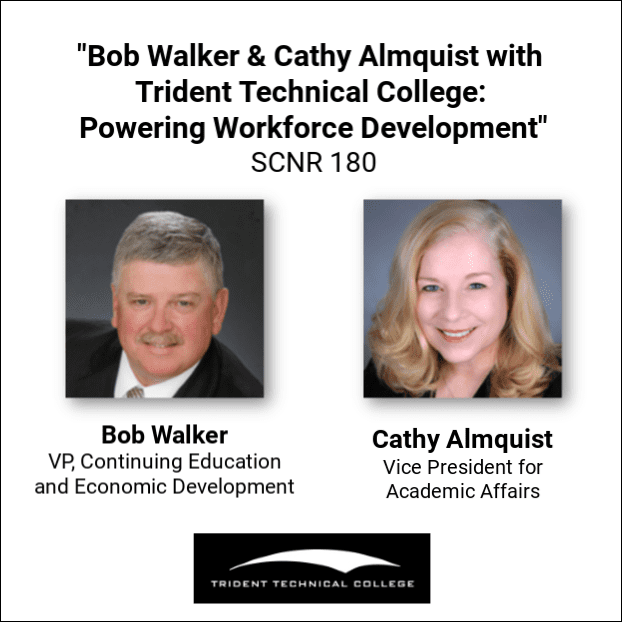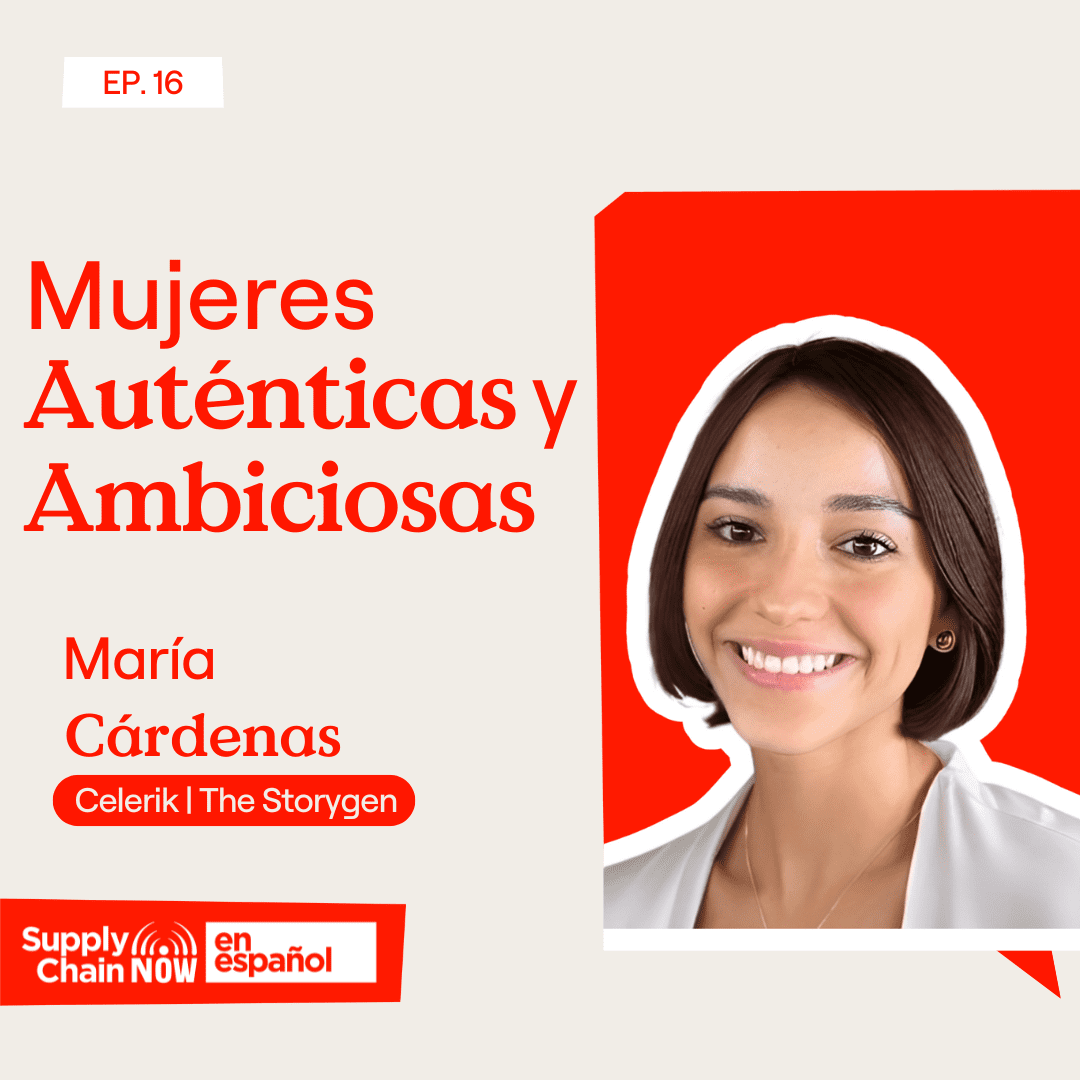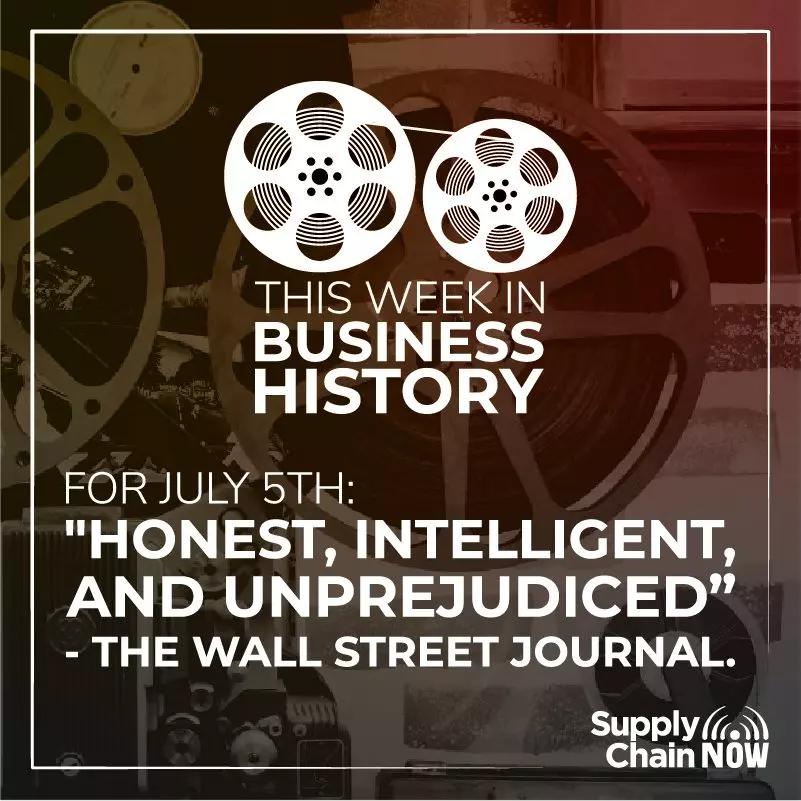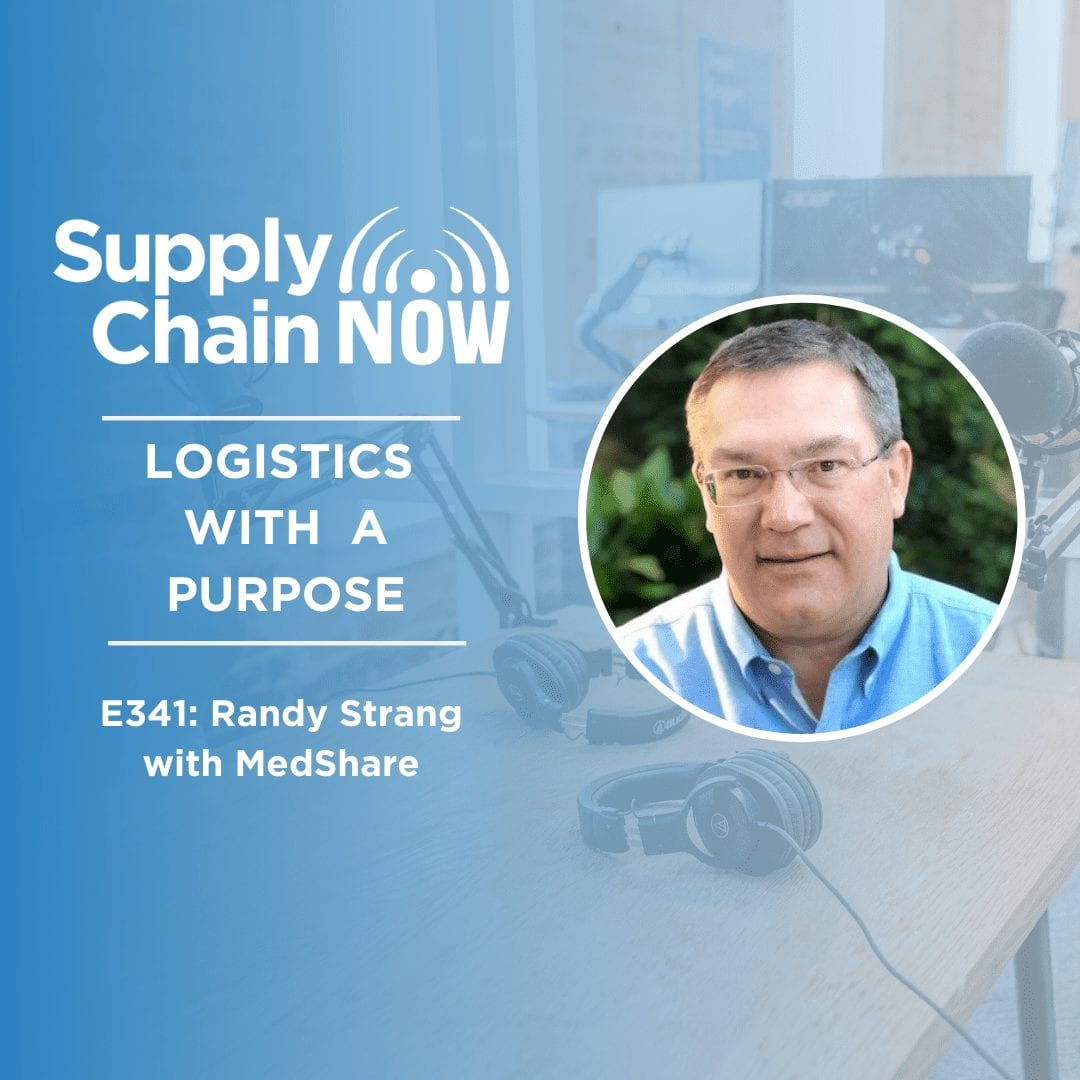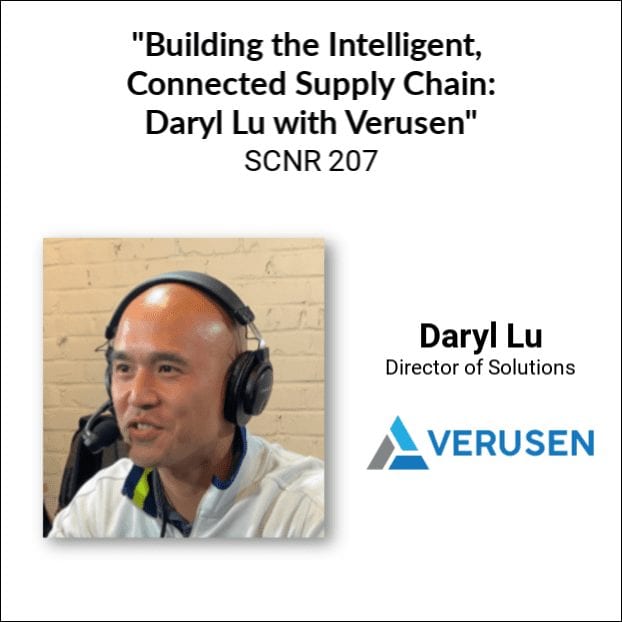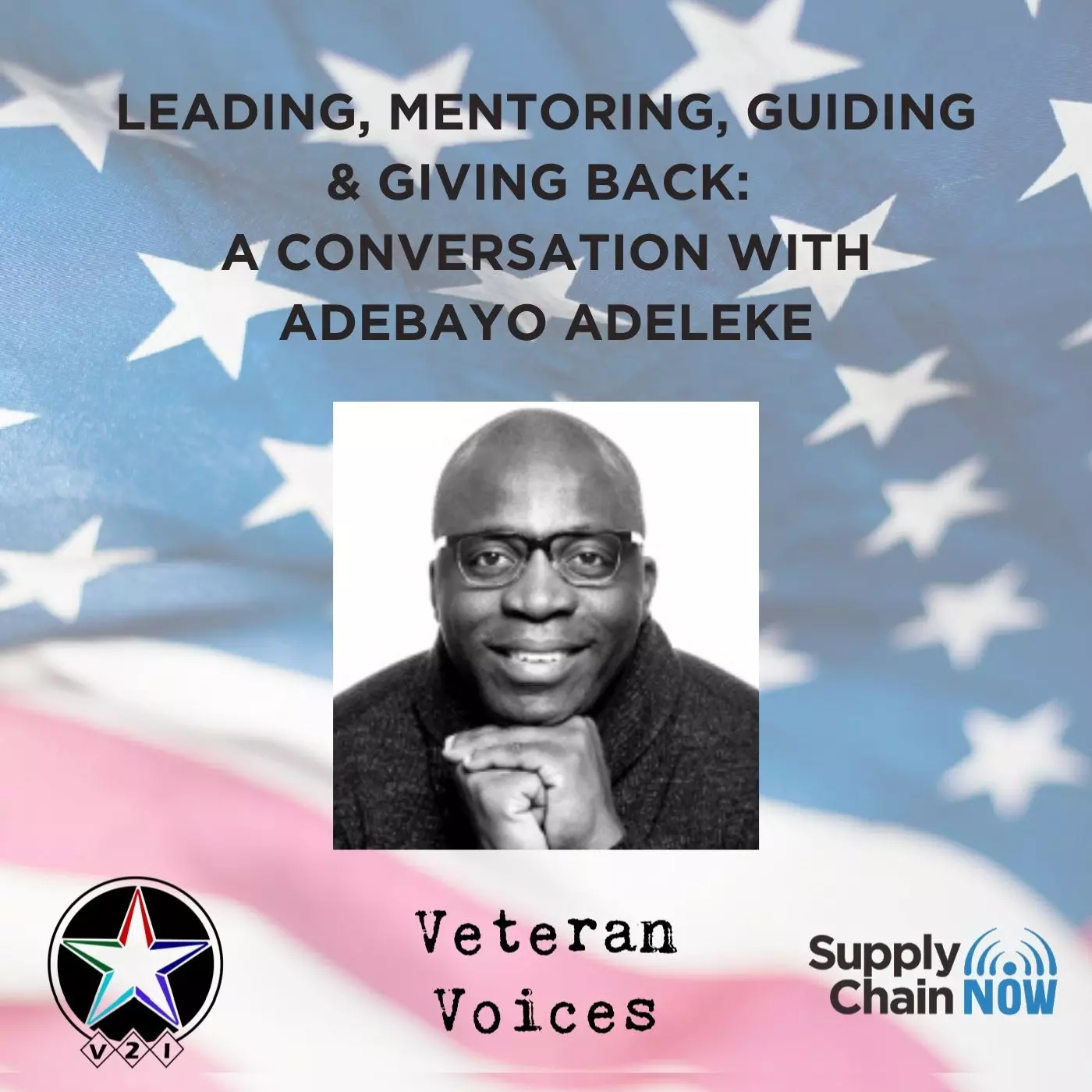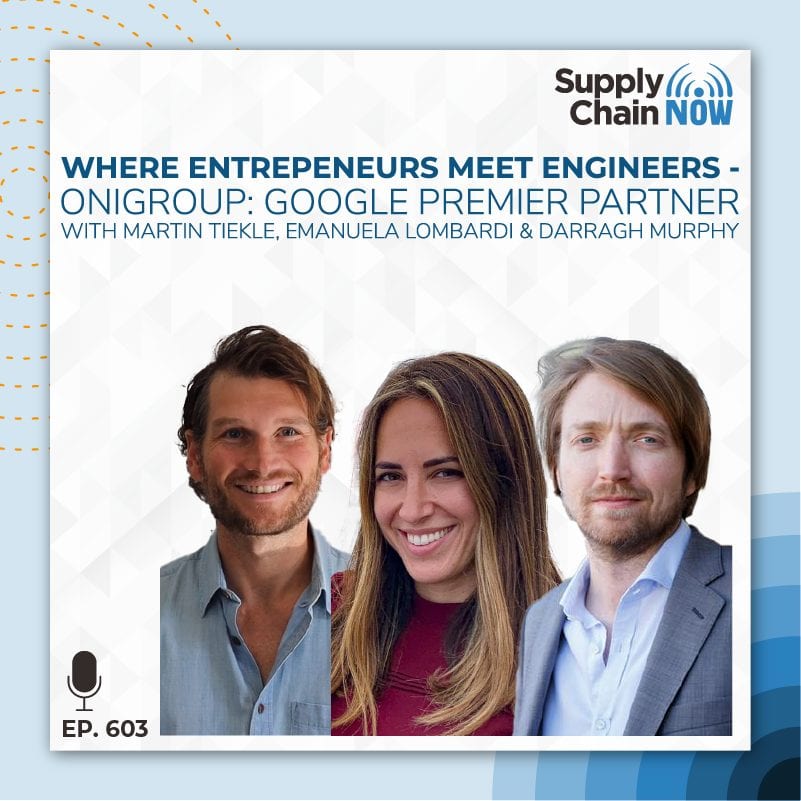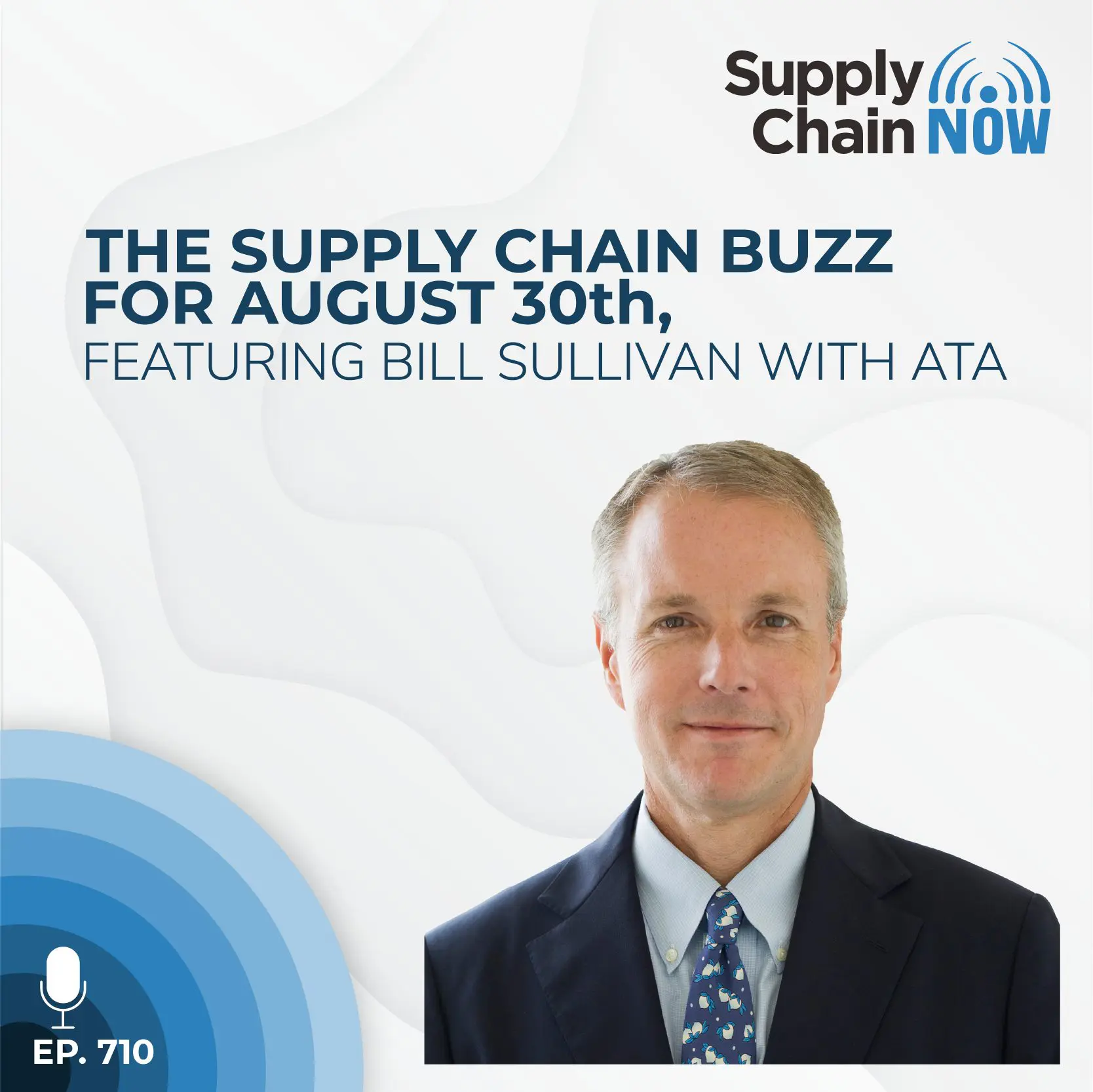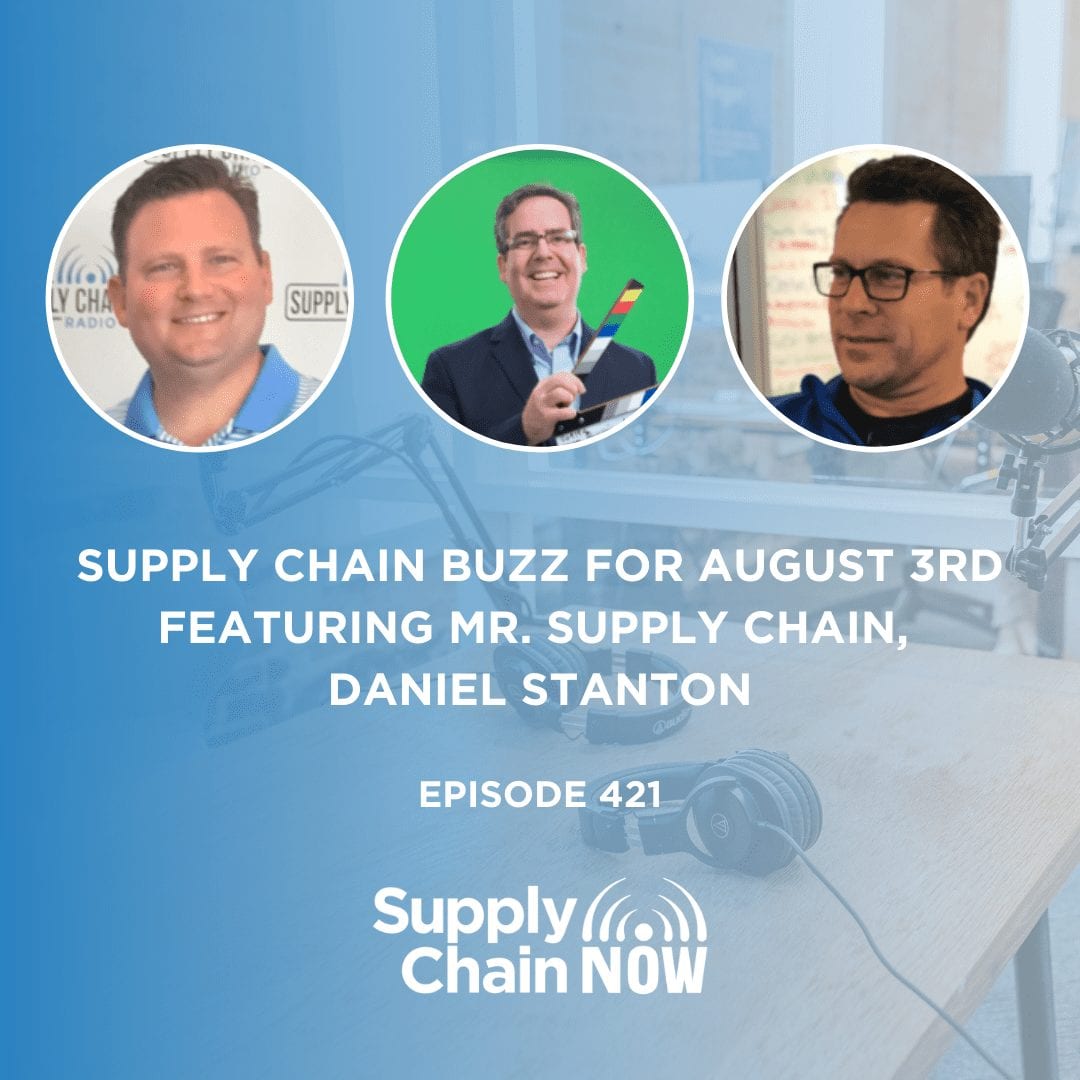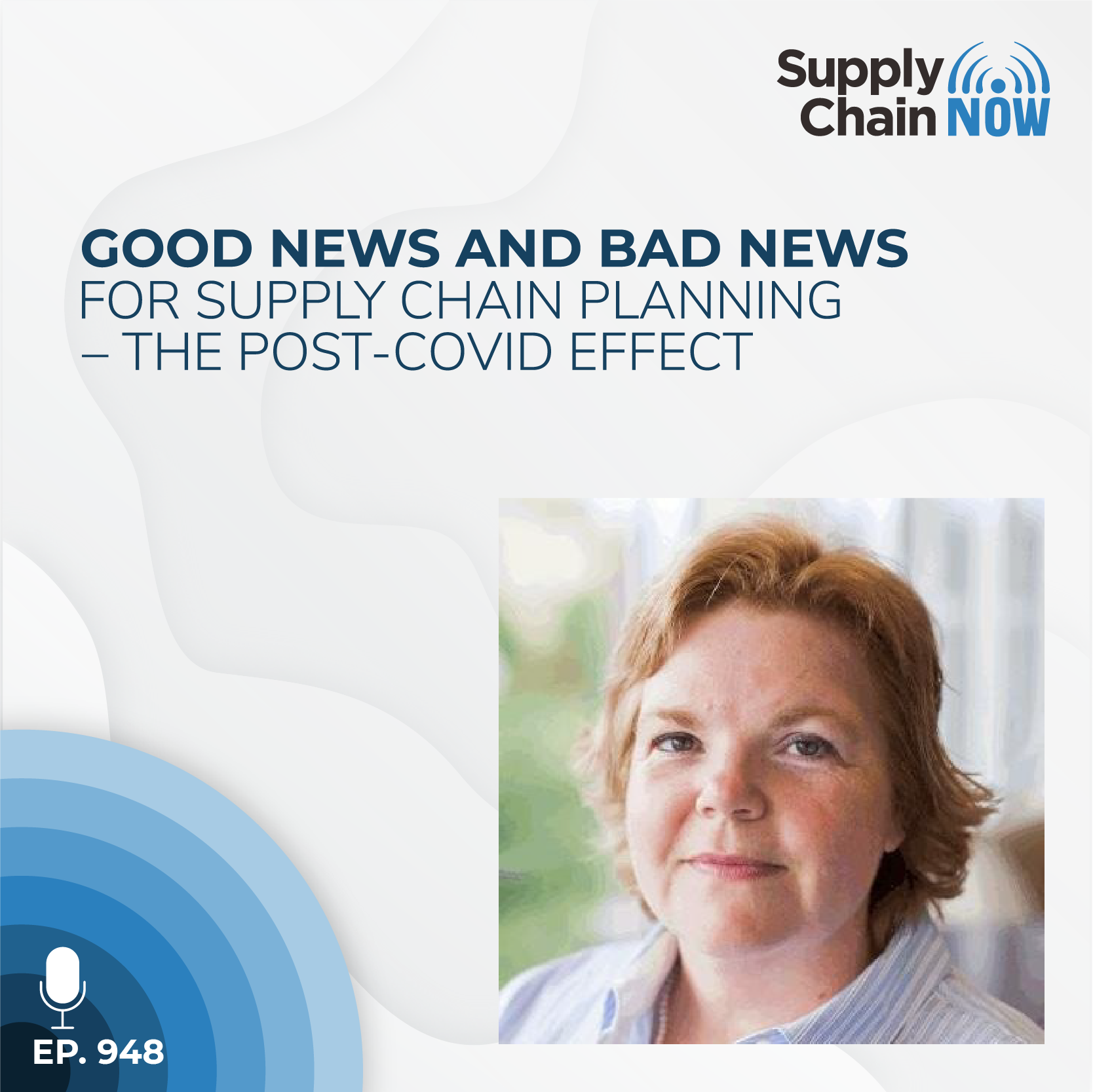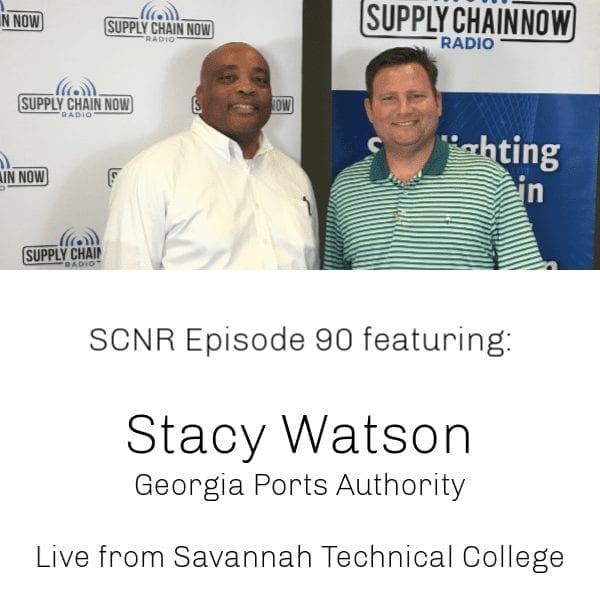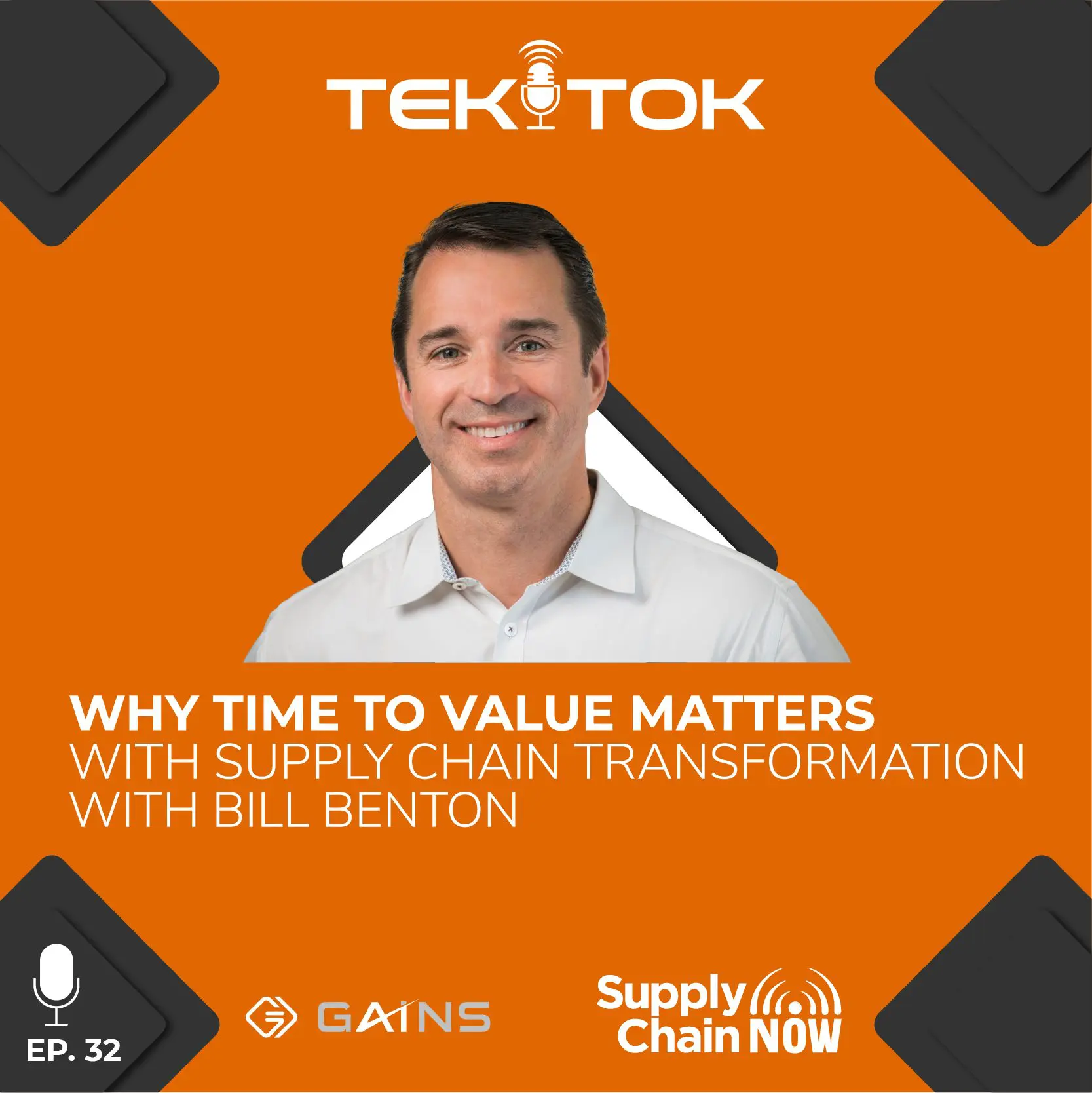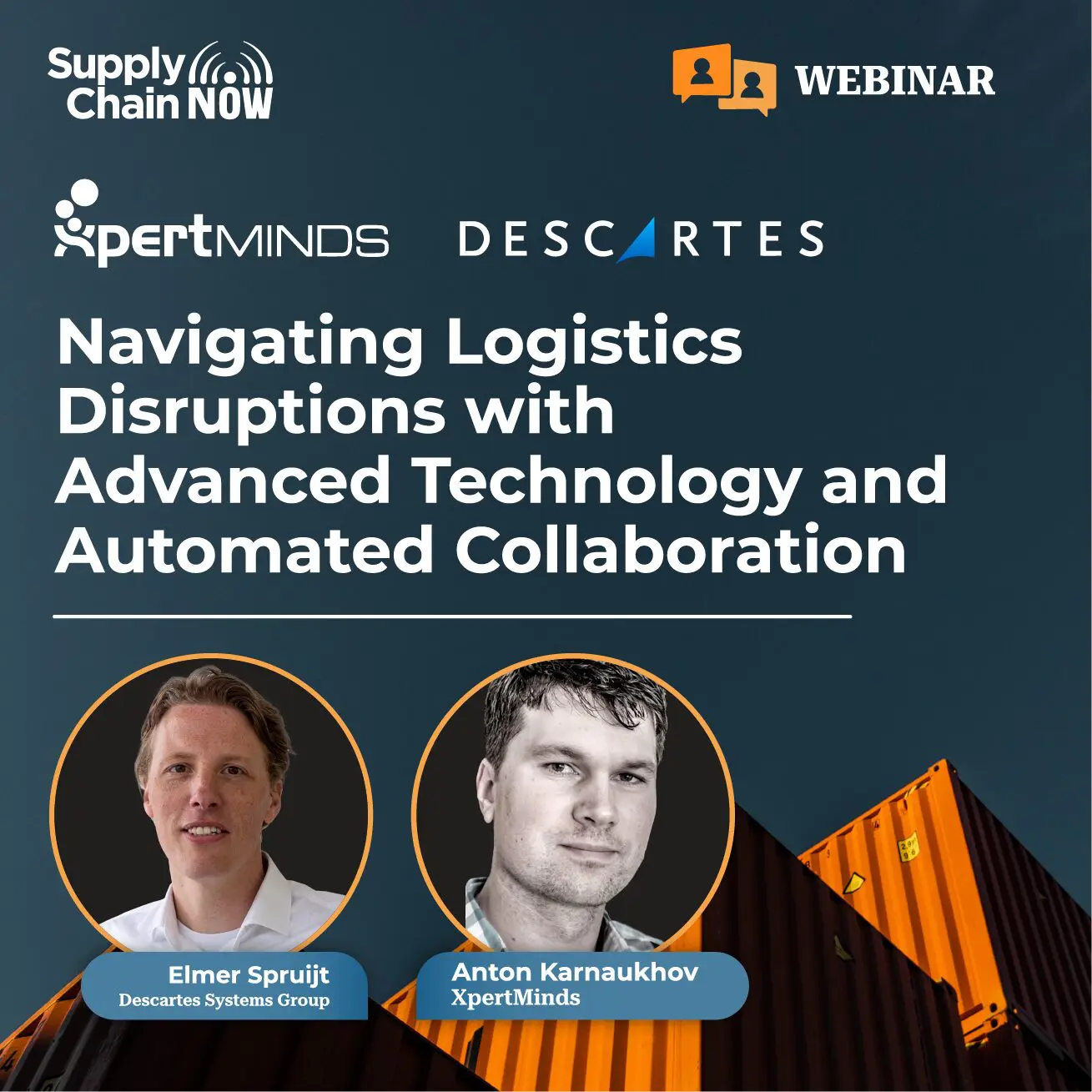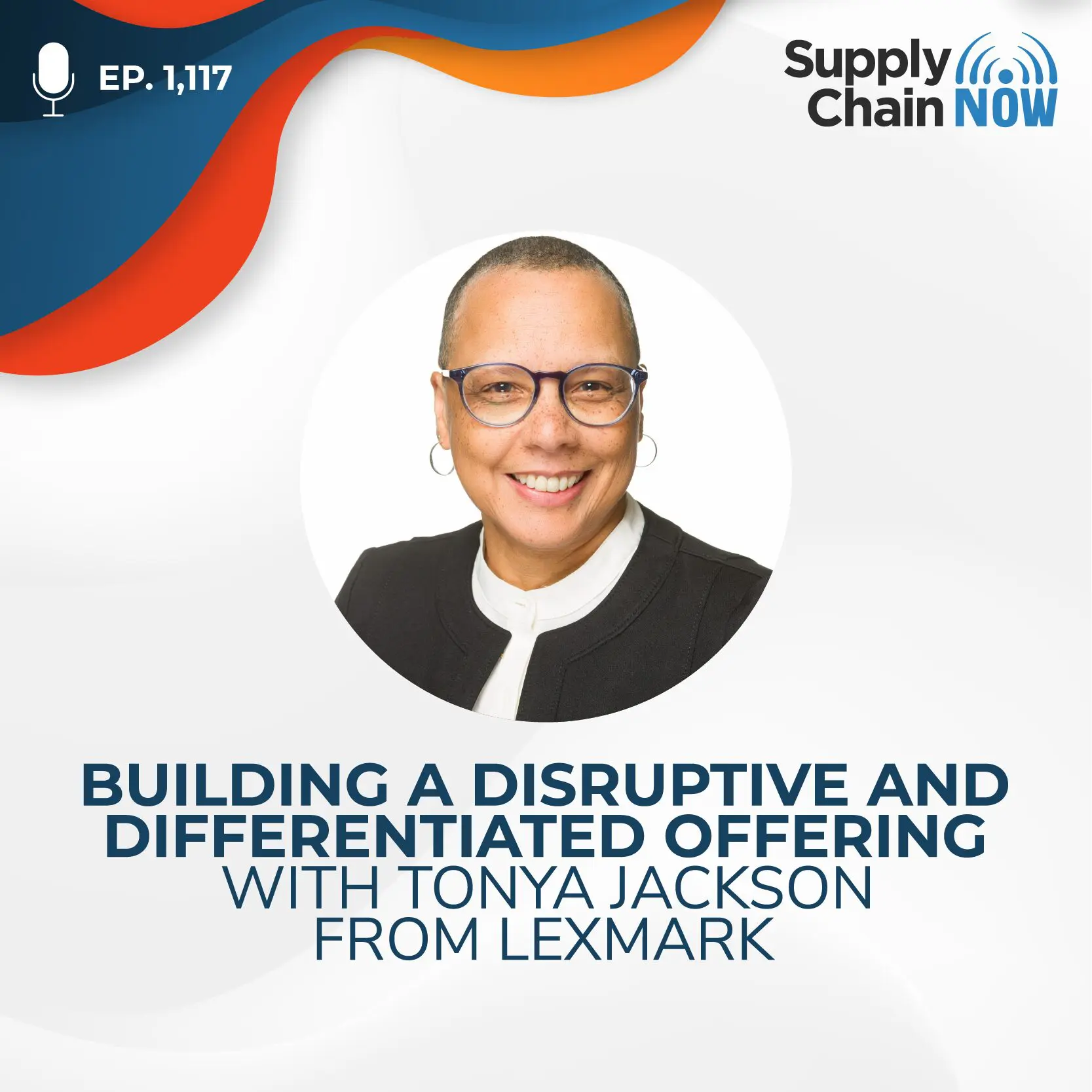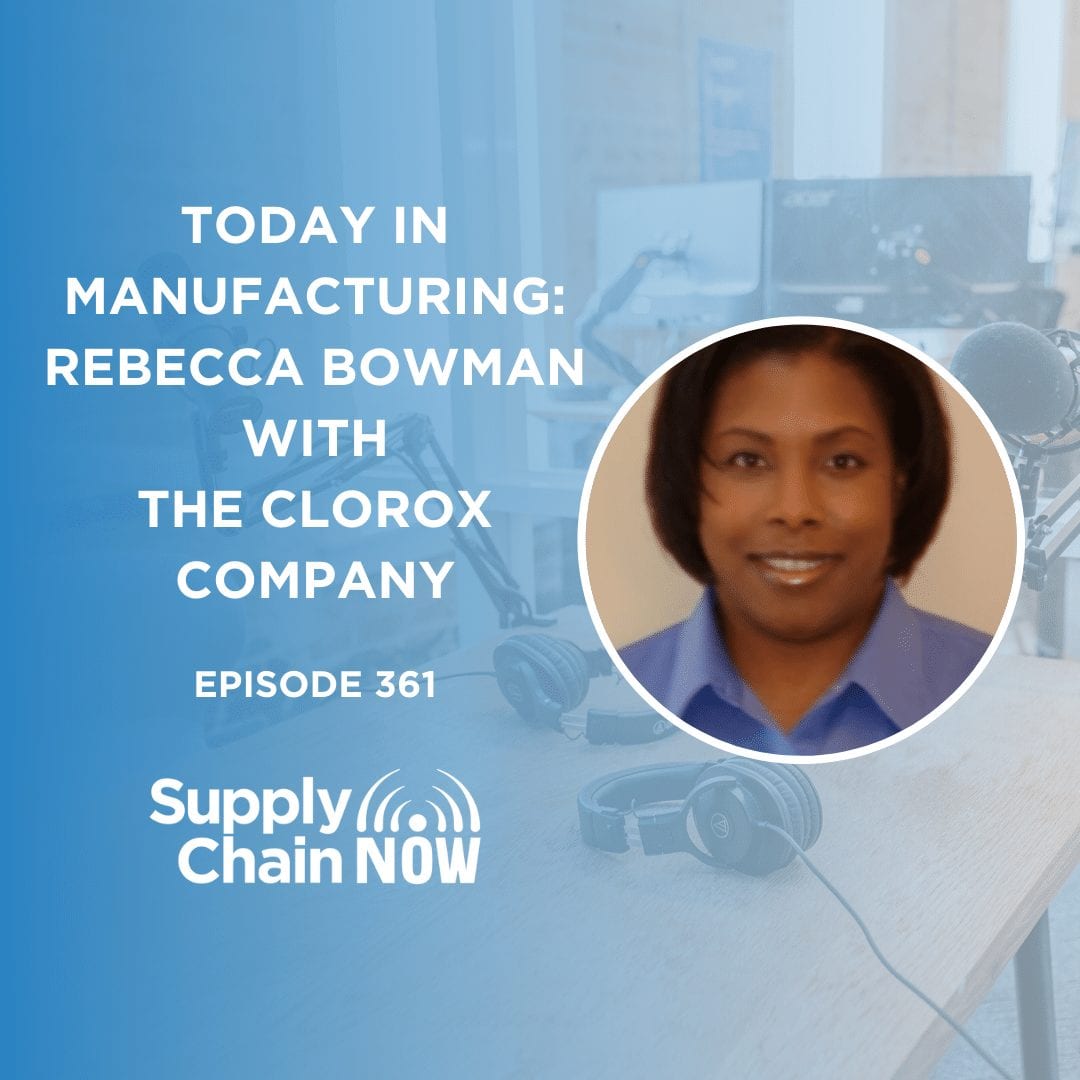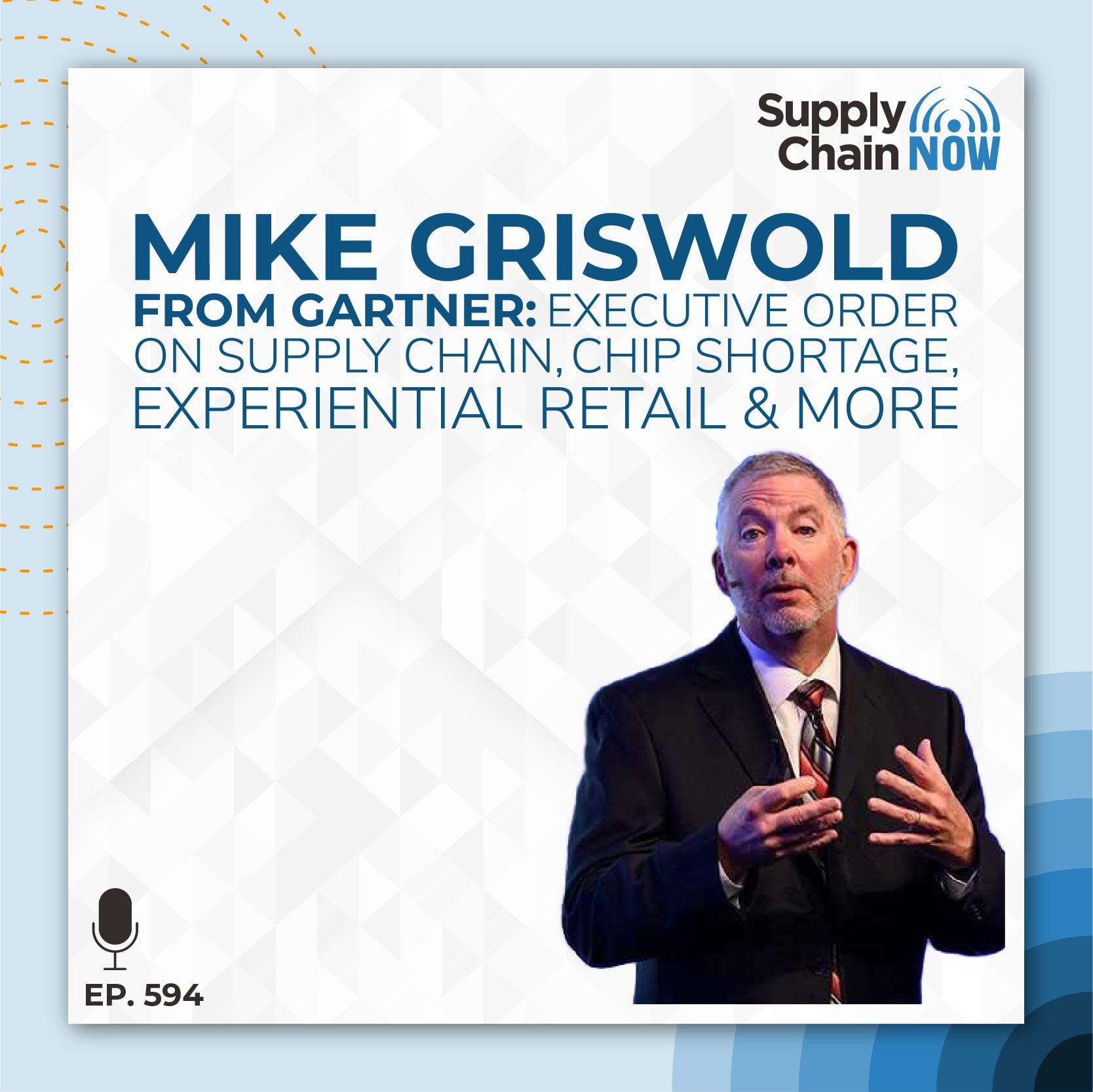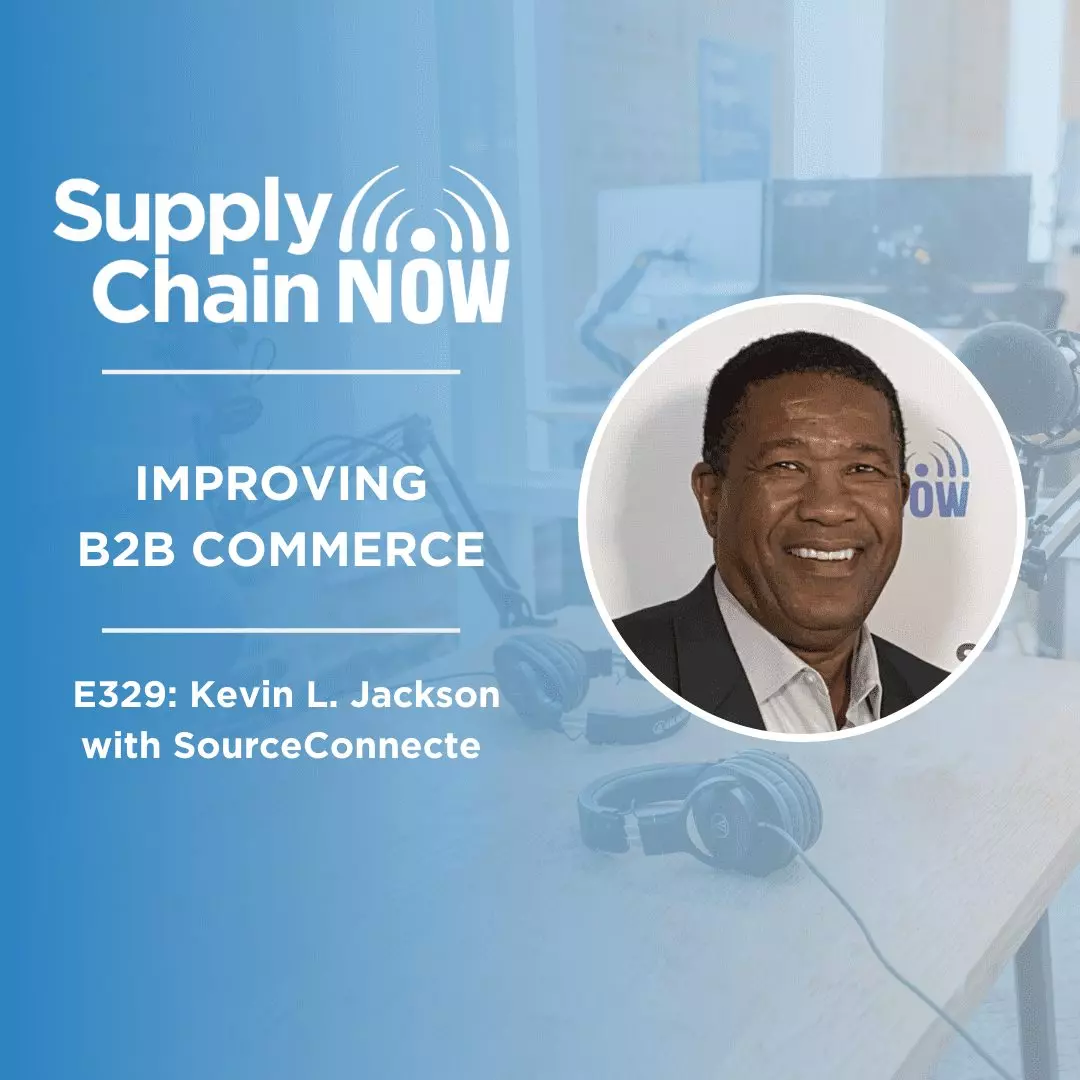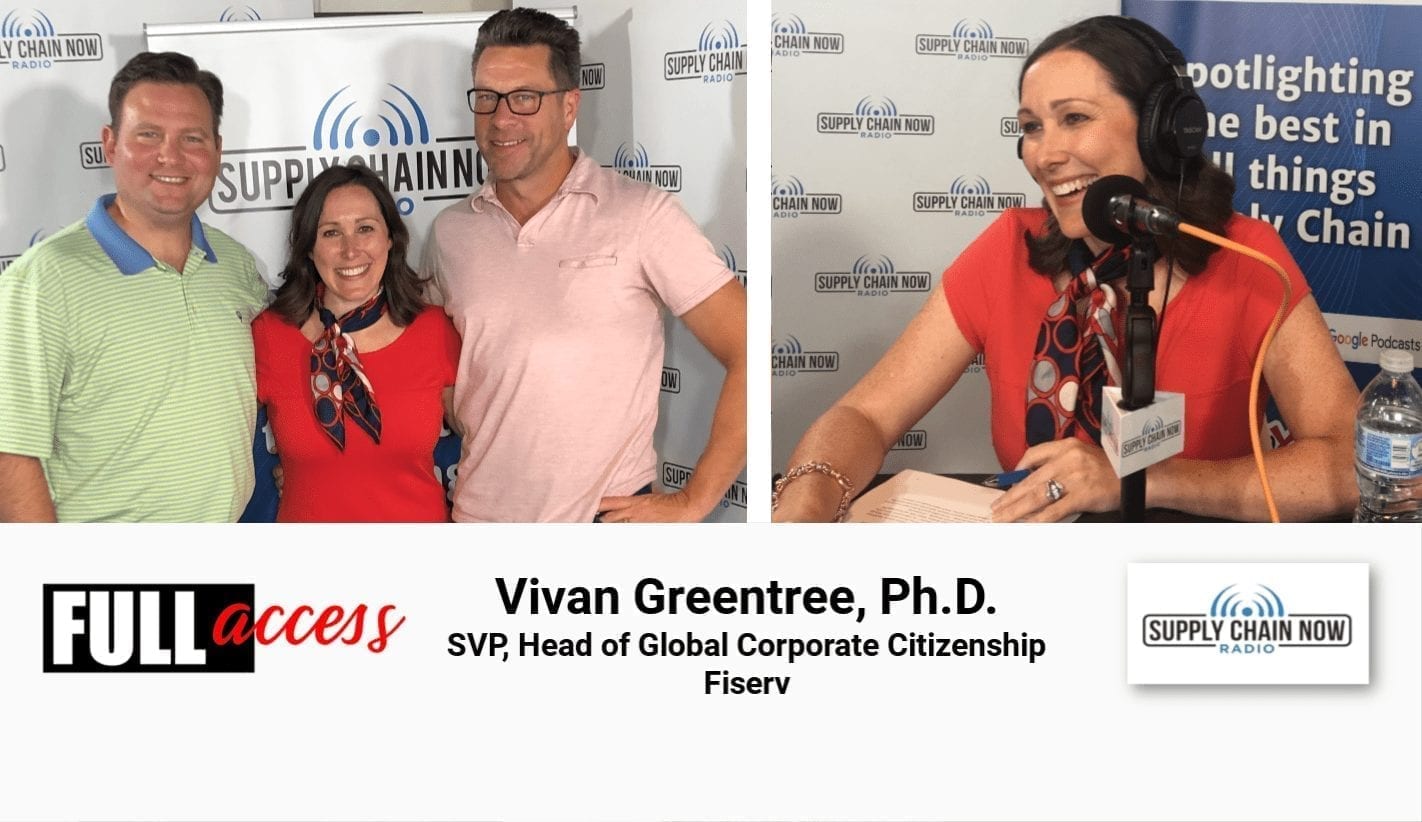
Episode Summary
In this episode of our Full Access Podcast series, Scott and Greg interview Vivian Greentree, Ph.D. They discuss her military service and career serving the veteran community.
Episode Transcript
[00:00:05] It’s time for a Supply Chain Now Radio broadcasting live from the supply chain capital of the country. Atlanta, Georgia. Supply Chain Now Radio spotlights the best in all things supply chain. The people, the companies, the technologies, the best practices and the critical issues of the day. Now here are your hosts.
[00:00:36] Good morning. Scott Luton here with you live on Supply Chain Now Radio, welcome to the show. We are coming to you today from Vector Global Logistics, a company that is providing world class logistics services all while deeply investing into the communities that they serve, based right here in Atlanta. But with international reach, this company is on the move. You can learn more at Vector GSL dot com. So today we’re continuing our Full Access series here on Supply Chain Now Radio, where we’re spotlighting exceptional female leaders across industry. You can learn more at our ever evolving landing page, full access online dot com. On today’s episode, we’re gonna be featuring a global leader in the world of fintech and an organization is helping to power the e-commerce era for sure. On a quick programming note. Like all of our series on Supply Chain Now Radio, you can find our replays on a variety of channels Apple, podcasts, SoundCloud, Spotify and wherever else you find your podcast. As always, we’d love to have you subscribe, so don’t miss anything today. Supply Chain Now Radio is also brought to you by a variety of sponsors, including the effect of syndicate VeriSign, epics picks Atlanta and pro purchaser dot com and several other leading organizations. Be sure to check out the show notes to learn more about our valuable sponsors. So let’s welcome in my co-host today, Greg White, serial supply chain technology entrepreneur and co host here at Supply Chain Now Radio. Greg, how you doing?
[00:02:04] Why do you laugh when you say that? I’m doing great. It’s good to see you. It’s always, always a pleasure to have you on.
[00:02:11] And we’ve got a really neat conversation teed up today.
[00:02:14] I got to tell you, I’m a little bit distracted. Yes. We have a great conversation teed up. Yes. Dr. Vivian has already established her presence with authority. But I’ve got to tell you, I’m slightly distracted by our new mixing board over there. The whole thing is truly impressive. You had a mixture. Two thousand. Yeah.
[00:02:31] Wow. We’ll see. But we had it. We took a three week course to be certified and how to just turn it on. So we’ll see how it works. Rest that day. We are now officially engineers. I’ll let you claim that title. They won’t let me on that. No, me neither.
[00:02:46] So let’s do welcome in our featured guest today, Vivian Greentree, P HD senior vice president, head of Global Corporate Citizenship Citizenship with Foster. How are you doing, Vivian? Good. Good. Good. We are so glad to have you. I know that you’ve been traveling a lot. You’ve got several full plates we’d connected a few months ago to have you on. And it is great to have you on here on Monday morning unless. Right, right.
[00:03:11] Living the dream. Living the dream. Welcome to.
[00:03:16] Well, we look forward to interviewing you here just momentarily after Greg White shares some of the top things know in supply chain.
[00:03:25] Holy mackerel. Yes. Just a few and I think appropriate for our full access series. I don’t know if anyone if everyone out there knows this, but Coles has a new CEO, Michelle Gas, and she’s going to be honored as a visionary by NRF, the National Retail Federation at 2020 Vision, which I can only guess must be the new name for NRF, big show that happens everywhere every year as a big sigh of relief after the holiday season around. I think it’s January 12th. Yep. In New York City, usually at the Javits Center, it would be my guess. Coles is doing big things right. I mean, bold moves. They’re taking returns for Amazon. They were in the top 10. I believe they are moving up in terms of e-commerce retailers. So they are making big moves. Mm hmm. Right. I think of Coles as that place where you’re tapping on the glass going open, open, open. I don’t know if anybody remembers that advert, but I love that. That’s one of the greatest commercials of all time. And now you don’t even have to wait for them to open. They are open 24/7. And thanks to Michelle, they’re really on the move and she’s doing a great job there. And well-deserved accolades there. So that’s no small task. Thirty eight thousand people or so will be at the NRF big show this year, 38. So an appropriate audience. So I was gonna have three news items. But Clay, our esteemed engineer, marketing coordinator. Yes. And producer guys keep tucked in the day.
[00:05:05] I’m telling you this. Yes. So and he drove from Athens because he’s getting ready to go back to school. Go ducks. So. So he had an extra long commute today, but he was able to deliver some news. So get this. Somebody actually beat Amazon to the punch U.P.S. forms that formed a new subsidiary to apply for drone delivery with the FAA about three weeks ago is when that news came out. I think we may have talked about that once or twice before. But Amazon just did it themselves as well. So this whole drone delivery thing is getting serious and it’s going to start happening. And, you know, I think it’s it’s an important step in kind of last mile delivery. I don’t know kind of where everyone lives. And and Vivian, you just moved. So, you know, I don’t know exactly the logistics of getting around, but you’ve already read experienced in Atlanta. So you know how difficult last mile, first mile, every mile, an hour, every half mile. But I live in the sticks. I live in West Cobb County, which most people think is actually Alabama. And and I’m not joking. You can see it from there. But drone delivery is an important part of it because there are two thousand ways to get to my house and none of them are fast. So I think this really opens up this really opens up delivery for a lot of people in remoter areas.
[00:06:35] Well, you know, we had a big week last week in Walton County, the Pony Express open up lanes coming out our way. So we’re not sure when drones maybe around the corner, but we’re only express it’s coming your way. So say you company idea, by the way. We’re going to talk about that.
[00:06:52] Yeah, we’re gonna talk about that here in a little bit. But droning express. That’s right.
[00:06:56] That’s going to be drone express. Dot com. Someone is saving that. Yeah, I get that. You are all right now. So U.P.S., so back to the story.
[00:07:04] So it’s neat to hear when companies, the Amazon beats everybody to the punch. Seems like they end the day out. But so this is kind of neat where they were. They were they were beaten.
[00:07:14] Well, look, I mean, U.P.S., they’re no slouches. That’s been doing this for a while. That’s right.
[00:07:19] And and I think I think companies have gotten more disruptive of themselves, more innovative, more aggressive, whatever you want to call it, because of that. Yeah, right. Look, I think a lot of people think that Amazon invented. E-commerce such that it is today. I think what they really responded. What they really did was they were they have responded to the demands that the consumers would have liked to have placed on e-commerce providers in the past. But technology just didn’t allow it and there didn’t seem to be the will to transform. And now Amazon has the will and everyone sees the goodness of that. So I think a lot of companies are coming along. A lot of companies are leading. I mean, Kohl’s is a great example. Right. They had I mean, who would have even guessed that they were in the top 10 as far as e-commerce companies? But there they are. So. Yeah.
[00:08:16] All right. Before we we circle back in and bring Vivian back in.
[00:08:22] And we’re here at Vector Global Logistics. Deals are happening. Businesses, we haven’t closed. Yeah, we’re throwing some Fred traders around here. Well, they’re fixing. They’re fixing the roof. Yes.
[00:08:33] Shikha, which is Enrique’s dog that is here, and his kids who haven’t started school yet. So it’s a family environment.
[00:08:39] A lot of stuff going on. Well, yeah, but you can feel the momentum in the air. Yes. Yeah. All right. So before we talk with Vivian, anything else on your radar, your illustrious supply chain radar?
[00:08:53] No, that’s. Those are the biggest points. But thanks for asking.
[00:08:56] I wasn’t prepared. Thank you. Hey. Has something to do.
[00:09:01] She it does have something to say. She was going to weigh in on some top things. Not so much. That’s good. Good to have the canine perspective. So.
[00:09:09] So let’s let’s welcome Vivian Greentree back into the conversation. Excited to have her here. So, again, Vivian serves as senior vice president, head of global corporate citizenship with a major player, best in the business sense in general, but also especially from a technology standpoint, as far serve. So, Vivian, let’s get you a little better. So for starters, right, to start with the easiest question. So now where did you grow up?
[00:09:35] Tucker? Tucker, Georgia. OK, here in the metro Atlanta area. We were OTP.
[00:09:41] You’re outside. It’s been a dream of mine.
[00:09:44] We’re inside. We’re introducing the whole world to that term.
[00:09:47] All right. Well, if you were from Tucker, you OTP, all you all you all want to be is ITP.
[00:09:53] Is that right? For now. Right. You want to be out if you had to move away and then move back back to appreciate ITP. Right. Right now. How long were you in, Tucker?
[00:10:02] I’m too. So I graduated from Tucker High School. OK, Tucker. We’ve grown a lot since then. We have a mayor now. We’re inc.
[00:10:09] Oh, hey, get get went high school with my mom and Tucker graduating class. He went to Georgia. Go dogs. Yeah. No dogs.
[00:10:20] And then join the Navy. Now I’m gonna go with Navy. Went back to school in Athens for the Supply Corps school. And then had a lot of, you know, Navy adventures, got married and had two kids. Started a nonprofit and then went corporate. Five deployments with my husband.
[00:10:39] And your husband, who’s still serving.
[00:10:40] He’s still active, retiring next year. Mm hmm. Maybe that’s why we’ve stayed married so long.
[00:10:47] I’m on a ship. Distance makes the heart grow fonder.
[00:10:50] Um, so this and we’re gonna we’re going to unpack a lot of the shared there. I mean, because you’ve had some really interesting experiences that I think a lot of folks are looking forward to kind of gain your insights on. So let’s. I’m always curious, especially the early role models. Right. When I think about some of the decisions I’ve made my career and we can probably all relate. You think of some advice, some guidance, some folks at that time that modeled some of the behaviors that that really appealed to you that you later in life kind of strove for. You know, for you. What were some of the early role models in your in your life?
[00:11:29] Vivian So I would have to say, you know, my my mother for sure. She was one of the first woman leaders and and parole officers and corrections within pardons and paroles for the state.
[00:11:43] And so consequently, I knew how to Mirandize someone, by far as I’m realizing. All right. So although we might not have to be Mirandize, but that although we were never afforded that immunity and our own in our own home.
[00:12:00] But I do I think empowered women empower women. And so I was lucky enough to have that kind of role model early in life where my mom and people that she were other women that she worked with. Mm hmm. I definitely remember one of my second grade teachers. Her sister was on the Supreme Court, Leah Sears and I, you know, so even from second grade, I I saw a woman judge and thought, wow, you know, wow, I’ve never seen that. And so I think to have those role models early. A lot, you know, if you can. You can be it. And that’s where so much of I think my emphasis and support of diversity and inclusion since then has come from knowing that if you can’t see it, then you really can’t be it.
[00:12:48] Yeah, we hear that. We’ve been kind of on this journey, at least speaking for myself. We stood up a gender gap task force with a picket line on one of our sponsors for four years ago. Maybe Elba Perry Gallagher, who is a proud U.P.S.. Right. Challenge us on that and served us as task force chair and really let us down through a series of learnings. And, um, yeah. So since then, we’ve we’ve heard a lot as we’ve had a lot these conversations and interviews and then played a part in different panel events that featured especially female perspective. What you just shared there. You see it so you can be it is just it is a common piece of feedback we get from from, uh, female leaders. Right. So let’s talk about you mentioned education, and I know everyone doesn’t get a chance to experience with one of the true Georgia jams, which is a city of Athens. It is such a neat city to be in. And so you started your formal education right there at the University of Georgia, right?
[00:13:53] I did. And you know, Georgia, besides the beautiful city of Athens, being the birthplace of public higher education for the country that always stayed with me especially. I was, um, I was also one of the first class of scholars that went on the Hope Scholarship. Zell Miller had helped me.
[00:14:12] I’m not that old. I thought it was around long before that. I did. Um, yeah, I know it’s hard because I’m only twenty nine. Yeah. Right. Right. Every decade or so. Right.
[00:14:24] But I think, you know, those of us who are or experienced it at such an early onset really felt a need to give back because I did feel an enormous sense of responsibility that the tax payers were sending me to college and I was there to learn that help to issue some of the other offerings of Athens and make sure that I kept that a average so that I could retain the Hope scholarship. Certainly my my mother said that to me. Yes.
[00:14:53] So what would you major in political science and journalism? OK. Dual major, dual major. Wow. That’s it for us. Talent. Telling. Telling a good story about how to allocate resources.
[00:15:05] I liked that.
[00:15:07] And so after. And just we’re going to kind of mess with the time frame here. Sure. Warping straight ahead from your undergrad to your your first grad graduate degree, which what program?
[00:15:21] So I did split between two semesters, first in political science, which is now the esteemed speaker. OK. All right. Back then, it was just Franklin Arts and Science. Well, again, this is not very long ago. And now it’s like slightly to Moscow. And and then the next semester graduated from Grady College of Journalism with a bachelor’s degree in journalism. OK. Took both of those and joined the Navy to be a supply corps officer.
[00:15:49] Yes. So now, did you draw the line there?
[00:15:53] Well, did you be continued your education even while you’re in? Right.
[00:16:01] I did once. So as I started my time in the Navy, I really enjoyed my I met my husband. He a naval flight officer. Being co co-located was a was a big thing. And we settled in several states, several deployments. So as I started like thinking about transitioning out, I look to use my G.I. Bill to get my masters and then eventually my P HD because I as I was transitioning out and I think we’ll talk a little bit about that later. But the loss of the identity of being the service member to becoming a veteran and also focusing on being a military spouse and trying to find my own career progression within supporting my service member.
[00:16:48] Yes. Wow. A lot of balancing going on there really is very, very challenging for a lot of folks. All right. So looking back, your freshman year, usually a, uh, Polly saw in journalism. If you had if you’d give yourself one piece of advice so that freshman Vivian at that point in time, what would that advice be?
[00:17:09] Right. Study more now.
[00:17:13] They rise to my my children.
[00:17:16] It would be you know, you don’t have to have the answer to have the conversation. And that’s really kind of what life is about. I think back then and certainly even at points now, I know you just you don’t have to know the answer before you ask the question. People, you know, we never come to meetings and tell people things they know. You want to come to meetings and tell people things they don’t know or find. Find out those things together, just that intellectual curiosity. And never be afraid to ask questions because you might think everybody already knows. But I can bet you that they don’t. And then one other thing. I would definitely. Because it’s something I’ve only more recently learned is that, you know, if you if there’s not a chair at the table for you, you just bring your own folding chair. It’s you you know, don’t take it personally that you weren’t invited or that they didn’t know that you existed. If you’re an advocate or you know, you’re providing a good or a service or just want to have an input into the conversation, just bring a folding chair because your voice is needed. And, uh, and welcome. And sometimes you have to be the generator of that. Mm hmm.
[00:18:25] Yeah. No one is, uh, necessarily looking out for you. No one is. Look, right. No one’s at home saying, can I send this invite to for this panel or this initiative or this project? You’ve got to embrace and own. It’s what I’m hearing you say.
[00:18:39] You own your own path. All right. Is it? Yeah. And that’s for women, for veterans, for people with new ideas, new students. I mean, any any situation where you don’t automatically see yourself at the table, at least make the ask. Bring yourself, you know, if the opportunity to contribute. Yeah, absolutely.
[00:18:58] Does get what you deserve. You get what you ask for. All right. Brilliant.
[00:19:03] So. All right. I didn’t come up with that. So, uh, check carries a great.
[00:19:07] That’s a paraphrase of of Chick Harris, who’s a great negotiating, um, teacher. Mm hmm. He always said, you don’t get what you deserve. You get what you negotiate. So negotiate and everything is negotiable. Right. So get in there. Put yourself out there.
[00:19:23] What’s worse can happen. They say no. Right. Right. Yeah.
[00:19:27] So we are going to go now. Yeah, so.
[00:19:33] So I’m fascinated by your Navy history. My grandfather was in, uh, was in the Navy in World War 2. And, um. And that’s, uh, that was near as I got to military service. So I’m always fascinated by veterans like you and Scott, who you kind of given it all for the country and for the rest of us. Right. Um, so tell us a little bit about, you know, your experience in the Navy. I’d love to know where you went. Right. What you did and and what you took away from it.
[00:20:03] Certainly. I, uh. My time in the Navy. Know actually I would include being a military spouse and a parent of my have two military children. Just the entire experience of engaging with the military community. It is an indelible. And it enlarges in margins.
[00:20:22] Yeah, I like that logo with it.
[00:20:25] It enlarges your life in a way that I don’t think you could fathom or even sometimes express. And there is very high eyes. You know what I’m thinking? Homecomings. Mm hmm. And, you know, career progressions. And and then there’s very lows with deployments and, uh, reintegration and some of the very real obstacles and challenges that our community faces. But I do think that that sense, you know, public service in the military or not. I think, you know, I’ve been through the military is he is it’s a unique. Privilege and an honor. Uh, that. You know, I. I wish I would be very proud if if my I have two boys, 13 and 15 and they’ve been through five deployment for, I guess the first one. We didn’t have them yet. Well, um, but for it, four deployments, uh, with my husband over the past, um, 19 years. And so he’s been OK. You know, he’s been away. He’s missed things. But I would still recommend service because they know that there is a purpose greater than themselves. Greater than our family. Mm hmm.
[00:21:33] And I you just get that in a way that you you know, um, it makes you think deeper thoughts about what it means to be a patriot and, uh, what it means to know your neighbor and help your neighbor and maybe have, you know, have some sacrifice involved with being a citizen.
[00:21:50] Yeah. Yeah. I think I think generally people can use that that that feeling that there is something greater than yourself. Um, I was brought up with it. And like I said, I was not in the military, but I was brought up with it with, um, sort of a service mentality or servant mentality. Definitely a servant mentality.
[00:22:11] Very good. They did their job. They did. That’s why we have kids.
[00:22:16] Um, so but but I think that that’s that’s a really great perspective. Right. And, um. So, um, um. Um, you know, I’m very respectful of anyone who serves. So I gotta ask you this. Why? Why? Why? What inspired you to go into military service and and why? Navy.
[00:22:36] Um, so my family has a history with the Navy. My grandfather went to the Naval Academy, um, and then on my mother’s side, very public service within the Atlanta Police Department, Pardons and Paroles.
[00:22:51] And then, you know, going to the University of Georgia and learning about, you know, you really can’t underestimate or overestimate the amount that you hear that we are the birthplace of public higher education or the first land grant university. And what comes with that and the responsibility towards expanding access. And so I thought, you know, that’s I can do that through military service. I picked the Navy because my grandfather was a big Navy right fan.
[00:23:20] Um, looking back, I probably would have joined the Air Force a little more if I, uh.
[00:23:25] Or maybe the merchant Marines. That’s another, uh, under under known, um, service branch. But I definitely you know, from what I think most of it was just kind of. In order of learning what the possibilities could be and how to serve and a variety of capacity and capacities.
[00:23:45] Well, that’s great. That’s great. So. Talk a little bit about your transition. I mean, is sure. You know, and and tell us a little bit about, uh, you know, the organization that you found.
[00:23:59] Well, I do think that my transition off of active duty because my husband was was still on active duty. And Scott, I can see you nodding because I think it was easier or better than it could have been otherwise. Which is not the case for many military families. And so I always like to highlight and highlight that when I tell my transition story. So because he was still on active duty, we had health care. He had his paycheck. We had steady income. And so it did allow for we weren’t financially worried, which is certainly something that comes up as an inflection point during during transition. For some veterans, during that time, we when I was transitioning out, we moved for a set of my husband’s orders a few a few times. We had our second child. And I really I lost that. I immediately lost that sense of identity, of serving my country, making decisions. Being part of a team that needed me, you know, the people that needed me were tiny and unable to express.
[00:25:03] I would be crying other than crying.
[00:25:06] And so I really I continue to use my G.I. Bill. And I thought once we settled back in Norfolk and Old Dominion University had a wonderful part time program for public administration, and they at the time were the sixth in the nation for use of G.I. Bill just because of being in Norfolk. The Navy’s largest naval base are the world’s largest naval base. And so they had an inordinate amount of military students, student veterans, military spouses. And I think that that, you know, innately it’s in their fabric to serve military students who might otherwise not see themselves in a HD program or in the business school. And so they were very welcoming. And I started doing research on public service motivation and what makes what some antecedents what makes people want to serve as a parent. Clay, what makes, you know, parental socialization are all these types of factors. And I got in touch with several other military families and military spouses who were also noticing and at the same time noticing that there were some very real challenges that military families were facing. We were, you know, four, four years into the post 9/11 engagements. It was you know, we were reacting. The military was reacting in a way that had never been sustained before. More people doing different jobs, forward deployed and currently repeat, you know, repeatedly.
[00:26:34] And so while they are always right and the wear and tear on military families begin began to show our systems, our policies, our procedures, our support networks were not set up to to support them. And my husband consequently got very tired of me telling his C.O. what was wrong with you.
[00:26:54] Please find another outlet. So the CO2.
[00:26:58] So there is probably about five of us across the country who were doing that same thing, having little, little impact, except for maybe adversely on our spouses careers.
[00:27:08] And we started Blue Star families really looking to at the very core support connect and empower military families regardless of branch or rank or geographic components or active duty Reserve Guard veteran, because a lot of the times, you know, the things that connect us were way bigger than the branches or geographic areas that separated our line. And that’s really all. All that was about was connecting military families to support them so that they felt empowered to be their own advocates to create a sustainable national defense. Mm hmm. Well, my short story long.
[00:27:47] But that’s I know that’s heavy. I mean, that’s you. It seems like I can’t help but notice as you’ve gone through your history, that you’ve gone from one kind of challenging aspect of your life to the other. Mm hmm. Right. And sometimes you layer them on top of one another. That’s really impressive to be able to do. Yeah, right. Right. Well, I’m not sweating that much right now. Let me try this. Right.
[00:28:10] So if I can pull back to your transition, the sheet you laid out some factors that made your transition easier than many other veterans. Well, let’s talk about just kind of a generic veteran and let’s talk about kind of where you see, again, generically, generally speaking, where you see veterans excel in that transition. And then on the flipside, where you see a lot of veterans that don’t do so well in that transition, what would any observations from peers, from colleagues, from some of the service work you’ve done for so on that, you know, they they it’s like, you know.
[00:28:50] Layered like an onion.
[00:28:51] Yes, like a Vidalia. Yeah, like Vidalia onion. Georgia. Now you can get fresh off the so-called welcome home. Welcome home.
[00:29:00] But the you know, the value that veterans and military spouses bring in military children, honestly, because on the veteran, if we focus first on technology, technology and technologically inclined fist for the majority physically fit as we’ve been taking PR PR to physical training, you know, they’re equally comfortable with, you know, making rapid decisions in ambiguous circumstances with limited information which they learned, you know, kind of. Through the actual experience, you know it with life or death situations many times through the military. And that will continue on the civilian side and maybe not at nearly the amount of kind of pressure points where you’re also separated from your family learning and, you know, deploying repeatedly, starting over. So the value to the to the private sector with just bringing that kind of esprit de corps. And I think you Greg, you mentioned the mission oriented ness that I don’t think that that’s necessarily different than that can be found in other populations, but it’s definitely found earlier. And it’s something that they veterans attached to their employer in a way that you increasingly see companies that want, you know, the pure differentiators that it is the human capital. Right. And how you engage and provide opportunities for meaningful engagement and an access and opportunity. So.
[00:30:36] So there is no shortage of reasons why there’s value in adding a veteran to your to your organization. And don’t get too too far ahead of ourselves. But but first data, which is now fast serve as it has a long tradition of hiring and supporting members for a veteran community. In fact, they were just a couple years ago. Number one, we had three years in a row.
[00:31:00] Three years in a row. I don’t know where to go, but holy cow. So three is a refresher. Okay.
[00:31:06] I guess ranked number one employer for veterans and military spouses about military times. I think it’s a magazine, right? Air Force Time. I think it’s a family magazine. Three years in a row. It is outstanding. So if I could circle back one more time on the on the transition itself. So for you, it was it was it was different. It was because you’re you’re talking about how income was steady. You had access to health care. There was a sense of stability that for many veterans is not they’re not. All right. And the other component that that we constantly hear about veterans transitioning, especially veterans that aren’t married or maybe their spouses aren’t working or they don’t have that same sense of stability is that we wait and I’m guilty of this. But I’ll be the the knucklehead here. We wait until we’re out to start looking. Right. Certainly. And that is one of the biggest challenges, I believe that veterans have of transitioning, because, you know, as you’re serving, you don’t know what you don’t know about the private sector. Right. And you don’t necessarily have the time to go out and network or you do. Let’s say you don’t have the time to go out and network or get involved in associations or be able to find those resources in that network that makes that transition, or at least finding the job component of the transition easier. Is that is that kind of what you’ve seen as well?
[00:32:30] Well well, first of all, I hope my husband’s listening because you can make sure that he is on record.
[00:32:39] But you’re you know, I those were such excellent points. And I would only add on that in the military that I part and that the networking in general is is not always seen, you know, as something that that they do. And it’s almost like a dirty word, like I don’t need to network. Right. I you know, I talked to my detail. I’m good at what I do. I should get the the billet. So that’s not how private sector works or even the public would know what a building is.
[00:33:07] Right.
[00:33:07] And we know 85 percent of jobs are received through network. And so that’s what that that’s the thing, not just transitioning to employment, but to starting their own businesses is that network and peer support. So I would I definitely agree with that. And it’s something that the corporations, you know, we can take an active role. And because we know that the majority of service members are only serving six to eight years, the majority aren’t retiring. So that’s that’s a very small, you know, kind of lead time, if you think about it, is putting a little onus on us to come up with a creative, coordinated, comprehensive, which is never hard, never hard at all. And it’s hard for companies, I think, who are looking to, you know, the R Y and they say if I if I privatize the cost of this opportunity and then I’ll socialize the gains. Right. Other companies might gain from the investment that we put, luckily at first data. Now, if I serve our leadership has never had that orientation and really has always kind of seen the long the long term gains and also the opportunity that we would have as a peer differentiator to become the employer of choice for veterans and military spouses.
[00:34:22] Love that. Yeah. So to our audience, Scott Luton and Greg White here on Supply Chain Now Radio is a broadcasting law from Vector Global Logistics. We’re sitting here with Vivian Greentree, HD senior vice president, head of Global Corp. Citizenship.
[00:34:36] She hates to say that. Well, you know what? If I earned a HD. Oh, no. That’s what I’m impressed. After my mom, my dad, my mom will appreciate it. You go. We gotta make mom. Let’s do this from mom. Doctor. That’s right.
[00:34:51] Well, all kidding aside, that is impressive, especially in light of serving your country and raising children support and your husband’s service and all those four deployments in one family. Um, it’s tough to think about. And a lot of folks don’t put your, uh. I think a lot of American families don’t understand what that puts families through and and the willingness that families do that, which often blows my mind.
[00:35:17] So. All right. So let’s. You meant obviously fast serve. Let’s talk about what Foster does. Let’s talk about your current role.
[00:35:25] Certainly. So our our new fight, you know, first date and now Pfizer, the new Pfizer really expands upon both companies global reach our capacity. It sets us up. You know, we’ve created one of the world’s leading payment and financial technology providers with a unique value proposition towards delivering value to financial institutions, our corporate our merchant clients and consumers. So it’s it’s a really exciting place to be because we’ve come for me, particularly leveraging that space and place towards increasing opportunity, increasing diversity and inclusion programming and reaching more through leveraging the synergies and the partnerships that we already have. You know, we helped start and smarts helped start and grow small businesses. We serve everyone from Main Street to Wall Street. So we’re all over the playing field and we can use that to expand opportunity for veterans and military spouses in a way that no one else can. So it’s it’s just a really thrilling place to be.
[00:36:34] Absolutely. And, you know, everyone I think we we’re placing our orders wherever in the commerce world, Kohl’s to Amazon to you name it. You know, we almost take the build up. Yeah. There you go. You almost take the ability to make that transaction for granted. Not not really thinking about the massive infrastructure behind the e-commerce era. And so fintech is one of the terms that that’s been really has risen in recent years to kind of represent. It’s not only just that Trenton, you know, just the silo transactions, kind of everything. It goes on to make that happen. Right. The whole infrastructure that that fintech world. And you’ll hear from a supply chain standpoint, Greg, freight tech in recent years has given rise to what helps, you know, that same or that related infrastructure that helps keep the supply chain moving transactions and otherwise.
[00:37:28] Right. No doubt. No doubt. I mean, not that long ago. Just the term freak tech seem like an oxymoron, but I mean, it’s an integral part of what’s happening with supply chain every day. Yeah.
[00:37:41] And so let’s talk about Georgia for a second before before we kind of dab more on what you do for fast serve. Vivian, let’s talk about Georgia’s role, especially in fintech. So according to the Georgia Department of Economic Development, this blows my mind 70 percent of all U.S. transactions are handled by payment processing firms located in Georgia and in the states. Transaction Alley, which is kind of is a swath of the metro Atlanta area, kind of starting up in the 85 corridor up in the north west northeast portion of the metro Atlanta area, kind of moving down through the city and to the south west portion headed towards Columbus.
[00:38:24] I need a visual, right. It’s Monday morning. We didn’t know the part of golf. Let’s go to the monitor. So but that is a sensor transaction.
[00:38:34] Rla moving from north east down the south west, 50 plus fintech companies was generate combined and annual revenue of over 72 billion dollars. So a huge presence, huge infrastructure in Georgia. Given that fintech infrastructure and you think about the logistics infrastructure that’s here, sheer byways, highways, the ports, the world’s busiest airport, the interstate system, the talent we are poi is this Georgia and certainly Atlanta. But Georgia is poised to become a huge player in freight tech as well. So it’s really interesting time to kind of see these things evolve.
[00:39:13] I love it. You should work for the chamber because I already moved the show and I want to move here now. But you’re so right because that 72 billion in revenue is dwarfed by the procurement spend. And when you talk about supply chain, the companies that are in Atlanta and Georgia and the money that they spend, that they could increase their supplier diversity and and bring in and provide opportunities to those small veteran owned businesses, women owned businesses, minority owned businesses. It’s you know, when we talk about veteran entrepreneurs and when they transition out and getting government contractors, there’s that default to being a government contractor. The private sector and our ability through procurement spend dwarfs the federal government and and federal governments. A heavy lifting to even get in the door. Right. Right. And then you have these companies like Wal-Mart like first say that, you know, we have commitment to supplier diversity. We have a commitment to pay a net 30 for small, diverse business vendors under 30, under five million in contracts.
[00:40:20] And we track Tier 2 spending, which many companies do, in order to be able to kind of have that overflow and understanding that large global companies will have the majority of their spend with with some several other large global companies. Right. But we partner through our coalition for veteran owned business with companies that are in Georgia, like Wal-Mart, like SunTrust, so that they can increase their supplier diversity and spend we increase ours.
[00:40:48] We help each other identify small, diverse businesses. And it’s a it’s just kind of a virtuous cycle of inclusion and meritocracy and getting the best and the brightest and retaining them. Here in Georgia, which, Scott, you really should.
[00:41:03] I was like, oh, I already live here. I really want to move here. Well, it’s good to have you back.
[00:41:08] And it’s really neat to see what fire service doing just from a sheer business standpoint, making it happen, the growth, you know, having first date and faster have come together. I mean, the tremendous growth. But but what also admire from companies like that that are being so successful from a sheer growth and business standpoint is they are also they’re maintaining their values of serving and giving back. And and folks are taking care of the causes they’re taking care of. And that is what has not been lost in this com in this merger or whatever that whatever that time is between first date and.
[00:41:44] Right. I mean, ultimately, I know I’m I’m sitting here representing a fintech, a financial services technology company. But I you know, we know that we’re driven by technology, but we are powered by people just like any other organization. And that ultimately people and human capital is the best strategic asset that any company has. And those that know that capitalize it, invest in their associates and then their experience and and their engagement ultimately reap the benefits of productivity, satisfaction, retention, client delight. You know, they they please the clients, they retain the clients, they gain new clients. And it it really is a pure differentiator. And I you know, you see that. More to Larry Fink from. Black Rock, the largest private equity firm in the world, has started to issue to his CEOs the challenge of not just financial returns, but impact returns. Longevity. Contributions to the community for sustainability. And so I think that’s becoming more and more involved in the lexicon and not so. Out there to think, you know, if I treat someone well, they’ll they’ll respond better, they’ll engage better, they’ll perform better. And I know I won’t lose them as soon.
[00:43:05] Mm hmm. Well, so I don’t want to gloss over that, right. PE firms. They’re all about the money, right? Right.
[00:43:11] I mean they they have a very specific strategy of maximizing cash flow to create company valuation and make millions or billions off of that. So that that that recognition, not just recognition, but that action is occurring. That’s a huge transformation. I mean, took to recognize that people have value. I mean, seriously, it sounds strange to us here. Right. But for a private equity firm to recognize and promote and enforce, that is that’s a big, big leap. That’s a transformational change.
[00:43:48] And we you know, I would. I would say that when the first data was with KKR, it really it stemmed from the top and just that.
[00:43:58] And I think, you know, the commitment on the veteran side is something that all companies have seemed to be able to get past the competitive and the you know, you’re you’re my competitor towards listen, we’ll all be better if we create an opportunity for this return. You know, we have two hundred and fifty thousand service members that are transitioning out every single year. And they might not want to work at Pfizer. Maybe they want to go home to a smaller town and work for a small company. But we can still help by connecting them, you know, organizations like that. Lana. All right. Hi, Larry. Rose higher. Yes. Hiring are here is where it really comes down to. We’ll all be better off if we’re all better off. And no one wants to hire a veteran, you know, more than a veteran. No one wants to hire a military spouse more than me, because I know that when I was hired on to the private sector side, that was a huge leap of faith that my boss took on me. And I’ll I want to earn that. You want to pay it for every single day? Yeah.
[00:44:55] So let’s just staying right in the hiring frame of mind. So if you were to for any of our hiring managers might be listening across in in supply chain. We all know the war for talent, Eric, that we live in. Right. And and veterans, for the reasons you’ve already put out there and for many of other reasons, veterans are such a perfect fit for supply chain roles. And there’s so much opportunity, right? Yes. Supply chain is how makes is what makes this global business. Well, technology, of course, to but supply chain is what makes this global business era happen. So what would you offer up as a best practice or two around both recruiting veterans? Right. So you got lean in. You got to engage for folks that never served the military. They’ve got a get out of their comfort zone a little bit to make that recruiting happen. But then as you recruit and you hire, any thoughts around successful onboarding veterans?
[00:45:52] Oh, sure. So many. I would say first, you know, it’s thinking holistically and thinking culturally, because you’re right. I mean, it’s not just hiring. It’s not it’s not even just retention. It’s internal mobility. It’s engagement. It’s its development. It’s career progression and so much of that. When it’s focused on just the hiring part, there’s an unfortunate kind of second order effect where you get them there and then they’re dissatisfied or not on board correctly, don’t have the opportunities for meaningful engagement, which, by the way, is really true across the spectrum. And it’s something that we learned when we started our our programming. First data salutes, now Pfizer salutes is that things that we thought were helpful to veterans were helpful to everyone. So it really look how we look at human capital. If we make a guard or reservists choose between serving their country. Right with a with within less than helpful military leave policy right there, they’re eventually going to find some. They’ll stay until they can’t find somewhere else to go. So we’re gonna lose that talent if we make you know, women choose between starting their families are working at first of five, serve eventually first date first. Pfizer eventually will lose that talent as well. And it’s anytime where you set up a system where you have to where people have to choose between who they are as a person or bringing their whole selves to work and working. You know that we lose that discretionary kind of energy and excitement which affects productivity and satisfaction and retention and all those kind of second and third order positive things. But a lot of that we learned with how we engaged veterans with our Military Leadership Council, we now have eight leadership councils of employee resource groups and really just looking at the entire person and realize that veterans do better when they have opportunities for meaningful engagement and an opportunity for career path in. I would say everyone turns out.
[00:47:59] Turns out that’s just good.
[00:48:01] Uh, human resources. Right. And it does become the differentiating factor, I think, between peers and competitors towards if you can do the same thing anywhere. What makes you want to do it here? And we have to earn that. Mm hmm.
[00:48:14] That’s that’s a great perspective. So I think there’s a lot more similarity than difference. I think that, you know, the thing we we talked with about this a bit with the folks from Vets Atlanta and Hire Heroes USA and the DOJ. Well, right. Um, on another show, I think a lot of it is perspective and language. Right. But the businesses are I mean, the businesses, the the issues are the same. Right. And I think there’s just a lot more similarity than difference that, you know, I don’t disagree.
[00:48:47] I think a couple of the hallmarks. So, Svetlana, we kicked off of Atlanta Voice series here on Supply Chain Now Radio to really highlight some of these things that we see in the veteran community, especially how we can tie back in spot chain.
[00:49:01] But I think empathy and inaction. You know, when you cut through all the calls are some ways you can slice and dice it. But if lead business leaders and fortunately we’ve seen more more organizations, I think gain a greater sense of empathy for this. This veteran community. But if you can if you can think, put your empathy glasses on and then take action and not just provide lip service, that’s what moves the needle.
[00:49:27] I think also, you know, you meant you said something a while back and in our discussion and and that was, you know, being in the military is about making rapid impactful decisions with less than optimal information. I’m paraphrasing. Right. Rinse and repeat. Right. But if that isn’t business or entrepreneurship, I don’t know what it is. And, you know, I advise companies every day, entrepreneurs every day. And I hear them say things like I made a mistake or I, you know, or I did this wrong. Really? What happens in a lot of those cases and I’m saying this in the hope that everyone will get that perspective, that we are a lot more similar than different. Is that you made a rapid impactful decision with inadequate information and you guessed wrong. Right. I mean, it happened, right? Right. That is hashtag startup life, as I say. You know, I tell so many entrepreneurs, you didn’t you didn’t necessarily make them do something wrong. You might have made the wrong decision. But but understand that it was with inadequate information and you have to figure out how to solve that as well. How do I solve for additional information that allows me to make that decision better going forward? And I think because that’s instilled in in veterans, I think that’s a great. That is a fantastic value. That’s a fantastic core to have for any employee or any entrepreneur. It’s it’s an absolute necessity. Has the ability to know, as my great uncle used to say, I’m from Kansas. So everybody has a nickname. My great Uncle Skinny used to say, boy, do something. If you do it wrong. So that I mean, that you have to do something right. You have to get off of zero.
[00:51:13] And that ability to do that is fantastic. Not doing thing is certainly a choice.
[00:51:18] Well, that’s right. If you choose not to decide. You still have made a choice. That’s right. By the great philosopher Geddy Lee.
[00:51:24] So, Vivian, what we have not asked you, but you’ve spoken to. But what we haven’t specifically asked you is your role as head of global corporate citizenship for Foster or exactly what? Boil that down for us. What are your main charges?
[00:51:39] It’s so I would you know, bottom line, it’s to create a culture where our associates strive, thrive and have drive. Mm hmm. So anything towards that that focuses on associate community engagement and diversity and inclusion where we, you know, create a workplace. We spend a lot of time at work. I mean, we all do. We want it to be a place where people want to come, where they are well resourced and feel like they have the space to create and innovate. And ultimately, you know, lead our charge against our competitors, thrive, have drive third strong drive and have drive. Right.
[00:52:24] We have an episode. That’s cool.
[00:52:27] That is written that that is really neat because it it it it means so many things. But it cost you you have a culture built on employees that can make that have all three of those qualities. No wonder you’re faster. First date and not service doing big things. That’s outstanding. And they’re dedicating a leader to focus on that and be the torch bearer of that culture. I think that’s pretty neat. Yeah, for sure. All right. So let’s. Shift gears a game we’ve talked a lot about the veteran community for obvious reasons. Now I want to talk more about a broader, um, diversity and inclusive city discussion. So in your words, why is it so important for organizations to embrace effective policies of diversity and inclusion?
[00:53:17] Well, one, I’m so glad you you say policies, because it really is as a kind of a systems thinker. It has to be more than just passion and the recognition that, you know, there is a lot maybe a lack of diversity or even the need for diversity. And then when you add the inclusion to it, I think. And I don’t even know who to attribute the thing to, but it stuck with me since I’ve started doing this work, that diversity is being invited to the dance. Inclusion is being asked to dance. And so that’s why they’re there. Kind of two sides of the same the same coin. Equally important, because once you have this diverse population with no experience, ethnicity, race, gender, you know, all those things, then you have to find a way to to synergize that and make it work for. You said that there is a diversity of thought. And that’s really why it is because, you know, tons of research out there shows that diverse organizations have higher rates of performance, higher return on investment. You know, they they outperform other companies. And it’s really, I think, just it an outgrowth of that kind of bell. I’ve been ringing with opportunities for meaningful engagement and career progression.
[00:54:36] And both of those are kind of imbued within our diversity and inclusion programming because from the outset when we started looking at how to support veterans in the workplace, that ended up we actually recruited more women and minorities through our our veteran and military spouse recruiting because the military is the most diverse population in the country and people come from all walks of life. Girl or I mean, to serve. And so it was such a happy kind of secondary benefit. Then we also as we looked at, you know, supporting veterans with TBI or unseen injuries. It also opened the door to discuss other, you know, caregivers that might not be military related and how we provided accessibility and opportunities for them. And so it really just expanded the whole conversation and brought it to a place where it wasn’t, you know, did we hire seven percent? Because vivre requires that that’s the percentage of veterans in the labor force somewhere, a federal contractor that really moved it towards. How can this be a strategic edge for us? How can we become a culture where people see us as this employer choice and they seek us out rather than check the box check?
[00:55:43] Yeah, right. So Malcolm, who leads our research team here at Supply Chain Now Radio, mentioned that Verna Myers is who that quote you mentioned Verna Myers and looks like she is an expert on all it does a lot of diversity in inclusively consulting. So very neat technology.
[00:56:02] Thanks, Mel. You bet. Thanks, Malcolm.
[00:56:05] So let’s continue down this path here. So let’s talk about women in particular. So what are your thoughts? The gender gap. I hate to call it a bit of a cliche because of that, while the phrase is I believe the challenge is very real and there is no shortage of studies and statistics and data or anecdotal stories that we hear right here at Supply Chain Now Radio where we look to spotlight it. So what are your thoughts on the gender gap in industry in general and in particular about the STEM field?
[00:56:37] It’s like that’s such a big question and it’s such a it’s like where where do you. Where do you go?
[00:56:44] I did it to you. You did it to me earlier. Do you have any thoughts?
[00:56:49] I do think, you know, just if you look at just different indicators, right. So we know less than 5 percent of Fortune 500 CEOs are women. That can’t occur. Not. That’s less. That’s twenty five women out of five hundred. That can’t occur naturally. And without, you know, statistically. So we know that we’re underrepresented, you know, in there. But we also know that women are underrepresented in government, in the House and the Senate and state government and governorships. And so it gets where we’re 50 percent of the population. So ideally, it would be 50/50. You know, it would be equal. I don’t know. And there’s really, you know, women 20 2020 is is there’s a group, a really great one group that was involved in the Cinderella to CEO awards up in New York last week. And their quest was to get 20 percent of women on boards by 2020. And I think that will end up reaching that that goal. But there’s. So that’s one, you know, kind of one way and kind of a metric to look at. But there’s also you know, we know women are coming in at the entry level, jobs at the same. That’s 50/50 where they start to drop off as the promotions and then being hired directly into positions at higher levels. And so, you know, the solutions have to be multifaceted. They have to be across sectors and across industries and across geography. And I think we’re ultimately as at that, as the private sector, capable and able to to rise to that occasion, because it does if we choose to.
[00:58:22] If we choose to. And that’s such a good point. Ah, so our chief human resources officer felt very, very strongly about paid parental leave. So only 14 percent of private sector employees are covered by paid parental leave. Mm hmm. And we are one of the companies that that provides that we provide three months of paid parental leave, which is way outside of the norm. And it’s a commitment, it’s a policy, and it’s something that we consider, you know, a sustainability issue with our workforce because of the, you know, the labor market. Women, if they can choose to do what they do anywhere or within these companies in Atlanta, has no dearth of fintech companies that they could. We have to do the things that make us the employer of choice. You know, for. Women and, you know, all of the talent. And that’s really around opportunities for engagement, career progression and opening up those opportunities.
[00:59:23] So you’ve already spoken to this next question I was going to ask you. But you know how we can. It’s good.
[00:59:28] I mean, we’re checking in on what we’re tracking.
[00:59:32] Together we really are. Yeah, I was gonna kind of follow up to that question. Well, how we can get better. You’ve already kind of spoken some of these things. And, you know, it’s not like making a peanut butter jelly sandwich is four steps. And then you get what you want. You got what you need.
[00:59:45] We understand how difficult this can be like this can be.
[00:59:49] But what else can you offer? So for companies that really want to lean in and change things and provide over two opportunities for all or be more appealing for a wide range of folks across to work all across the workforce, across all the various walks of life. You know, diversity in its fullest definition.
[01:00:13] How can leaders do things different beyond what you’ve shared or how can organizations do things differently?
[01:00:21] It’s, um, you know, that remark that makes me think of, you know, you wouldn’t think that the military is on the cutting edge of, you know, diversity and inclusion, but it but it is. And part of that is, is the policies. You know, the military was ahead on desegregation. The military was ahead on pay parity. When I was active duty Navy, I know that I earn the same amount of money as my male colleagues.
[01:00:47] All right. So. So I got a call time out for a second year because, you know, I’ve never. What we want to share here so we were having a very lively social media discussion months ago and it was on the pay differences, right. And what was what’s very interesting here is what was being used by the folks that claim that there was no gap. Disparity showed that there was a almost two percent pay gap. But in their mind, there wasn’t much anything, really. If you think about a hundred thousand dollars an engineer and they do the same thing, same skill set, same education, the same. And the only big glaring difference is their gender and something it paid two thousand dollars less. Wow. That makes no sense. So I didn’t think about the military in the pay. But you’re absolutely right. There’s it’s, you know, exactly what you’re gonna make.
[01:01:48] Right. And it’s it’s published. Yeah, it’s transparent.
[01:01:51] There’s career progression wickets that you have to hit. And also there’s paid paid parental leave.
[01:01:58] And it’s all and it’s all to your points, all published and it’s all public knowledge. Yeah. And, um, you know, that is a very, um.
[01:02:08] What is the right term? If I just on the same playing field. Right. And if you know that in the Air Force, if you’ve got two stripes on her. Right. Right.
[01:02:16] That’s when you at least know base pay and you know that you and your peers. Right. Right.
[01:02:22] You might you might go round around about the deployment. Pretty things which we’ll see you. All those stories that top level knows those people, that military. Yeah, I forgot about all the other things there.
[01:02:36] But, um, but that is such a great example. So. So, um, how can it will finish thought there? What else can we do? What else? What practical things. How would you challenge business leaders today that really want to be an employer of choice and make sure opportunities are there for for all, for all.
[01:02:55] And you know, it’s it’s policies that outlast the individual advocate at a company. So it’s it’s integrating it into the fabric. So I know, you know, even though, you know, I may come or go for I serve, that our military policy will continue to be the most expansive because it is it has been absorbed and integrated into our our culture, our handbook, our policies. So the policies, the systems kind of changes that start tracking, allow people to self I.D. in ways that allow you to serve serve them as an associate. And then the transparency. So, you know, we when we started our veteran hiring program and we we had to change a lot of the system that our internal kind of our guts of how we tracked to include not just Dever, a standard veteran, so protected veterans, but but recently transitioned veterans, veterans of any era and military spouses. And that, you know, you have to there’s systems and technology behind that. And once you get that set up, then you can become transparent internally by knowing where you have associates, knowing who, what, when, where, why. You have to know where you kind of are before you know where you want to get to and what’s you know. And what we found out with veterans, for example, like once we started tracking, we know our our application to interview rate historically.
[01:04:22] So over the life of the program has hovered around 12 percent, which is which is not is where we would like it, but it’s not statistically different than our non veteran applicants. And we know that over the life time of our military programming that they interviewed, a higher rate for military affiliated candidates is over 55 percent.
[01:04:44] Mm hmm. So if you think about that, if if our military sourcing and recruitment team gets gets them through over that huge hurdle that everyone faces. Right. They are more likely through their interviews to get themselves hired. Mm hmm. Which is like the best, you know, kind of branding an example. And evidence to hiring managers and supervisors, because then they start asking you for military candidates and saying, where did you find this person? Let’s find this person I like. Once the veteran is there, referring another veteran who might have come from crypto or cyber or supply, and then you establish these, um, self kind of promulgating pipelines for talent and that reduces your cost of recruitment.
[01:05:31] It recruit. It reads like your mighty MO is on your side.
[01:05:34] Yes, it’s a positive, virtuous cycle. Yeah.
[01:05:38] I love that. What I want to ask you one last question as we wrap up the interview here with Vivian Greentree, P HD SVP, head of Global Corporate Citizenship with fast, sir. So what advice? So we get feedback. Quite a bit. Undergraduate students that are studying a supply chain, other programs or new graduates that have just burst, burst onto the scene.
[01:06:02] New positions in supply chain otherwise. What? Give us some career advice for for that constituency.
[01:06:11] Gosh, what an exciting place to be. You’re never so energized as when you are around this younger generation who are out of high school or out of college and just have all these new ways that they want to make the world better. And they know exactly how to do it. And I it just dumb. It makes you feel younger or older.
[01:06:30] I guess. Third week. Right. But it depends on the day.
[01:06:35] I would say that.
[01:06:38] Any any, uh, any definition of a successful life has to include service. And whether that’s full time, part time, omni time. You know, find something to do for. For others. And, you know, it does not have to be in the military by any means. Wait tables. Right. I’m sorry, sir, but have that service mentality. Like you said, because it’s a way to implement a patriotism of benevolence and one that connects you to people that you might not know otherwise.
[01:07:13] And your commonality really is in that your citizens first together, but then you end up because of engaging. Find out, oh, you both, you know, watch the same TV TV shows or root for the same football game teams or let’s be the towers at Bind.
[01:07:29] Yeah. I never know where they’re gonna be.
[01:07:31] Right. So it’s just it’s that try to find a way to serve others. I know that that’s not maybe. Right. The thing that they want to hear right when they’re graduating, but I think if you start early with an eye towards it, then you’ll be more satisfied later.
[01:07:46] Yeah. Mm hmm. Servant leadership is a great term, right? I mean, I think I’m writing that. Also, I didn’t invent that.
[01:07:54] Ken Blanchard, that’s your visions will be given at the end of the year.
[01:07:57] Yes. Sure. Um, well, a great place to finish on this notion that I hate to finish. Don’t you think it’s a shame? Well, I think she’s got to get back to work. Yes.
[01:08:10] Well, you know, kidding aside, I admire you and your family’s dedication to service and practical dedication. It’s not about lip service. It’s about doing it. And, uh, that’s you know, that’s what makes us all better. So really appreciate, Vivian, you stop a modern day and sharing your perspective and an insight. I think I’m going to be smarter leaving this table here today after hearing a lot of your observations there at night. And that’s what that’s what I love, what we do. Mm hmm. You know, I love doing this and I love, you know, putting a microphone in front of folks that are that are moving the needle to not just serve others, but provide opportunities for other folks and and putting in place really neat cultures that. You know, make these special businesses grow as much as that. You know, we’re seeing them. So thanks for carved out some time with a stay here.
[01:09:00] Vivian, thanks for being a role model. Really appreciate that. Yeah. Well put. Pleasure’s mine.
[01:09:06] All right. Vivian Greentree with Fast Serve. Thanks for stopping by today. And you can learn more at fast serve dot com. That’s F R s e r v dot com. And you can also, I’m sure, find Vivian. She’s very active on LinkedIn, which is great. You can you can see LA what the company is up to.
[01:09:25] You can see some of her initiatives as she touched throughout the interview today. And a great source of content. So thanks again. All right. So, Greg, we’re going to wrap up today’s episode on some upcoming shows we’re gonna be at. Right?
[01:09:38] Come out and Chris time, isn’t it? You know, it isn’t that that’s no longer a pop quiz because, you know, it’s coming.
[01:09:44] So we invite we invite our Supply Chain Now Radio guests to come out, check us in person at a wide variety of industry trade shows and an upcoming industry event. So the first one on our schedule coming up is in North Charleston. And what’s going on there?
[01:10:00] That’s the A.I. A.G. SC AC Supply Chain and Quality Conference.
[01:10:07] So I’m even more excited about this as if it’s not about cars, as if that’s not enough. And gosh, don’t you think it ought to be. But, uh, having met Amy, Tonsley makes this even more exciting. So this is the Automotive Industry Action Group out of sunny Detroit and the South Carolina Automotive Council in September 12th and 13th, North Charleston.
[01:10:31] And it is, of course, about automotive, all about brought to you by our our great friend, Beau Gruber from the effective syndicate. That’s right. Great.
[01:10:40] Six Sigma leaders there are in our broadcast gonna be sponsored by BO and the effective syndicate. Amy Tinsley, he mentioned Greg is the chair of South Carolina debate.
[01:10:52] She is so sharp. We’re gonna get her in trouble with that. Yeah, we are. She was here last week.
[01:10:56] Vivian and Amy Leeds, exact director of the South Carolina Automotive Council, writes. They’re one of the two big groups putting on this conference. And she is she is one of those folks she could put on and just listen to because she is excited about what’s going on in the home state there. She knows it doesn’t matter what industry you’re talking about, the ports where, Don. My automotive, we’re talking manufacturing supply chain. Yeah. So just a great resource. Looking forward to a great event, September 12th and 13th in North Charleston. Moving right along into October, the Georgia Manufacturing Summit. Right. We are leading a panel sessional trends to track across supply chain. And we just finalized that panel. While we’ve got leaders from U.P.S., from H T X International, which is a global corporate manufacturer, our flooring manufacturer, sorry, we added the supply chain leader with Mitsubishi Electric Train HBC and which has a facility up in Gwinnett. And also innovation leader over at our friends at Georgia Pacific and Point Eight, which is a really neat organization. They are. So October 9th, that’s just one of a numerous, numerous breakout sessions at the Georgia Manufacturing Summit. That is, you can find out more information at the Georgia Manufacturing Alliance dot com October night that the Cobb Galleria. Right back here in Atlanta. And then we’re going to Austin in November, right?
[01:12:21] Yes, that’s right.
[01:12:22] We’re going to help Austin keep it weird that we’re seeing it all from Portland by go into the 2019 EMT Logistics CIO forum. Hosted by our friends at AI for transport. So that’s a really cool organization out of London, England. So we’re international.
[01:12:43] It’s November 7th and 8th in Austin. And that’s that’s going to be a great show where around 300 C level executives of supply chain companies or in supply chain are gonna be present. So, yeah, great opportunity to get to meet and rub elbows with people who are talking strategy.
[01:13:02] Absolutely. And we’re talking with a few other organizations. I have events, big events from now to the end of the year. And then you flip the calendar and we are gonna be at the Reverse Logistics Association Conference Expo in Vegas in February. And of course, Mode X, we’re gonna be broadcasting live throughout all four days of Mode X 2020 here in Atlanta. And for those of you that may not know of Mode X, thirty five thousand attendees, when the largest supply chain trade shows there’s something for everybody at Mode X and it’s gonna be here in March in 2020. And also one last note there. The 20 20 Atlanta supporting awards will be hosted by Moto X during that same four day stretch. All excited about that. You can learn more about Moto X, which registrations free at No X show dot com. And you can learn more about the Atlanta Supply Chain Awards very soon. We’re about to launch the whole shebang and you can learn more in Atlanta. Supply Chain Award Ask.com.
[01:14:00] All you Atlanta supply chain companies be on your best behavior this year.
[01:14:03] Nominate a check and list twice. That’s right. All right. So a big thanks to our guests today.
[01:14:08] Again, a great conversation with Vivian Greentree, HD, who serves as senior vice president, head of global corporate citizenship with Fast Serve. Again, you can learn more at fast serve dot com. Thanks, Greg. Appreciate you joining us once again. We’ve got another show this afternoon. Well, we’ve got it. We’ve got a short lunch. Our Supply Chain City. The latest series there. And then this afternoon, we’re going to be meeting with our friends at Verizon and getting updates on their end. Uh. A busy Monday.
[01:14:39] It is. And as you’ve probably heard in the background world, there is a lot going on here.
[01:14:44] The closing bell. Yeah, closing deals and deals and cleaning up. That’s your audience.
[01:14:51] Thanks for hanging in there with this. Be sure to check out other upcoming events, replays of our interviews, other resources at Supply Chain Now Radio dot com. You can find us an Apple podcast, soundcloud. All the leading sites where podcasts can be found. Be sure to subscribe so you don’t miss a thing on behalf of the entire Supply Chain Now Radio team. This is Scott Luton, wishing you a wonderful week ahead and we will see you next time on Supply Chain Now Radio.
[01:15:14] Thanks for body.
Featured Guests
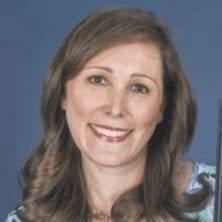
Vivian Greentree, Ph.D., is a Senior Vice President and Head of Global Corporate Citizenship at Fiserv (which merged with First Data earlier in 2019), where she oversees the strategy and implementation of the company’s philanthropic, diversity and inclusion, social responsibility, responsible sourcing, and sustainability efforts. Before assuming this role, Vivian joined the organization as the Head of Military and Veteran Affairs in February 2014. In that role Vivian created First Data Salutes, a company-wide military engagement strategy to provide the military community with access to career opportunities and best-in-class education resources, while offering premier business solutions to veteran-owned businesses. In recognition of First Data’s success under Vivian’s leadership, in 2017 First Data was ranked #1 on Military Times’ Best for Vets: Employers. A U.S. Navy veteran and military spouse, Dr. Greentree helped found Blue Star Families, the largest chapter-based military support organization in the country, where she served as director of research and policy. Learn more about Fiserv here: https://www.fiserv.com/
